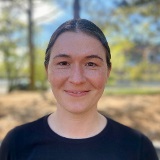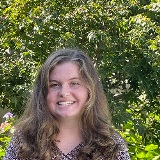講演者
Filter by:
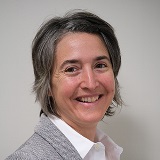
Diane S. Abou, PhD, Principal Radiochemist, Assistant Professor, Mallinckrodt Institute of Radiology, Washington University School of Medicine in St. Louis

I am a radiochemist with over 15 years hands-on experience with various radioisotopes (99mTc, 89Zr, 68Ga, 64Cu, 177Lu, 213Bi, 225Ac, 227Ac, 223Ra, 227Th). My expertise spans from alpha-emitting isotope production, radiolabeling, formulation, quality control and preclinical assessments (in vitro/vivo, toxicology) of radiopharmaceuticals, including the GMP development/filing of an 225Ac-labeled drug. My publication track includes over 30 research articles in this field (JNM, Nature Communications …) with > 1400 citations and 2 patents in radiopharmaceutical discovery. I am the recipient of the Rosalind Franklin Award (2022) for my report on Quality Control considerations of 225Ac and the lead-editor at Frontiers in Oncology, for the research collection: Therapeutic Isotope supply and Radiopharmaceutical Manufacturing. I am an Assistant Professor at Washington University in St. Louis, Radiology since 2018, and was previously a board member at the radiopharmaceutical council (RPSC) of the Society of Nuclear Medicine. I was a postdoctoral fellow (2009-2013) at Memorial Sloan-Kettering Cancer Center (NYC) and a junior faculty at the Johns Hopkins University, Nuclear Medicine (2013-2018). I am a Principal Radiochemist at Northstar Medical Radioisotopes, involved in any questions related to 225Ac isotope production, drug radiolabeling and formulation, quality control and patent filing.
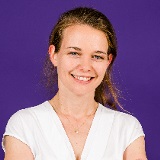
Chloé Ackaert, PhD, Senior Scientist, Immunogenicity, ImmunXperts, a Q2 Solutions Company

Chloé Ackaert is a pharmacist by training (Catholic University of Leuven 2009) and obtained her PhD at the University of Salzburg (Austria) for the research on the impact of nitration on the immunogenicity of birch pollen allergens in 2013. She first joined ImmunXperts in the start-up phase and continued academic research at the Free University of Brussels (2015-2018) working on the immunogenicity of Nanobodies. Afterwards, she joined ImmunXperts again where she is a senior scientist in the immunogenicity team, collaborating both on the client-based projects as well as on the continuous basic research projects to elucidate immunogenicity-related questions.

Pramisha Adhikari, PhD, Senior Principal Scientist, Biologics Discovery, Johnson & Johnson Innovative Medicine

Pramisha Adhikari is a Senior Principal Scientist in the department of Biologics Discovery at Johnson & Johnson in Spring House, PA. In this role, she is responsible for high-throughput medium scale protein expression and purification robotic capability within the High-throughput Expression Sciences team. She received a Bachelor's degree in Biology and Chemistry from Wesleyan College, GA and a PhD degree in Molecular Pharmacology from Scripps Research, FL. Following the completion of her PhD, Pramisha worked as a contractor for 1.5 years at the National Institute on Drug Abuse, MD where she studied GPCR biased agonism and pharmacology before joining J&J in 2020.

Rahmad Akbar, PhD, Senior Data Scientist, Antibody Design, Novo Nordisk

At Novo Nordisk, Rahmad enables patients to realize their greatest potential by catalysing antibody design. He leverages experimental data, molecular simulation, and artificial intelligence to build computational oracles and to design antibody therapeutics faster, smarter, and cheaper.

Tero-Pekka Alastalo, CEO, Avenue Biosciences Inc

An experienced life science entrepreneur based in San Francisco, CA, USA. Tero-Pekka Alastalo (MD, PhD) is the CEO of Avenue Biosciences with 12+ years’ experience in life science startups and +10 years of clinical and translational research experience. His previous roles include heading North American operations at CardioSignal and co-founding Blueprint Genetics, which was acquired in 2020.

Richard Altman, MS, Field Application Scientist, Life Science Solutions, Thermo Fisher Scientific

Rich Altman has 30 years of experience in protein expression and production. In early 2019, he joined Thermo Fisher Scientific as a Field Application Scientist. Previously, he worked for several pharmaceutical companies, including Amgen, Alexion, Bayer, and Upjohn, on the cloning, expression, purification and characterization of recombinant proteins. This work supported both small-molecule high-throughput screening and protein therapeutic efforts. He received his MS degree from the University of Pittsburgh School of Medicine in the Department of Molecular Biology and Biochemistry.
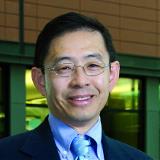
Zhiqiang An, PhD, Professor, Robert A. Welch Distinguished University Chair in Chemistry; Director, Texas Therapeutics Institute; Director, CPRIT Core for Antibody Drug Discovery; Vice President, Drug Discovery, University of Texas Health Science Center at Houston

Dr. Zhiqiang An is Professor of Molecular Medicine, the Robert A. Welch Distinguished University Chair in Chemistry, Director of the Texas Therapeutics Institute, and Vice President of Drug Discovery at the University of Texas Health Science Center at Houston. His laboratory focuses on antibody drug resistance mechanisms, biomarkers for therapeutic antibodies, and antibody drug discovery targeting human diseases. During the last five years, more than 12 novel antibody drug leads discovered in his laboratory were licensed to eight biotechnology companies, and six (6) have advanced to clinical trials for diseases ranging from acute myeloid leukemia (IO-202), breast cancer bone metastasis (ALMB-0168), solid tumor (IO-108), spinal cord injury (ALMB-0166), COVID-19 (IGM6268), and solid tumor (PRTH-101). Previously, he served as Chief Scientific Officer at Epitomics, Inc. and was Director of Biologics Research at Merck Research Laboratories. He has authored over 200 journal articles including more than 30 papers in Nature, Science, and Cell journal series; and two books including the award-winning “Therapeutic Monoclonal Antibodies: from Bench to Clinic.” He is an elected fellow of Society for Industrial Microbiology and Biotechnology (SIMB), the American Academy of Microbiology (ASM), American Association for the Advancement of Science (AAAS), and the National Academy of Inventors (NAI). Dr. An received his PhD from the University of Kentucky and his postdoctoral training at the University of Wisconsin-Madison.
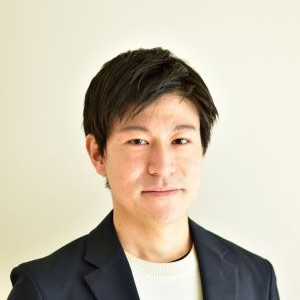
Tsubase Aoki, Researcher, Ajinomoto Co., Inc.

Tsubasa Aoki earned his Ph.D. in Engineering from the University of Tokyo, Japan, in 2023. His doctoral research focused on supramolecular chemistry and material science, particularly the chiroptical properties of self-assembly systems. As a researcher at Ajinomoto Co., Inc., Dr. Aoki has been dedicated to antibody engineering, aiming to develop novel drug modalities. His current work includes the development of antibody-oligonucleotide conjugates and antibody-protein conjugates.

Tony R. Arulanandam, DVM, PhD, CEO and Founder, Synaptimmune Therapeutics

Tony Arulanandam, DVM, PhD, is CEO and Founder Synaptimmune Therapeutics, a Yale Ventures spinout newco developing next generation of IDR-CAR-T cells with increased potency and antigen sensitivity against blood cancers, solid tumors and autoimmunity. Senior Vice President and Head of Preclinical Research and Development at Cytovia Therapeutics focused in developing NK Cell engager bispecific antibodies and iPSC derived CAR-NK therapies for cancer. He is also the Co-Founder of NextPoint therapeutics, an MPM capital-funded IO checkpoint immunotherapy company. He is an immunologist with 20+ years of research and development experience developing multiple immunotherapies for autoimmune/inflammatory diseases and cancer (5 BLAs and multiple INDs). He is also currently a mentor for postdocs at the Dana-Farber Cancer Institute through the Post-Graduate Association.

Jared Auclair, PhD, Interim Dean, Northeastern University College of Professional Studies

Jared Auclair serves as the Interim Dean of the College of Professional Studies. Appointed in December 2023, Jared leads all academic and administrative functions of the college. With more than a decade of experience at Northeastern, starting first as a post-doc and most recently, Vice Provost Research Economic Development and Director of Bioinnovation, Jared is a champion of innovation and collaboration and deeply values the promise that the College of Professional Studies brings to students as one of Northeastern’s most diverse and dynamic colleges committed to meet students where they are. Prior to his role as Vice Provost Research Economic Development, Jared served as the Associate Dean of Professional Programs and Graduate Affairs in the College of Science, and still holds a faculty appointment in the Department of Chemistry and Chemical Biology. His past experience with the College of Professional Studies includes leadership on a variety of economic and workforce development and research programs, including PlusOne, a dynamic program that gives students the opportunity to accelerate their education by earning both a bachelor’s and master’s degree in five years. With an extensive leadership background, Jared’s passion for progress drives essential strategic initiatives for the College of Professional Studies. His focus on strengthening the connections between education, research, and community, along with fostering a global mindset is core to the College of Professional Studies’ commitment to delivering a world-class experiential education tailored to students’ needs. Prior to joining Northeastern, Jared held a variety of research and consulting roles for leading biopharmaceutical firms. He holds a bachelor’s degree in biotechnology from Worcester Polytechnic Institute and a PhD in Biomedical Science from the University of Massachusetts Medical.
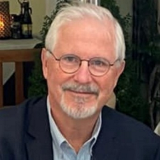
John Babich, PhD, Co-Founder, Ratio Therapeutics

John Babich is the Co-Founder, President, and Chief Scientific Officer of Ratio Therapeutics, Inc. He previously worked at Weill Cornell Medical College as a Professor and Chief of Radiopharmaceutical Sciences in Radiology. John Babich attended the University of London.
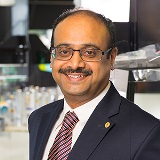
Sathy Balu-Iyer, PhD, Professor, Pharmaceutical Sciences, SUNY Buffalo

Dr. Sathy Balu-iyer is a Professor in the Department of Pharmaceutical Sciences at SUNY é University at Buffalo and is an Associate Dean for Research, School of Pharmacy and Pharmaceutical Sciences. He is an elected fellow of American Association of Pharmaceutical Scientists (FAAPS). His interdisciplinary research involves biophysical, immunological and Pharmacokinetic/dynamic approaches to rationally develop immunotherapy modalities. He is recipient of NIH sponsored projects as principal investigator. He has authored about 100 peer-reviewed publications, over 200 meeting abstracts/presentations and is an inventor over 50 patents/patent applications. The Awards he received include Biotechnology Innovation Award from American Association of Pharmaceutical Scientists (AAPS) and Inventor of the year Award from Niagara Frontier Intellectual Property Law Association. His University awards include University at Buffalo Sustained Achievement Award and Teaching innovation Award. He is one of the Editors of Journal of Pharmaceutical Sciences and serves on editorial boards of several international journals including Biodrugs. He is a member of American Association of Pharmaceutical Scientists AAPS and American Association for the Advancement of Science AAAS.
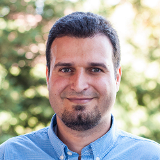
Amir Barati Farimani, PhD, Associate Professor, Machine Learning, Carnegie Mellon University

Amir Barati Farimani received his Ph.D. in 2015 in mechanical science and engineering from the University of Illinois at Urbana-Champaign. His Ph.D. thesis was titled “Detecting and Sensing Biological Molecules using Nanopores.” He extensively used atomistic simulations to shed light on the DNA sensing and detection physics of biological and solid state nanopores. Right after that, he joined Professor Vijay Pande’s lab at Stanford. During his post-doc, he combined machine learning and molecular dynamics to elucidate the conformational changes of G-Protein Coupled Receptors (GPCRs). He specifically was focused on Mu-Opioid Receptors to elucidate their free energy landscape and their activation mechanism and pathway. The Barati Farimani’s lab, the Mechanical and Artificial Intelligence laboratory (MAIL), at Carnegie Mellon University is broadly interested in the application of machine learning, data science, and molecular dynamics simulations to health and bio-engineering problems. The lab is inherently a multidisciplinary group bringing together researchers with different backgrounds and interests, including mechanical, computer science, bio-engineering, physics, material, and chemical engineering. The mission is to bring the state-of-the-art machine learning algorithm to mechanical engineering. Traditional mechanical engineering paradigms use only physics-based rules and principles to model the world, which does not include the intrinsic noise/stochastic nature of the system. To this end, the lab is developing the algorithms that can infer, learn, and predict the mechanical systems based on data. These data-driven models incorporate the physics into learning algorithms to build more accurate predictive models. They use multi-scale simulation (CFD, MD, DFT) to generate the data.
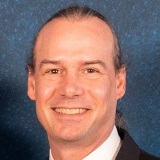
Anthony B. Barry, PhD, Executive Director, ES&I Lead, Biotherapeutics, Technologies, and Digital, Pfizer Inc.

Anthony has been with Pfizer since the Wyeth acquisition in 2009. He had been a member of the Wyeth BioPharma Development group for 8 years prior. Over his career, Anthony has served in many different roles within the companies. These roles have included leading project teams, and strategic initiatives. Anthony has been involved in several preclinical and clinical programs, and in the evaluation and implementation of novel technologies in various fields, including early molecular design and screening, formulation and drug delivery and process development and manufacturing. With a specific background and experience in technologies, Anthony has been part of the external facing search and evaluation team for Pfizer R&D since 2015, where he is responsible for scouting and evaluating platform technologies across the Pfizer R&D portfolio, specifically relating to drug delivery and large molecule technologies. He has been involved in evaluation of numerous technologies and driven a number of key research collaborations and licenses between Pfizer and various partners. Anthony holds a BA, Chemistry from Carleton College and a Ph.D., Pharmaceutics and Pharmaceutical Chemistry from University of Utah.

Justin Barton, PhD, AI Scientist, Xaira Therapeutics

Justin Barton is an AI Scientist at Xaira Therapeutics. In his previous role as Principal Machine Learning Scientist at Alchemab Therapeutics, he developed sequence-based and structure-based ML models to aid in the discovery and engineering of antibody therapeutics. Justin has also served as a co-organizer of the IMMREP competitions and co-chair of the AIRR Machine Learning Working Group.
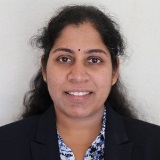
Sulo Baskaran, PhD, Senior Director, Protein Science, Santa Ana Bio

Sulo Baskaran, a Protein Biochemist and Structural biologist by training is currently the Senior Director of Protein Science at Santa Ana Bio. She received her PhD in Biochemistry from Indiana University School of Medicine and did her post doctoral research at the National Institutes of Health and University of California, Berkeley. Previously she had worked with Denali therapeutics, Frontier Medicines and Charles River Labs leading the production and characterization of challenging protein targets and biotherapeutics.
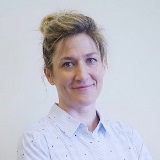
Marie-Eve Beaulieu, PhD, Co-Founder & CSO, Drug Development, Peptomyc SL

Dr. Beaulieu is the co-founder and CSO at Peptomyc, a biotech company developing mini-protein therapeutics for cancer treatment. PhD in Pharmacology with a strong focus on structural biology of proteins, Marie-Eve has led the preclinical pharmaceutical development of OMO-103, the first direct MYC inhibitor to successfully complete a clinical trial showing safety and clinical activity in human patients. Together with the co-founder Dr. Laura Soucek, Marie-Eve designed the company strategy, built the team and fundraised public >11MEur and private ~30MEur capital. She is now in charge of the company's pipeline development and biomarker programs. Marie-Eve has co-authored 8 patent applications, 30 peer-reviewed publications, and 4 book chapters (ORCID 0000-0001-5224-8436). She was awarded several competitive fellowships (e.g., CREFSIP scholarship, MITACS, and FRSQ postdoctoral awards) and contributed to the company’s scientific and business excellence as testified by several local and international awards (e.g., BioFit, best company initiative at AJIEC, EIT Health Headstart, J&J StartUpSlam at BioEurope, and the highly competitive H2020 SME Instrument and EIC Accelerator awards).
.tmb-0.jpg)
Yiling Bi, PhD, Senior Scientist, Sangamo Therapeutics
.tmb-0.jpg)
Yiling Bi is a scientist in the analytical development department at Sangamo Therapeutics, a genomic medicine company. With focus on characterization of AAV-based gene therapies, Yiling is responsible for LC-MS, CE-MS, and HPLC-CAD method development. She also works with CRO and vendors for routine testing and new technology evaluations on HCP analysis, genome integrity, and empty/full ratio to support gene therapy product development. Yiling obtained her PhD in medicinal chemistry at the University of Utah. She has been involved in analytical development for biologics since 2019, with a broad experience in early/late phase analytical development and CMC.
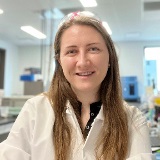
Jacquelyn Blake-Hedges, PhD, Senior Scientist, Protein Biochemistry, Sutro Biopharma

Jacquelyn obtained her bachelor’s degree in chemistry from The College of William and Mary where she studied plasmon-enhanced fluorescence of dyes coated on silica-coated silver nanoparticles with the aim of improving electron transfer in dye-sensitized solar cells. She then moved to California where she pursued a PhD in Chemistry at the University of California, Berkeley, under the guidance of Professor Jay Keasling. At Cal, she characterized and engineered polyketide synthases and related enzymes. Immediately after obtaining her PhD, she moved across the San Francisco Bay to Sutro Biopharma in early 2020 where she currently works on the strain engineering team within the Protein Biochemistry group. Her current work focuses on understanding and improving non-natural amino acid incorporation into biologics produced in Escherichia coli.

Daniel Blom, PhD, CSO, R&D, Ampersand Biomedicines

Daniël joined Ampersand in January 2022, and is currently Chief Scientific Officer (CSO). As CSO, he is responsible for all platform development efforts, the generation and implementation of company strategies and for coordinating all preclinical research efforts. He was previously Ampersand’s Chief Technology Officer. Daniël has extensive experience in pharmaceutical drug discovery and development at both large Pharma and biotech for a combined 19 years. Daniël has led multiple monoclonal antibody and small molecule drug development program teams at Merck, GSK and Cygnal Therapeutics. He has contributed to the delivery of two monoclonal antibody clinical candidates and four small molecule clinical candidates, several of which are currently being tested in human clinical trials. His research experience spans multiple disease areas, including cardiovascular and metabolic diseases, oncology, immunology, infectious diseases, lysosomal storage diseases, and neurosciences. Daniël received an undergraduate degree in Chemistry from the University of Amsterdam and received his Master’s degree with honors in Chemistry, with a specialization in Biochemistry from the same university. He studied the mechanism and evolution of RNA editing in Trypanosomes as part of his Ph.D. thesis work at the Department of Biochemistry at the University of Amsterdam. He then worked as a postdoctoral fellow in the Academic Medical Center in Amsterdam, on enzyme replacement therapy for patients suffering from Fabry and Gaucher disease, both lysosomal storage disorders. Subsequently, he trained as a postdoctoral fellow at Harvard Medical School in the laboratory of Dr. Hidde Ploegh, where he worked on viral immune evasion and glycoprotein maturation and ER-associated degradation.
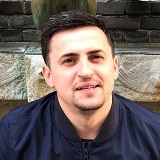
Vladimir Bobkov, PhD, Principal Scientist, Preclinical Product Development, argenx BVBA

Vladimir Bobkov, PhD, Principal Scientist, Preclinical Product Development, argenx BVBA

Nicola Bonzanni, Founder & Chief Executive Officer, ENPICOM

Dr. Nicola Bonzanni co-founded ENPICOM to bridge the gap between life sciences and technology, empowering researchers with advanced computational tools. His expertise spans computational biology, NGS data analysis, and molecular biology, driving the creation of state-of-the-art software solutions that enhance biologics discovery and AI integration.
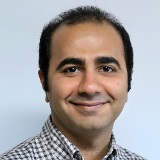
Mehdi Boroumand, PhD, Associate Principal Data Scientist, Machine Learning, AstraZeneca

Mehdi Boroumand is an Associate Principal Data Scientist at AstraZeneca, working in the Machine Learning and AI group within the Biopharmaceutical Development department. He is the Machine Learning team lead for the in-silico prediction of developability attributes of antibodies, as part of AstraZeneca’s MLAB (Machine Learning Driven Antibodies and Biologics) project. He holds a PhD in Electrical Engineering from the State University of New York at Binghamton.
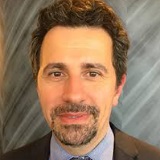
Adrian Bot, MD, PhD, CSO, Executive Vice President, R&D, Capstan Therapeutics

Adrian Bot, MD, PhD, CSO, Executive Vice President, R&D, Capstan Therapeutics
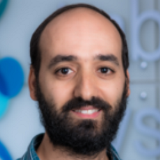
Nazim Bouatta, PhD, Senior Research Fellow, Lab of Systems Pharmacology and Systems Biology, Harvard Medical School

Dr. Nazim Bouatta is a Senior Research Fellow in Systems Biology and Systems Pharmacology at Harvard Medical School, where he applies his expertise in machine learning, physics, and mathematics to solve complex biological problems such as understanding protein structures and predicting drug interactions. He co-supervised the development of OpenFold, an open-source, trainable, and optimized version of AlphaFold2. The release of OpenFold has led to significant developments, including the creation of the ESM Metagenomic Atlas by Meta AI, which contains over 600 million predicted protein structures. He has also led the development of a novel approach that uses machine learning to predict protein structure through a protein language model without explicit evolutionary information. AlphaFold2 and OpenFold have the potential to transform our understanding of biological phenomena by addressing the combinatorial complexity of biology from molecules to cells to organisms. Inspired by the success of foundation models trained on diverse data that can perform a range of downstream tasks, Dr. Bouatta's vision is to develop a unified model that can generalize across different domains and scales of biology, turning biology into a predictive science. Furthermore, the generalization of AlphaFold2 and OpenFold can reveal general principles about the organization and behavior of biological phenomena at all scales, which experiments alone cannot fully characterize. Dr. Bouatta is currently leading multiple research efforts that include co-folding proteins and ligands, understanding the effect of mutations on protein structures, and predicting RNA 3D structure. These projects, taken collectively, aim at building a unified model for biology. Dr. Bouatta provided a series of special lectures at Harvard explaining the protein structure problem and the detailed workings of AlphaFold2. At Columbia, he taught a graduate lecture on geometric deep learning for molecular modeling. Dr. Bouatta earned his doctoral degree in high-energy theoretical physics in the group of Prof. M. Henneaux and completed his postdoctoral training in the Department of Applied Mathematics and Theoretical Physics (DAMTP) at Cambridge University. Then, he transitioned to systems biology at Harvard Medical School, where he received training in cellular and molecular biology in the lab of Prof. J. Lieberman before joining Prof. P. Sorger's group.
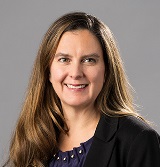
Diana Bowley, PhD, Associate Director, CMC Data & Digital Strategy, Bioprocess Development, AbbVie, Inc.

Dr. Bowley is the Associate Director, CMC Data & Digital Strategy in PDS&T-Biologics Development and Launch leading the organization’s Digital Transformation since October 2021. She joined AbbVie in 2012 in the R&D-Discovery Biologics group focused on antibody and multi-specific protein screening and engineering, leading multiple programs to the cell line development stage. In 2017 she joined Information Research and led a team of IT professionals who supported AbbVie’s Discovery Scientists in Biotherapeutics, Chemistry, Immunology, and Neuroscience. She has a PhD in Molecular Biology from The Scripps Research Institute and Bachelor of Science in Chemistry from The University of Northern Iowa.

Andrew R.M. Bradbury, MD, PhD, CSO, Specifica, an IQVIA business

Andrew Bradbury is Chief Scientific Officer of Specifica. He trained in medicine at the universities of Oxford and London and received his PhD from the university of Cambridge at the MRC Laboratory of Molecular Biology under the guidance of Nobel Laureate, Cesar Milstein. He has worked in the fields of phage and yeast display, library generation, antibody engineering and Next Generation Sequencing for over thirty years. He was a Group Leader at Los Alamos National Laboratory before founding Specifica. Specifica's mission is to enable companies developing therapeutic antibodies with the world’s best antibody discovery platform.
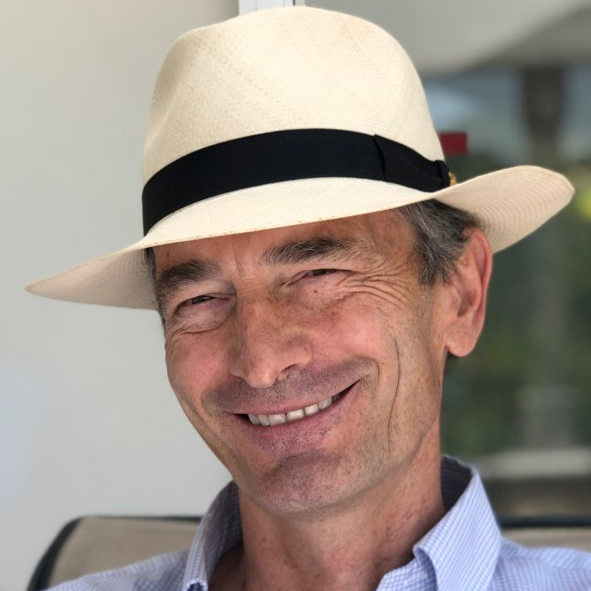
Andrew Bradbury, Chief Scientific Officer, Specifica

Andrew Bradbury is one of our founders, a member of our Board of Directors, and serves as our Chief Scientific Officer. Andrew has 30 years of experience in the field of recombinant antibodies and display technologies. Throughout his career, he has developed and employed novel technologies, including the use of lox recombination to dramatically increase antibody library diversity.
Andrew is a vocal proponent for the use of sequenced recombinant antibodies in research to improve reproducibility. He has frequently served as an expert witness in antibody patent cases involving some of the world’s best selling antibody drugs. Andrew has published over 130 peer-reviewed papers and is the inventor on numerous patents and patent applications.
Andrew holds a PhD from Cambridge University, where he studied under Nobel Laureate Cesar Milstein, the inventor of monoclonal antibodies, and also holds an MB BS (medical degree) from the University of London as well as a BA and MA from Oxford University.

David Bramhill, PhD, Founder, Bramhill Biological Consulting LLC

Dr. Bramhill has over 20 years’ experience in biologics, both in large biopharma and startup biotech companies. He has expertise in isolating and improving antibodies using phage display and other display systems and is an inventor on library design for small scaffolds and bi-specific formats. He also has experience in diverse expression systems for producing antibodies, antibody fragments and scaffolds. Additionally, Dr. Bramhill has extensive experience in ADC development including diverse chemical and biochemical conjugation methods. He has taught numerous technical courses for over 15 years at international conferences and served as a Key Opinion Leader for major BioPharma companies.
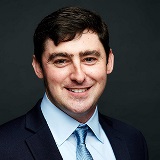
Kevin Brawley, Project Manager, Production Operations & Communications, Cambridge Innovation Institute

.tmb-0.jpg)
Mary Ann Brown, Executive Director, Conferences, Cambridge Healthtech Institute
.tmb-0.jpg)
Mary Ann Brown joined Cambridge Healthtech Institute (CHI) in 1992 as a Data Entry Associate. At that time CHI was a start-up company with many roles to fill and explore. She quickly realized that conference production which combined creativity and love of learning was the path for her. Mary Ann’s conference portfolio is varied from biologics to batteries where she is organizes over 15 scientific meetings a year along with being a Team Lead for several Key Events. Mary Ann graduated from Doane College in 1978 with degrees in Biology, Environmental Studies, and Geology.
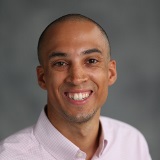
Tom Browne, Founder & CEO, C to C Services

Tom was formerly MassBio’s lead for DEI consultancy, focused on corporate operations and culture. He specializes in employee well-being and retention, supplier diversity, and DEI program marketing. Tom assisted MassBio’s member companies to launch, grow, and strengthen their DEI initiatives through action-based strategies and tactics. This critical work was part of MassBio’s commitment to improve DEI across the life sciences, develop a more diverse talent pipeline, and make their members more successful and better aligned with patient populations. Prior to joining MassBio, Tom led the Greater Boston Chamber of Commerce’s Economic Inclusion team and moved to Boston from the UK where he managed local corporate philanthropy broker Businesses for Islington Giving”

Sara Byers, PhD, Principal Scientist, Quantitative Sciences & Digital Transformation, Bristol-Myers Squibb

Sara Byers is a Principal Scientist at BMS in Devens, MA working within the Quantitative Sciences & Digital Transformation team. She has been with BMS for five years since receiving her PhD in Biostatistics from the University of Georgia. Her responsibilities include providing CMC statistical support to Biologics Development, such as design of experiments (DOE), statistical modeling, data analytics, and more. In addition, she is passionate about finding opportunities to automate data analysis and reporting where possible.

Christopher P. Calderon, PhD, Associate Research Professor, Chemical and Biological Engineering, University of Colorado

Dr. Calderon’s research focuses on data-driven function approximation (time series and i2mage analysis), machine learning / “narrow AI”, and stochastic processes applied to applications in the life and physical sciences. He studied Chemical Engineering at Purdue University (B.S.), Chemical Engineering at Princeton University (Ph.D.), and Statistics / Computational & Applied Mathematics at Rice University (Postdoctoral Fellowship). Dr. Calderon is the founder and President of Ursa Analytics, Inc. a company launched in 2014 that focuses on providing custom algorithm development for new sensors / instruments and produces both basic and applied R&D (in collaboration w/ academia and industry); he is a co-founder and board member of non-profit Quantitative BioImaging Society (https://www.quantitativebioimaging.com); he is also an Associate Research Professor at University of Colorado, Boulder where he advises / co-advises graduate students interested in applying machine learning methods to nano / microscale measurements. Dr. Calderon’s expertise in image analysis, single particle tracking, and single-molecule data analysis using both physics-based and AI models (20+ years of academic and industrial experience). His recent efforts have focused heavily on proposing new methods for characterizing particles encountered in industrial pharma.
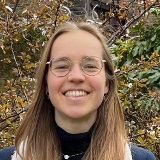
Henriette Capel, PhD Student, University of Oxford

I'm a PhD student in the Oxford Protein Informatics Group, supervised by Prof. Charlotte Deane. My research is focused on predicting properties related to antibody developability.

Edson Carcamo Noriega, PhD, Investigator & Head, Biochemistry, AI Proteins

Dr. Edson Norberto Carcamo-Noriega is a founding scientific member, Investigator, and Head of Biochemistry at AI Proteins, where he leads the development of high-throughput protein production and automation protocols. His pioneering workflows enable the production of over 1000 high-purity proteins per week, achieving an optimized, four-day transition from DNA to protein. He has a PhD in Biochemical Science with Honorable Mention at Universidad Nacional Autónoma de México and his MSci in Health Science, also with Honorable Mention, at Universidad de Sonora in Mexico. His postdoctoral work included advanced biochemical and biological characterization of scorpion venom, focusing on isolating toxins with specificity for human sodium and potassium channels and identifying small molecules with antibiotic potential. He further refined his expertise by optimizing antibody fragment (scFv) expression in bacterial and yeast systems and conducting toxicological evaluations for antivenom applications. In his subsequent work at the Institute for Protein Innovation, Dr. Carcamo-Noriega specialized in de novo protein design and high-throughput production, which now serves as a cornerstone of his contributions to AI Proteins. His comprehensive training and research background in molecular biology, heterologous protein expression, purification, and characterization have positioned him as a leader in high-throughput protein production and characterization.

Sean Carlin, PhD, Principal Scientist, Scientific & Medical Services, Perceptive Inc.

No bio available.

Paul J. Carter, PhD, Genentech Fellow, Antibody Engineering, Genentech

Dr. Carter received a B.A. in Natural Sciences from Cambridge University and his Ph.D. in Molecular Biology under Sir Greg Winter at the MRC Laboratory of Molecular Biology in Cambridge. He then completed a postdoctoral fellowship with Dr. Jim Wells at Genentech, now a member of the Roche Group. Dr. Carter has over thirty years of experience in biotechnology, focusing on the discovery of antibody therapeutics. He played a key role in the creation of antibody humanization methods at Genentech utilized over many years for nine approved antibody products used to treat millions of patients worldwide. Dr. Carter and collaborators invented ‘knobs-into-holes’ technology widely used in generating bispecific antibodies. He is currently a Genentech Fellow in the Department of Antibody Engineering.
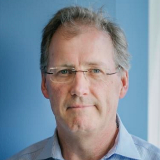
Ross Chambers, PhD, Vice President, Antibody Discovery, Integral Molecular, Inc.

Ross Chambers is the Vice President of Antibody Discovery at Integral Molecular. He pioneered the use of DNA immunization for antibody production and developed Integral Molecular’s MPS system for isolating antibodies. Dr. Chambers earned his PhD from the University of Otago, New Zealand, and did post-doctoral studies at UC Davis and Berkeley. Before joining Integral Molecular, he was the Director of R&D at SDIX and directed the discovery of thousands of commercial antibodies.
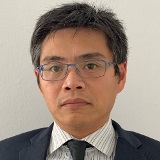
Kai-Ti Chang, PhD, Scientist, Protein Biochemistry, Regeneron

Kai-Ti Chang is in the Protein Biochemistry group at Regeneron, focusing on characterizing charge variants in bispecific antibodies. Kai-Ti obtained his PhD training in Biochemistry from University of Maryland at College Park and postdoc training from Rowan University.

Daniel Chen, MD, PhD, Founder & CEO, Synthetic Design Lab

Daniel S. Chen, MD, PhD, is the founder of Engenuity Life Sciences and founder and CEO of Synthetic Design Lab, former Vice President, Global Head of Cancer Immunotherapy Development at Genentech/Roche and former Chief Medical Officer for IGM Biosciences. He received a BS degree in Biology from the Massachusetts Institute of Technology (1990), a PhD in Microbiology & Immunology (1996) and MD (1998) from the University of Southern California. His PhD work and publications focused on “Early Events in Coronavirus Infection.” Daniel completed an Internal Medicine Residency and Medical Oncology Fellowship at Stanford University (2003). He went on to complete a Post-doctoral fellowship with Mark Davis in Immunology, where he was a Howard Hughes Medical Institute Associate. He also ran the metastatic melanoma clinic at the Stanford Cancer Center from 2003-2006. In that time, he studied human anti-cancer immune responses pre- and post- cancer vaccination and cytokine administration to determine why anti-tumor immune responses were not more clinically effective. He received a U19 grant to develop better immunologic tools to interrogate human immune responses and ultimately patented the MHC cellular microarray to detect and functionally characterize antigen-specific T cell states. He continued as Adjunct Clinical Faculty at Stanford from 2006-2016, where he cared for melanoma patients. At Genentech from 2006-2018, Daniel focused on the clinical development of anti-angiogenic, antibody drug conjugates and immune modulatory targeted therapies in both early and late Development, as well as the diagnostic tools to aid their development. This included leading the clinical development for atezolizumab, a PD-L1 inhibitor, from the time the program was in research through IND, Phase I, Phase II, Phase III, to filing and approvals in multiple indications worldwide. At IGM Biosciences, Daniel focused on the development of novel engineered multivalent therapeutics and helped lead this from pre-clinical to having multiple therapeutics in the clinic in Phase I/II. He is a reviewer for Nature, Immunity, Journal for Immunotherapy of Cancer and Clinical Cancer Research, served on the Board of Directors for SITC, has been a recurring session organizer and session chair for PEGS Europe on engineered therapeutics since 2019, gave the keynote presentation at the AACR NCI EORTC Annual Meeting 2014 and presented at the US Congressional Briefing on Immuno Oncology in 2017. He has continued to publish with academic and industry collaborators in the field of cancer immunotherapy, including the often-referenced Chen and Mellman manuscripts, “Oncology meets Immunology: the Cancer-Immunity Cycle,” “Elements of cancer immunity and the cancer-immune set point” and the Hegde and Chen manuscript “Top 10 Challenges in Cancer Immunotherapy.”

Liuhong Chen, PhD, VP Platform Innovation, Bicycle Therapeutics

Liuhong Chen joined Bicycle Therapeutics in 2011 and is currently serving as Vice President of Platform Innovation. She is a named inventor and author on over 40 patents or peer-reviewed journal articles relating to the discovery and design of bicyclic peptide (Bicycle®) molecules. Including several that have progressed to clinical development, such as zelenectide pevedotin, a Bicycle® Drug Conjugate (BDCTM) currently in registrational trials.
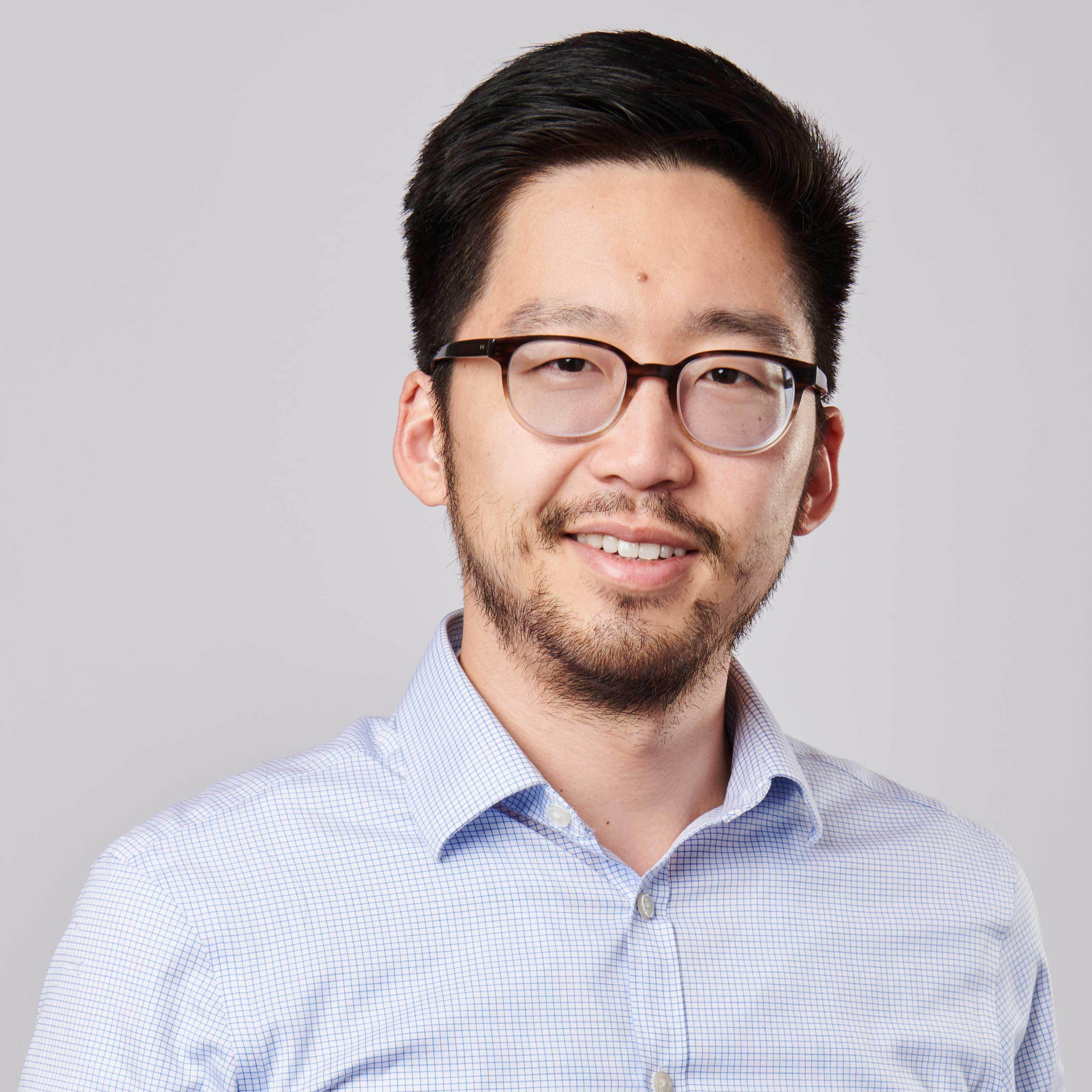
Michael Chen, CEO & Co Founder, Nuclera

Michael Chen is the co-founder and CEO of Nuclera, a Cambridge UK and Boston US based life science tools company revolutionizing protein accessibility through the eProtein Discovery rapid protein access benchtop platform. With a mission to improve human health, Michael and his classmates founded Nuclera in response to the costly barriers to protein access for research and drug discovery. As CEO, he drives core inventions, sets the company's vision and strategy, and oversees its growth across two continents with over 100 employees. Before Nuclera, Michael was an award-winning structural biologist. His work resulted in numerous high impact publications including Nature. Michael holds a BSc in Chemistry from the Georgia Institute of Technology and a PhD in Structural Biology/Chemistry from the University of Cambridge and the National Institutes of Health.
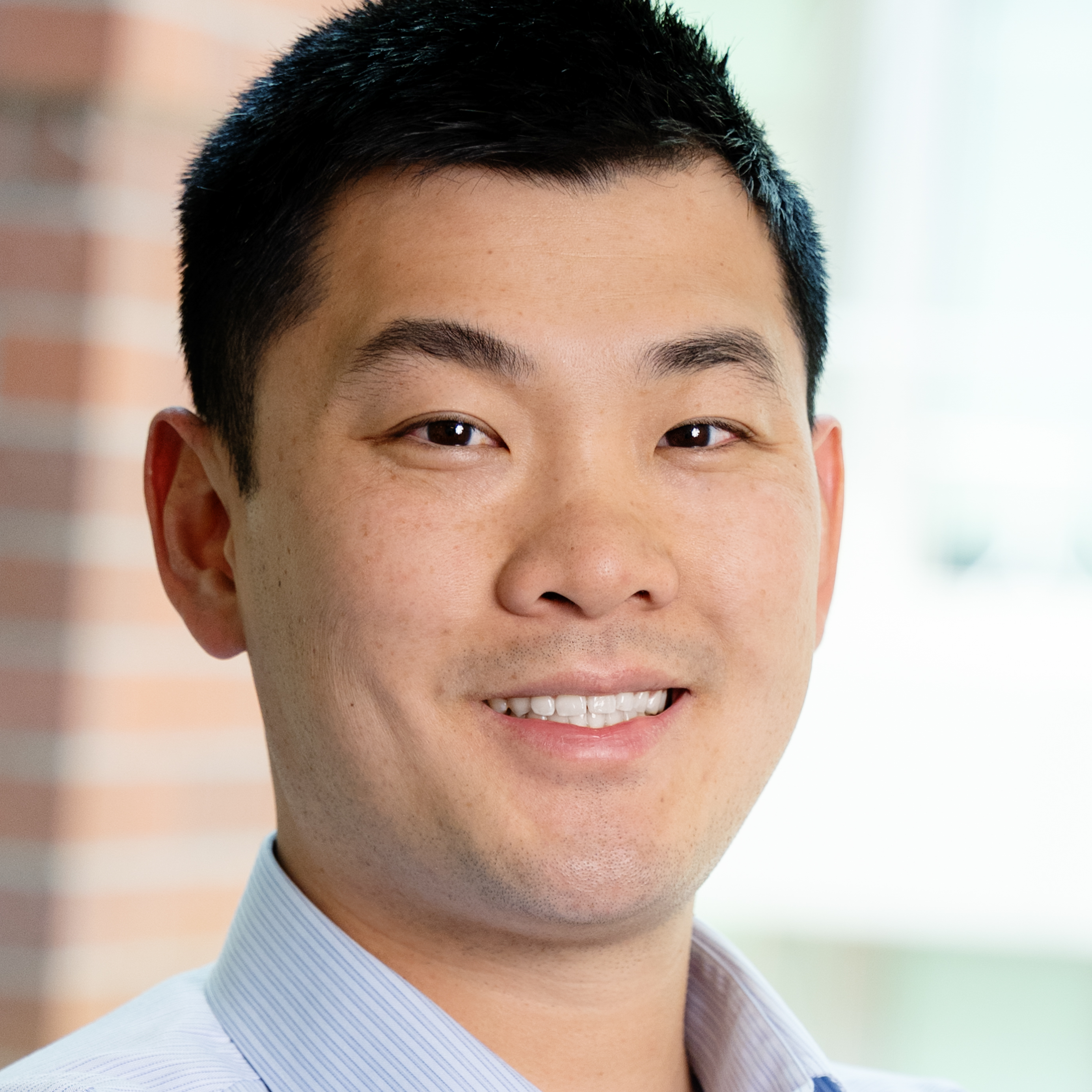
Bob Chen, Vice President, Discovery Systems, Discovery Systems, OmniAb

Bob Chen is Vice President of Discovery Systems at OmniAb. Dr. Chen leads the development of our xPloration® platform. Dr. Chen previously was the Chief Technology Officer and a co-Founder of xCella Biosciences, an antibody discovery and technology company based in Menlo Park, California, that was built on scientific research from Stanford University and MIT and acquired in 2020. Dr. Chen earned a Bachelor’s degree in Chemical Engineering from MIT and a PhD in Bioengineering from Stanford University.

Claudia Chiocchini, Manager, Protein Research & Development, R&D, Thermo Fisher Scientific

No bio available.
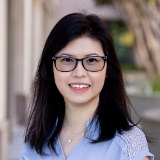
Cecilia Chiu, PhD, Scientist IV, Genentech, Inc.

Cecilia received her PhD from the University of British Columbia in Canada, specializing in X-ray crystallography to study bacterial pathogenesis and structure-based drug design. In 2007, Cecilia joined the Antibody Engineering department at Genentech as Senior Scientist, focusing on antibody discovery, sequence optimization and format engineering. With over 17 years of industry experience in drug development, she spearheaded countless successful antibody discovery campaigns against diverse target classes using both phage display and single B-cell culture technologies. As an accomplished antibody engineer, she has a strong track record of advancing both mono- and bispecific antibody modalities from research into clinical development. In recent years, her focus has been to develop smart biologics for targeted drug delivery for different disease areas.

Chris M. Chumsae, PhD, Director, Analytical Development, Bristol-Myers Squibb

Chris Chumsae, Ph.D. is currently Associate Director of Process Development Analytics at Bristol-Myers Squibb Company at the Devens, MA campus. Prior to BMS, Chris lead mass spectrometry and analytical characterization efforts at AbbVie Bioresearch Center in Worcester, MA for nineteen years. Chris has authored and co-authored 30 peer reviewed publications and has been granted 10 United States patents. Chris earned his Ph.D. in chemistry from Northeastern University.
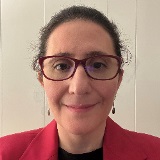
Sultan Ciftci-Yilmaz, PhD, Senior Scientist II, Protein Design & Production, Merck Research Labs

Sultan Yilmaz, Ph.D., is a seasoned Senior Scientist with over 5 years of experience in the biotechnology industry, currently serving as a Senior Scientist II at Merck's Discovery Biologics division in South San Francisco, California. With a strong background in recombinant protein production, antibody discovery, and characterization, Sultan Yilmaz has been instrumental in advancing biologics research and development. During her tenure at Merck, Sultan Yilmaz has demonstrated extensive proficiency in automated protein production utilizing cutting-edge platforms such as Tecan, Hamilton, and Lynx, contributing significantly to the optimization of transfection and purification processes. Furthermore, she has played a pivotal role in mammalian cell culture process development, showcasing expertise in working with various mammalian systems including HEK 293, CHO cells (ExpiCHO, HD-CHO), specifically focusing on transient protein expression. Sultan Yilmaz holds a proven track record of success, having effectively led recombinant protein production, resulting in the successful generation of monoclonal antibodies, bispecific antibodies, nanobodies (VHH), Fc fusion proteins, and antigens.

Jennifer R. Cochran, PhD, Senior Associate Vice Provost for Research and Macovski Professor of Bioengineering, Stanford University

Jennifer Cochran is the Shriram Chair of the Department of Bioengineering at Stanford University. She is a Professor of Bioengineering and, by courtesy, Chemical Engineering and a member of the Cancer Biology, Biophysics, and Immunology graduate programs. Dr. Cochran serves as the Director of the Stanford/NIH Biotechnology pre-doctoral training program, and co-Director of the Stanford NIST pre-doctoral training program. Her research group uses interdisciplinary approaches in chemistry, engineering, and biophysics to study complex biological systems and to develop new tools for basic science and biomedical applications. Dr. Cochran translational interests span protein-based drug discovery and development for applications in oncology and regenerative medicine, and development of new technologies for high-throughput protein analysis and engineering. Dr. Cochran obtained her Ph.D. in Biological Chemistry from the Massachusetts Institute of Technology, where she also completed a postdoctoral fellowship in Biological Engineering.
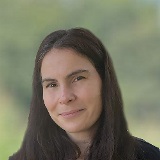
Sivan Cohen, PhD, Senior Principal Scientist, Genentech

Dr. Sivan Cohen is a Principal Scientist in the Department of BioAnalytical Sciences (BAS) at Genentech. A trained immunologist, she received her PhD in Immunology from the Weizmann Institute of Science and conducted her postdoctoral training in Duke University. Sivan joined Genentech in 2017, and currently leads the development and implementation of in silico and in vitro bioanalytical assays to support evaluation of immunogenicity potential of Genentech’s biotherapeutic products.

Frank Comer, PhD, Director, Tumor Targeted Delivery, Early Oncology R&D, AstraZeneca

Frank is a Director in Early Oncology Discovery at AstraZeneca within the ADC Portfolio team. He received his PhD in Biochemistry from the University of Alabama, Birmingham, in 2000, where he studied under Professor Gerald Hart to elucidate the roles of intracellular O-GlcNAc glycosylation. He moved to the National Cancer Institute where he completed post-doctoral studies in Carole Parent’s laboratory, studying the role of the PI3 kinase pathway in spatial sensing and chemotaxis. Frank then joined Wellstat Therapeutics in 2007, where he led and contributed to several projects ranging from conjugate vaccines to therapeutic proteins, prior to joining AstraZeneca in 2012. Since joining AstraZeneca, he has held positions of increasing responsibility, with a research focus on antibody-drug conjugates and bispecific antibodies. He has served as a session organizer/chair in the “Advancing Bispecific Antibodies” track at PEGS since 2018.

Joshua J. Coon, PhD, Professor, Biomolecular Chemistry, University of Wisconsin Madison

Coon holds the Thomas and Margaret Pyle Chair at the Morgridge Institute for Research and is a Professor of Chemistry and Biomolecular Chemistry at the University of Wisconsin-Madison. His program specializes in the development and application of novel chemical instrumentation and molecular analysis methodology. The team uses these technologies for studies ranging from basic biochemical questions in model organisms to translational work in human subjects. Coon has published over 350 peer-reviewed manuscripts that have collectively received nearly 35,000 citations. His work has been recognized by numerous awards including the F.C. Donders Chair at Utrecht University (Netherlands), Discovery in Proteomic Sciences Award (Human Proteome Organization), H.I. Romnes Faculty Fellow (UW-Madison), the Biemann Medal (American Society for Mass Spectrometry), the Pittsburgh Conference Achievement Award (Pittcon Society), Ken Standing Award (U. Manitoba), among many others. So far Coon has produced over 40 Ph.D. graduates and around 15 postdoctoral scholars é many of whom are now on the faculty of top academic institutions across the nation.

Christopher Cooper, PhD, Director and Head of Protein Sciences, CHARM Therapeutics

Chris joined CHARM Therapeutics, an AI-driven biotech company as Director and Head of Protein Sciences in 2022. CHARM’s research focuses on novel approaches for cancer drug discovery using protein and ligand co-folding algorithms for hard-to-drug targets. Prior to this, Chris was the Director of Protein Science at Peak Proteins, but for most of his career he studied the biochemistry and structural molecular biology of DNA repair and replication. He was a Senior Lecturer in Biological Sciences at the University of Huddersfield for 6 years and performed his postdoctoral research at the University of Oxford, working at the Structural Genomics Consortium and Sir William Dunn School of Pathology. During this period Chris was also a College Lecturer in Biochemistry at The Queen’s College, and a Junior Research Fellow at Linacre College.

Christopher R. Corbeil, PhD, Research Officer, Human Health Therapeutics, National Research Council Canada

Dr. Christopher Corbeil is a research officer at the National Research Council Canada (NRC) who specializes in the development and application of computational tools for biotherapeutic design and optimization. He is also an associate member of the McGill Biochemistry Department and teaches classes in Structure-Based Drug Design at McGill University. After receiving his PhD from McGill University, he joined the NRC as a Research Associate investigating the basics of protein-binding affinity. Following his time at the NRC he joined Chemical Computing Group as a research scientist developing tools for protein design, structure prediction, and binding affinity prediction. He then decided to leave private industry and rejoin NRC with a focus on antibody engineering. Dr. Corbeil has authored over 30 scientific articles and is the main developer of multiple software programs.

Lauren T. Cordova, PhD, Senior Scientist, Merck & Co. Inc.

Lauren Cordova is a senior scientist at Merck specializing in upstream bioprocess development and biotechnology. She has over 10 years of experience working with bacteria, yeast, and mammalian cells. She earned her PhD from the University of Texas at Austin focused on the yeast Yarrowia lipolytica. She then pivoted to biopharmaceutical research as a post-doctoral researcher with Dr. Kelvin Lee at the University of Delaware (UD). During this time, she developed a qPCR assay to predict stability in early cell line development and established a reference platform for mAb production in CHO. She is a recipient of the Rosalind Franklin Award (2023) for her article published in Industrial Biotechnology. Lauren also served as the laboratory director for ImmerseDelaware, an academic é industry research lab at UD sponsored by Waters. Lauren joined Merck in 2023 and supports the Novel Expression Systems team within Process Research & Development working with Pichia pastoris.
.tmb-0_i.jpg)
Ivan R. Correia, PhD, Senior Research Fellow & Head, Global Protein Sciences, AbbVie, Inc.
.tmb-0.jpg)
Ivan Correia is a Senior Research Fellow and head of the Cell and Protein Sciences Team at AbbVie Bioresearch Center (ABC). He holds a Bachelor of Science degree in Microbiology, a Master of Science degree in Biochemistry, a master’s degree in business administration and a PhD in Molecular Pharmacology and Experimental Therapeutics. His post-doctoral training was at the Whitehead Institute, MIT in Cambridge, MA. Prior to joining AbbVie, he was Chief Scientific Officer at a start-up biotechnology company studying the amyloid beta protein in Alzheimer’s disease. Over the years, Ivan’s electron microscopy experience has contributed toward a better understanding of DVD-lg molecules and helped AbbVie differentiate from competitor molecules. His studies in liquid formulation provided important developability insights for monoclonal antibodies and his expertise on the role of Fc glycans on clearance of IgG molecules enabled the transition of AbbVie’s first immunocytokine, ABBV-022, into clinical development. He has published many of these findings in peer reviewed journals and received numerous invitations to chair and/or speak at national and international meetings. Ivan has greatly expanded the scope of his group with expertise in protein engineering, expression, purification, analytical characterization, conjugation chemistry, PEGylation, glycan analysis and Fc biology that has served to advance AbbVie’s pipeline. His group has moved beyond recombinant and native protein generation; leveraging genetic analysis, transposase technology, gene dosage, stable cell lines, Crispr/Cas9 and other techniques to achieve impressive results. Under his leadership a newly established rAAV Research and Production team will advance AbbVie’s rAAV Discovery Pipeline. All told, Ivan has significantly enhanced AbbVie’s ability to generate biologic molecules against challenging targets across therapeutic areas.
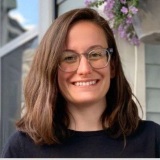
Lauren Creeden, Head of Clinical CMC Execution, Clarity Pharmaceuticals

Lauren Creeden, MPH, is a seasoned leader in radiopharmaceutical drug development and clinical operations, currently serving as the Head, Clinical CMC Execution at Clarity Pharmaceuticals. She previously served as Director, Clinical Operations at Clarity as the first US clinical hire. With over a decade of experience in the industry, Lauren brings exceptional expertise in complex clinical trials from Phase I to Phase III while understanding the intricacies of radiopharmaceutical development. Her career includes impactful roles at Fusion Pharmaceuticals, now part of AstraZeneca, and Checkmate Pharmaceuticals, now part of Regeneron Pharmaceuticals Inc., where she contributed significantly to advancing clinical programs and delivering high-quality results.
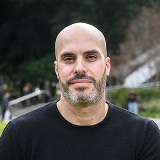
Rony Dahan, PhD, Principal Investigator, Immunology, Weizmann Institute of Science

Dr. Rony Dahan is an assistant professor in the Department of Systems Immunology at the Weizmann Institute of Science. His research focuses on cancer immunity and immunotherapy, specifically enhancing immune responses against cancer through innovative antibody engineering and detailed studies of Fc?R pathways. During his postdoctoral work (2013-2017) at Rockefeller University with Prof. Jeffrey Ravetch, Dr. Dahan made critical contributions to the development of the Fc-engineered CD40 antibody, 2141-V11, now in Phase II clinical trials. Since founding his lab in 2017, he has pioneered novel immunotherapies, including bispecific antibodies and dendritic-T cell engagers, with several therapies advancing through clinical development. His work continues to shed new light on the mechanisms of action of immunotherapies, addressing key challenges in the field.
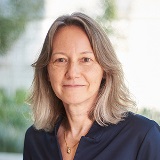
Jutta Deckert, PhD, Vice President, Research & Development, Iksuda Therapeutics

Jutta Deckert is the VP of Research & Development at Iksuda Therapeutics where she is responsible for designing and implementing the company’s pipeline strategy across research, preclinical and clinical activities for the advancement of novel ADC therapeutic candidates. She previously served as a Global Program Team Director with Servier following the Shire Oncology acquisition in 2018 and oversaw development of antibody and CAR-T assets to Phase 1 POC in solid tumor indications and hematologic malignancies. She began her career in the ADC field at ImmunoGen in 2002, where she held a range of positions of increasing responsibility in Research and Development. At ImmunoGen she was a key contributor to the successful progression of multiple compounds into clinical development, including CD38-targeting isatuximab (approved for treating multiple myeloma) and an CD37-targeting ADC, naratuximab emtansine, for the treatment of B-cell malignancies. She earned her Ph.D. in biology from the University at Albany, State University of New York and completed a postdoctoral fellowship at Harvard Medical School.

John R. Desjarlais, PhD, CSO, Xencor

Dr. Desjarlais is the Executive Vice President, Research and CSO at Xencor, Inc. Since joining Xencor in 2001, Dr. Desjarlais has overseen the company’s engineering, discovery, and preclinical work on antibodies and other proteins. With his coworkers, Dr. Desjarlais has developed several novel technologies for the optimization of antibodies and other proteins, including a platform for generation of bispecific antibodies, and has led the discovery of multiple therapeutic antibody candidates, including CD3 bispecific antibodies, checkpoint bispecific antibodies, and cytokine-Fc fusions for treatment of a variety of diseases. Dr. Desjarlais oversees all of Xencor’s discovery research and preclinical activities, from project conception and candidate generation through preclinical proof-of-concept and early development. Prior to Xencor, Dr. Desjarlais was an Assistant Professor of Chemistry at Penn State University (1997-2001), where he developed and tested methods for the de novo design of protein sequences. He began his work in the field of protein design as a Jane Coffin Childs Fellow at UC Berkeley. Dr. Desjarlais holds a PhD in Biophysics from the Johns Hopkins University and a BS degree in Physics from the University of Massachusetts, Amherst.
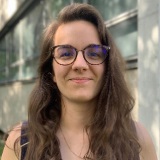
Evolene Desligniere, PhD, CNRS Researcher, ICSN, Paris-Saclay University

Dr. Evolène Deslignière obtained her M.Sc. in analytical sciences in 2018 from the University of Strasbourg in France, where she pursued a Ph.D. on native ion-mobility mass spectrometry for the characterization of therapeutic antibody products. She then moved to the Netherlands, working as a post-doctoral researcher in the group of Albert Heck to develop single-particle mass approaches for heterogeneous proteins and nucleic acids. She currently works as CNRS researcher at the ICSN (Institut de Chimie des Substances Naturelles), near Paris in France, where she focuses on the development of native and charge detection MS methods to study large polydisperse protein assemblies.

Rakesh Dixit, PhD, DABT, President & Founder, Bionavigen Oncology, LLC and Regio Biosciences

Rakesh Dixit is an accomplished executive, inventor, and scientist with over 35 years of success with top biotechnology and pharmaceutical companies, including Merck, Johnson & Johnson, and Medimmune - AstraZeneca. Currently, he is President and CSO of Regio Biosciences and Bionavigen, LLC. He is a Board Member of Regio Biosciences and a key member of multiple scientific advisory boards. Rakesh is also a chief adviser and consultant for more than 20 companies worldwide. His biopharmaceutical peers selected Rakesh as one of the 100 Most Inspiring People in the Pharmaceutical Industry by PharmaVOICE in 2015. Rakesh received the Most Prestigious Award of Long-Standing Contribution to ADCs by World ADC (Hanson-Wade), 2020. From 2006 to 2019, Rakesh was a Global Vice President of the Biologics R&D at Medimmune - AstraZeneca. Rakesh has unique expertise in developing biologics (e.g., monoclonal antibodies, bispecific biologics, antibody-drug conjugates, fusion proteins, peptides, gene and cell therapies, etc.) and small-molecule biopharmaceuticals. His areas of expertise include discovery, early and late preclinical development, safety assessment, DMPK, and translational sciences. Dr. Dixit conducted extensive graduate and post-graduate training in Pharmacology/ToxicologyéBiochemistry with both Indian and USA Institutions (e.g., Case Western Reserve University, Medical College of Ohio, University of Nebraska) and is a Diplomate and Board Certified in Toxicology from the American Board of Toxicology, Inc. since 1992.

Achim Doerner, PhD, Scientific Director, Antibody Discovery & Protein Engineering, Merck Healthcare KGaA, Darmstadt

A biochemist by training, Achim has been designing and progressing bispecific antibodies and bispecific ADCs preclinically for over a decade, including technology development for their effective screening. Complementary interests are protein engineering and optimized screening of complex biotherapeutics via mammalian libraries in microfluidic functional screens.
.tmb-0_h.jpg)
Helen Dooley, PhD, Associate Professor, Microbiology and Immunology, University of Maryland, Baltimore
.tmb-0.jpg)
Helen Dooley obtained her PhD at the University of Aberdeen, UK. After a post-doc at the University of Maryland, Baltimore, USA, she spent a few years working in the Global Biotherapeutics division of Wyeth, then Pfizer. She is now Associate Professor at University of Maryland, School of Medicine where she leads a team studying immune system evolution and the novel immune molecules of non-mammalian species.
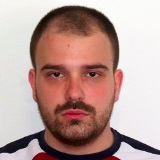
Milos Drobnjakovic, Research Associate, Systems Integration, NIST

Milos Drobnjakovic is an expert in developing smart data standards for various manufacturing domains, as well as developing and applying machine learning and hybrid models in both drug development and biomanufacturing control. Currently, he is the project lead for NIIMBL Big Data Adaptive control group and the key contributor to developing an Ontological Standard for biomanufacturing. Also, he is the co-chair of the Industrial Ontologies Foundry (IOF) Core Ontology working group and leads an effort to apply ontologies in advancing machine learning approaches in biomanufacturing and additive manufacturing.

Zhimei Du, PhD, CSO, BlueSphere Bio

Dr. Zhimei Du has extensive experience in the fields of Cell/Gene Therapy and Biologics with significant experience in both early and late-stage development. Currently assuming the role of Chief Scientific Officer at BlueSphere Bio, she leads Research and Development organization, directing efforts toward the further advancement of Neoantigen technologies and TCR-based therapeutics development across various disease areas. Prior to joining BlueSphere Bio, Dr. Du served as Vice President at Atara Biotherapeutics, where she focused on accelerating the progress of both early and late-stage cell therapy pipelines, and later as Vice President at Landmark Bio, building and overseeing Translational Research and Early Development. Notably, her tenure at Merck & Co. as Executive Director and Global Head of Process Cell Sciences saw her establish innovative core functions and multi-site teams on a global scale, particularly in cell therapy and biologics development. Dr. Du has been instrumental in driving successful business development initiatives, evaluating and forging partnerships in biologics, ADC, cancer vaccine, CAR-T, and CAR-NK programs. Her extensive research contributions encompass a myriad of patents and publications in cell and gene therapy, process development, protein engineering, cell engineering, vector engineering, and genetic/epigenetic biomarker development. Dr. Du's academic journey commenced with an M.D. from Beijing University Medical School, followed by the attainment of her Ph.D. in Immunology from Cornell University Medical College. She further honed her expertise as a Postdoctoral Fellow in the laboratory of Robert G. Roeder at the Rockefeller University, renowned for its groundbreaking contributions to transcription, in vitro transcription, and epigenetics.
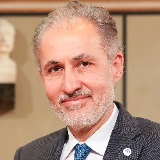
Dan G. Duda, DMD, PhD, Professor, Radiation Oncology, Harvard Medical School; Director, Translational Research in GI Radiation Oncology, Massachusetts General Hospital

Dr. Duda obtained his DMD from the University of Medicine Iasi, Romania, in 1993 and earned a PhD in Medical Sciences (Gastrointestinal Surgery) from Tohoku University Graduate School of Medicine, Sendai, Japan, in 2001. After graduation, he pursued postdoctoral training with Professor Rakesh K. Jain in the Steele Laboratories for Tumor Biology, Department of Radiation Oncology, Massachusetts General Hospital (MGH) and Harvard Medical School in Boston. He became a Faculty member in 2004, and then rose through the ranks to Full Investigator at MGH Research Institute in 2016 and Professor of Radiation Oncology at Harvard Medical School in 2023. In 2016, Dr. Duda was appointed Director of Translational Research in Gastrointestinal Radiation Oncology at MGH.
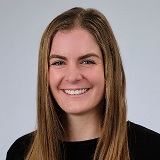
Karen E. Duffy, PhD, Principal Scientist, Protein Engineering, Manifold Biotechnologies Inc.

Karen Duffy earned her PhD from Cambridge University, where she was awarded a Gates Cambridge Scholarship to support her research on the directed evolution of polymerases for the synthesis of modified DNA. She is currently a Principal Scientist at Manifold Bio leading the Protein Engineering team in designing and optimizing therapeutic proteins using multiplexed in vivo screening.

Jakob Dupont, MD, Executive Partner, Sofinnova Investments

Jakob Dupont brings more than two decades of experience in the field of oncology and other therapeutic areas, in developing therapies and programs dedicated to addressing high unmet medical needs. He is currently a member of the board of directors for Avenzo Therapeutics. Prior to joining Sofinnova, Jakob was previously Global Head of Research & Development (R&D) and Executive Vice President at Atara Biotherapeutics, where he helped lead efforts to secure regulatory approval of the first-in-kind product, Ebvallo® and advancing a multiple sclerosis candidate (ATA188) to a key Phase 2 read out. Prior to Atara, he served as the Chief Medical Officer at Gossamer Bio, overseeing global development, regulatory, and quality activities for the company, and advancing therapeutics in the disease areas of immunology, inflammation, and oncology. Before Gossamer Bio, Jakob served as Vice President and Global Head of Breast and Gynecologic Cancer Development for Genentech/Roche, where he was responsible for the global development of Herceptin®, Perjeta®, Kadcyla®, Tecentriq®, among others, and where he previously led the development of Avastin® for GYN and Breast Cancers when starting his industry career. Jakob was also Chief Medical Officer and Senior Vice President of OncoMed Pharmaceuticals, Inc., where he oversaw the successful submissions of eight investigational new drug applications (INDs) and 26 clinical trial initiations. Through his industry career he has received numerous grants and awards, contributed to 12 regulatory approvals, 13 successful IND filings, co-authored 47 peer-reviewed publications, and has 18 patents. Jakob received his M.D. from the Joan & Sanford I. Weill Medical College of Cornell University and his M.A. in philosophy from New York University. He also served as Assistant Chief Resident and completed his Medical Oncology Fellowship at Memorial Sloan Kettering Cancer Center (MSK), his Internal Medicine Residency at the New-York Presbyterian Hospital - Cornell Campus, and his Internal Medicine Internship at The University of Michigan Medical Center.

Michael Dyson, PhD, Vice President, Antibody Discovery & Engineering, Ichnos Glenmark Innovation

Michael Dyson is Vice President, Antibody Discovery and Engineering at Ichnos Glenmark Innovation (IGI) responsible for the development of multi-specific immune engager therapeutics for cancer immunotherapy. He was previously Chief Technology Officer and co-founder at IONTAS Ltd, Head of Protein Engineering at Acambis plc (acquired by Sanofi), Project Leader at the Wellcome Trust Sanger Institute and held management positions in VC backed start-ups. He has either directly project managed or overseen multiple antibody discovery and development projects including 8 biologics in human clinical trials, author of multiple peer reviewed publications and inventor of 20 patents and patent applications. He holds a PhD in organic synthetic chemistry from the University of Birmingham with post-docs at MIT and the Universities of Edinburgh and Cambridge.
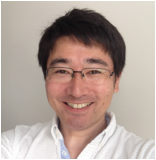
Takashi Ebihara, COO, GeneFrontier Corporation

Takashi is COO of GeneFrontier Corporation (GFC) since 2010. Takashi got his PhD for the research of cell-free protein expression system at Tokyo Institute of Technology in 2000 and joined in VC in life science industry. At 2003, Takashi was involved in establishing of GFC and fully committed to business development of GFC from the beginning.

Peter Emtage, PhD, CEO, Santa Ana Bio

Peter is the CEO of Santa Ana Bio, a precision immunology company. In parallel Peter is also a Venture Partner with Versant Ventures. Prior to joining Versant, Peter served as the Global Head of Cell Therapy Research at Kite Pharma, a Gilead company. Previous roles include Chief Scientific Officer at Cell Design Labs Inc. (CDL), which was acquired by Gilead, and Vice President of Immune Mediated Therapy in the Oncology Innovative Medicines group at MedImmune. He has over 25 years of drug development experience in the fields of oncology, autoimmunity, infectious diseases and inflammation.Peter holds a B.S. and M.S. in Molecular Biology and Genetics from the University of Guelph and received his Ph.D. in Molecular Virology, Immunology and Inflammation at McMaster University. At the beginning of his career, Peter did a post-doctoral fellowship at the National Cancer Institute and held roles at Aventis Pasteur and Harvard Medical School.

Julian Englert, MS, Co-Founder and CEO, Adaptyv Biosystems

CEO & Cofounder of Adaptyv Bio. Protein designers should be designing, not pipetting. We build automated wet labs to allow you to synthesize and test any protein you design!
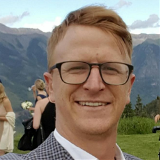
M. Frank Erasmus, PhD, Head, Bioinformatics, Specifica, an IQVIA business

M. Frank Erasmus is the head of bioinformatics at Specifica, Inc. where he specializes in the use of next-generation sequencing technologies and software development to aid in the design of and selection from therapeutic antibody libraries. Formerly, Frank was awarded a national fellowship from the National Cancer Institute for his translational research associated with B cell precursor acute lymphoblastic leukemia conducted at the Spatiotemporal Modeling Center and Los Alamos National Labs. He brings over 13 years of experience in both biotechnology and academic settings in the development and characterization of therapeutic antibodies using theoretical modeling, bioinformatics, and experimental approaches.

David M. Evans, PhD, Head of Discovery, Research, Sirnaomics Inc.

Dr. Evans obtained his BSc and PhD from Imperial College, London. Over the last 3 decades he has been responsible for building and leading scientific research teams focused on target validation and drug discovery in Oncology and CNS indications. David has more than 18 years’ experience in the RNAi field é building genome scale siRNA screening capabilities for target identification at TGEN (as Director Drug discovery in Oncology) and Dharmacon (as Sr. Director RNAi Discovery and Therapeutic Service division) prior to cofounding Sirnaomics to focus on developing siRNA as a therapeutic. David is currently Head of Drug Discovery at Sirnaomics and is responsible for leading the Antibody Oligo Drug Conjugate (AODC) and Polypeptide Nanoparticle delivery of siRNA to tumor tissue to treat Cancer.

Jonny Finlay, PhD, CEO, Centessa

Jonny Finlay is the CEO of UltraHuman, an antibody drug discovery biotech in the UK that is developing a series of therapeutics for inflammation and oncology. Prior to co-founding UltraHuman, Jonny led research teams in Biologics Discovery at Pfizer and Wyeth, and carried out postdoctoral research in recombinant protein engineering at several institutes, including the Centre for Biologics Evaluation and Research, FDA.
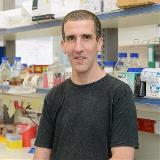
Sarel J. Fleishman, PhD, Professor, Biomolecular Sciences, Weizmann Institute of Science; Chief Scientist, Scala Biodesign

Sarel Fleishman is an associate professor at the Weizmann Institute of Science, where his research team develops a computational protein-design methodology to address challenges in biochemistry and protein engineering. As a postdoc with David Baker in Seattle (2007-2011), Sarel developed the first accurate methods for designing protein binders, culminating in the design of broad-specificity influenza inhibitors. At the Weizmann Institute (2011-), his team developed protein design methods to the level of accuracy and reliability required to design large and complex proteins such as enzymes, antibodies, and vaccine immunogens - a protein that was designed in the Fleishman lab has recently been approved for mass production as a vaccine for malaria. The team recently developed a fully automated method, called PROSS, for dramatically improving the stability and expressibility of recalcitrant proteins and several design methods for improving affinity, specificity, and catalytic rates in antibodies and enzymes. Current focuses include developing methods for designing large repertoires comprising millions of enzymes or antibodies for one-shot isolation of highly active, specific, and stable binders, inhibitors, or enzymes. Among Sarel’s academic awards were the Clore Ph.D. Fellowship (2003-2006), the Science Magazine award for a young molecular biologist (2008), a postdoctoral fellowship (2006-2009) and a career-development award (2012-2015) from the Human Frontier Science Program, European Research Council Starting and Consolidator Grants (ongoing), the Alon Fellowship, the Henri Gutwirth Prize, and the Weizmann Scientific Council Award.
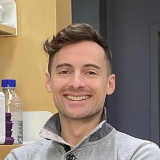
Ryan A. Flynn, PhD, Assistant Professor, Stem Cell and Regenerative Biology, Boston Children's Hospital

Ryan is a New Jersey native who completed his undergraduate training at MIT, where he worked in the lab of Phillip Sharp on small noncoding RNA biology. Subsequently, he moved to Stanford where he completed his MD and PhD with Howard Chang, developing methods to study RNA-protein interactions. From this work, he won the Weintraub Graduate Student Award. As a post-doc he changed fields to learn both chemistry and glycobiology with Carolyn Bertozzi at Stanford as a Damon Runyon Cancer Research Postdoctoral Fellow. At the beginning of 2021, the Flynn Lab opened at Boston Children’s Hospital in the Stem Cell Program and the Department of Stem Cell and Regenerative Biology at Harvard University. The Flynn Lab is currently focused on advancing methods and mechanisms surrounding the glycoRNA molecule, which operates at the interface of RNA biology and the secretory pathway.

Rachel Fong, Senior Director, MPA Commercial Operations, Integral Molecular

Rachel Fong is the Director of Strategic Partnerships, Membrane Proteome Array, at Integral Molecular, with over 10 years of experience at the company. Rachel manages relationships with customers, collaborators, and partners for MPA projects. As a founding member of the scientific team that launched this platform, she brings a unique perspective that helps guide partners from initial discussions to successful project completion. Rachel joined Integral Molecular in 2010 and is a co-author on over a dozen publications.
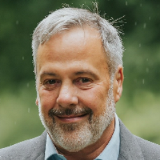
David J. Fontana, PhD, Chief Business and Strategy Officer, Umoja BioPharma

David Fontana is the Chief Operating Officer at Umoja Biopharma. David joins Umoja from Bristol Myers Squibb, where he was an executive in the Cell Therapy Franchise and part of the Lymphoma Disease Strategy Team. There, he led the development of CD19 CAR T cell therapy BREYANZI® from clinical evaluation to commercialization. Prior to this role, he led the advancement of late-stage immuno-oncology assets and translational medicine as Vice President of Immuno-Oncology at Pfizer. David has successfully guided multiple drug candidates to significant milestones throughout his career, including ADCETRIS® (CD30 antibody-drug conjugate, Brentuximab vedotin), BAVENCIO® (avelumab, anti PD-L1), and relatlimab, (anti-LAG-3 antibody). David received a Ph.D. in Pharmacology from Wayne State University and holds a PMP certification from the Project Management Institute.
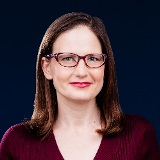
Shelley Force Aldred, PhD, Co-Founder and CEO, Rondo Therapeutics

Shelley Force Aldred, Ph.D., is Co-Founder and CEO of Rondo Therapeutics. Prior to starting Rondo, Dr. Force Aldred was a member of TeneoBio’s founding team where she led preclinical development for the company’s CD3 T-cell engager platform which ultimately generated $1.5B in up-front payments through partnerships and an acquisition by Amgen. Early in her career, Dr. Force Aldred developed a passion for starting companies when she co-founded SwitchGear Genomics and later sold it to Active Motif. Dr. Force Aldred earned a Ph.D. in Genetics from Stanford where she continues to be involved as an advisor for Stanford’s SPARK translational medicine program and as a member of the Board of Governors for the Stanford Medicine Alumni Association.

Fredrik Frejd, PhD, CSO, Affibody AB

Fredrik Frejd is the Chief Scientific Officer at Affibody and has over 25 years of experience in life science research with particular expertise in biologics drug development and tumor biology, phage display and therapeutic protein engineering of alternative scaffolds. Dr. Frejd received his Ph.D. from the Swiss Federal Institute of technology, ETH, in Zurich in 2001 and joined Affibody AB in 2002. Dr. Frejd is also an adjunct professor in cancer precision medicine at the department for Immunology, Genetics and Pathology at Uppsala University, with a special focus on development of minimized tumor targeting agents for molecular radiotherapy.

Gerhard Frey, PhD, Vice President, Technology Development, BioAtla LLC

Dr. Frey is the Vice President of Technology Development at BioAlta. Previously, he was the principial scientist at Diversa.

Norbert Furtmann, PhD, Head, Computational and High-Throughput Protein Engineering, Large Molecule Research, Sanofi

Upon finishing his studies in Pharmaceutical Sciences, Dr. Furtmann pursued his interdisciplinary Ph.D. thesis in Computational Life Sciences and Pharmaceutical Chemistry at the University of Bonn, focusing on computer-aided design, synthesis, and biological evaluation of protease inhibitors. After starting his professional career at Merck KGaA as Principal Scientist, he joined Sanofi in 2016 as Lab Head for Bioinformatics within the Biologics Research department. Currently, Dr. Furtmann is heading the Data Science & Computational Design group to support the discovery of next-generation protein therapeutics.
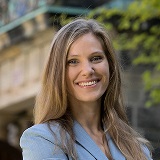
Natalie Galant, PhD, CEO, Paradox Immunotherapeutics

Dr. Natalie Galant is the CEO and co-founder of Paradox Immunotherapeutics, a pharmaceutical company dedicated to the creation of antibody therapies for the treatment of rare protein misfolding diseases, especially those characterized by amyloidosis, using a platform with a proven track record of success. Prior to this role, Natalie received her PhD from the University of Toronto's Department of Medical Biophysics, where her PhD work helped lead to the development of a monoclonal antibody currently in FDA clinical trials for the treatment of cardiac amyloidosis. She is the recipient of numerous academic fellowships, awards (incl. winner of BIO 2023 Start-Up Stadium), and has co-authored several scientific publications in research areas ranging from chemical informatics and cryo-EM to immunotherapy drug development.

Jinming Gao, PhD, Professor, Cancer Research, University of Texas Southwestern

Dr. Jinming Gao is a distinguished researcher and professor at UT Southwestern Medical Center, where his research focuses at the intersection of nanotechnology and cancer research. With an academic background in chemistry and biomedical engineering, Dr. Gao leads a research group that aims to develop innovative nanotechnology to improve cancer diagnosis and therapy. One notable achievement of the Gao Group is the development of proton transistor nanoparticles, such as Pegsitacianine, which can digitize tumor acidotic signals stemming from dysregulated cancer cell metabolism. This nanosensor has received Breakthrough Therapy Designation from the Food and Drug Administration and has shown promising results in Phase 2 clinical trials for identifying unresected residual diseases in cancer patients. In cancer therapy, the Gao Group has discovered synthetic polymers that can non-canonically activate the STING pathway, leading to improved tumor and cell selectivity and enhanced antitumor immunity. A nanoparticle STING agonist from this research has entered first-in-human trial in 2023. Currently, the Gao Group is investigating tumor acidotic biology and its impact on immune evasion, as well as developing immune-engineering strategies to activate innate and adaptive immunity for safe and effective cancer immunotherapy.

Francis Gaudreault, PhD, Associate Research Officer, Human Health Therapeutics, National Research Council Canada

Francis obtained his PhD in Biochemistry from University of Sherbrooke in 2015, during which he developed a molecular docking program for docking small molecules to flexible protein or RNA targets. While doing his PhD studies, Francis co-founded a successful IT company for automating the management of scientific conferences. Francis joined the National Research Council (NRC) of Canada in 2016, where he has taken part in and led various efforts in the discovery and engineering of antibodies or other biologics. In such efforts are included the structure prediction of antibodies alone or in complex, the affinity assessment of antibody-antigen complexes, and the detection of antibody developability issues. Francis is leading the technical efforts in using artificial intelligence for antibody discovery.
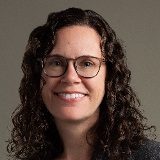
Melissa Geddie, PhD, Vice President Drug Discovery, Diagonal Therapeutics

Melissa is the Vice President of Drug Discovery at Diagonal Therapeutics. She has over 15 years of industry experience in the discovery and development of innovative antibody drugs. Melissa has also worked at Biogen, Kiniksa Pharmaceuticals, and Merrimack Pharmaceuticals in their early discovery groups. She was a postdoctoral fellow at the Whitehead Institute and received her PhD in Biochemistry from Emory University.
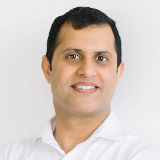
Nimish Gera, PhD, Vice President, Biologics, Mythic Therapeutics

Nimish Gera is the Vice President of Biologics at Mythic Therapeutics leading multiple projects to engineer and develop novel antibody and antibody-based drugs in oncology and immuno-oncology. Prior to Mythic, Nimish has over fifteen years of experience in antibody and protein engineering with five years leading bispecific antibody programs in several disease areas such as rare diseases, oncology, and immunology at Alexion Pharmaceuticals and Oncobiologics. Nimish received his PhD degree in Chemical and Biomolecular Engineering from North Carolina State University and a B.Tech degree in Chemical Engineering from Indian Institute of Technology, Guwahati.

Hanspeter Gerber, PhD, CSO, Sutro Biosciences

Hanspeter has over 20 years of research and development experience in oncology, including antibody-drug conjugates (ADCs), redirected T-cell targeting compounds and adoptive T-cell therapies. He has been leading Pfizer’s Bioconjugates division as CSO, overseeing Pfizer’ s efforts in ADC sand, redirected T-cell targeting and nanoparticle development. He previously held senior leadership positions at Seattle Genetics and Genentech. Hanspeter is currently CSO and Senior Vice President at 3T Biosciences, where he is overseeing platform- and therapeutic program development of TCR-T and cancer vaccine therapeutics. He is a recognized leader in oncology drug development, spanning from target identification and validation, development of novel therapeutic modalities and companion diagnostics, regulatory filings and translational support for early clinical development. He has a proven track record in making initial contacts and to successfully execute external collaborations and licensing deals with academia and corporate partners. Hanspeter is an internationally recognized leader in Oncology drug discovery and development, with a strong record of accomplishments in the field of targeted therapeutics. His work has led to more than eight IND filings for ADCs and bi-specifics, and contributions to BLA submissions of therapeutic antibodies (Avastin) and two ADCs (Mylotarg, Besponsa) in Oncology. He is an author on over 100 peer-reviewed published papers and inventor on over 20 patents in the field of Oncology drug discovery. Dr. Gerber is also a member of the board at NBE Therapeutics, an early stage ADC company located in Basel, Switzerland, developing ADCs with a unique and novel mechanism of action. Hanspeter Gerber received an MS in Biochemistry and a PhD in Molecular Biology from the University of Zurich, Switzerland.

Tariq Ghayur, PhD, Tariq Ghayur Consulting, LLC; Entrepreneur in Residence, FairJourney Biologics

Dr. Ghayur retired from AbbVie (July 2021) and works as an independent consultant. He has 30+ years’ experience leading multi-disciplinary and cross-therapeutic area Biologics discovery programs and developing novel Biologics platforms. Several biologics programs resulted in clinical development candidates. Dr. Ghayur led the team that pioneered the discovery and development of the Dual é variable é Domain -Ig (DVD-Ig) and other multi-specific platforms. Dr. Ghayur also led the team that defined the uptake, intracellular trafficking, and lysosomal degradation of anti-TNF mAbs/DVD-Ig, resulting in the concept of anti-TNF-ADC (next-Gen anti-TNF). In addition, Dr. Ghayur proposed and helped implement several corporate-wide (Abbott & AbbVie) initiatives to foster cross-functional/cross-TA collaborations to bring forward innovative concepts/programs.

Anita Ghosh, PhD, Senior Scientist, Antigen Production, Institute for Protein Innovation

Anita Ghosh is a Senior Scientist at the Institute for Protein Innovation (IPI), a non-profit research organization that generates synthetic, recombinant antibodies targeting native, human extracellular, and secreted proteins. As the lead for Antigen Production, she oversees the design, production, and delivery of cell- surface receptor antigens from mammalian expression hosts. Over the past three years, her team has processed and delivered over 700 variants of 300 unique targets from mouse and human cell-surface receptor protein families. Ghosh has a background in structural biology, completed a Ph.D. at Purdue University and post-doctoral fellowships at Johns Hopkins University and Boston University.
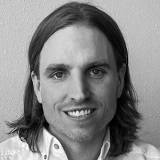
Shaemus Gleason, Executive Vice President, Clarity Pharmaceuticals

Shaemus is an accomplished professional with over 16 years of experience in the radiopharmaceutical industry. His career has spanned various roles in both small biotech firms and large pharmaceutical companies, providing him with a comprehensive understanding of the field. Shaemus's expertise ranges from the manufacturing of radiopharmaceuticals to their development in clinical trials and subsequent commercial launch and execution. This diverse background has equipped him with the ability to adapt and excel in start-up environments and with evolving product offerings. Shaemus has spoke at a number of international conference on various subjects related to radiopharmaceuticals. He also sits in the board of the Council of Radiopharmaceutical Manufacturers and is a previous board member of NRMAP, the National Radionuclide Measurement Assurance Program.
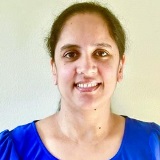
Malika Godamudunage, PhD, Senior Scientist, AbbVie

Malika Godamudunage is a Senior Scientist in research and early development (RED) sub team in biologics analytical research and development (BARD) group at AbbVie. She joined AbbVie in late 2020 and her initial work focused on preformulation development of biologics before joining ARD. Prior to that, she was a post-doctoral fellow at the university of Kansas and the university of Michigan. She obtained a B.Sc. in Chemistry at the University of Peradeniya in Sri Lanka and her M.S. and Ph.D. degrees in Chemistry from New Mexico State University.

Arnaud Goepfert, PhD, Director, Protein Sciences, Bright Peak Therapeutics

Structural biologist and protein engineer by training with 11 years of experience in small molecule and biologics drug discovery within large pharmaceutical company and biotech. Having completed my PhD at the Biozentrum, University of Basel, I moved to the Novartis Institutes for Biomedical Research as a Postdoctoral fellow to decipher the structural basis of the IL-17 cytokine signaling and contribute to the development of small molecules and biologics to block its pathway. I then moved to the Biotech sector, first at Galapagos, where I applied structure-based approaches for the design of small molecule drugs targeting autoimmune and inflammatory diseases, and then, at Ichnos Glenmark Innovation where I contributed to the discovery of bispecific antibodies for cancer immunotherapy. Since March 2022, I am heading the Protein Sciences team at Bright Peak Therapeutics with a mission to engineer novel cytokine and immunocytokine therapies for the treatment of cancer and autoimmune diseases.

Jochem Gokemeijer, PhD, Distinguished Scientist Biologics, Biologics Discovery, Johnson & Johnson

Jochem has been at Bristol-Myers Squibb for 14 years in different roles of responsibility focused on biologics drug development. For the last 8 years he has been focused on building a group for pre-clinical immunogenicity risk assessment and mitigation. He received his training at the University of Groningen and the Dana Farber Cancer Institute.
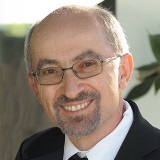
Victor S. Goldmacher, PhD, CSO, R&D, ImmuVia

30+ year experience in targeted cancer therapeutics, antibody technologies, and the biology of apoptosis Pivotal role in the discovery of three FDA approved anti-cancer biologics (ElahereTM, SarclisaTM and KadcylaTM) Started as Assistant Professor of Pathology é Harvard Medical School & Dana-Farber Cancer Institute, followed by many years at ImmunoGen, Inc. Currently CSO at ImmuVia, Inc.

Joel Goldstein, PhD, Executive Director R&D, Celldex Therapeutics

Joel Goldstein received his PhD in molecular biology from the University of Medicine and Dentistry of New Jersey (UMDNJ) in 1991. He then did his postdoctoral work at Bristol-Myers Squibb (BMS) on antibody fusion proteins prior to joining Medarex in 1994. His role at Medarex was initially to develop bispecific antibodies and fusion proteins, which then evolved into developing antibody production platforms for manufacture. Joel moved back to BMS in 2009 where he continued to lead a team developing manufacturing cell lines for the company’s biologics programs. He then joined Celldex Therapeutics in 2014 to help manage R&D efforts, including establishing antibody engineering and bispecific antibody design strategies for the company’s pipeline.
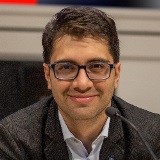
J. Castro, PhD, Senior Scientist, Cell Engineering & Analytical Sciences, Johnson & Johnson Innovative Medicine

Javier is a Chemical Engineer with a Master’s degree from Universidad de los Andes and a PhD from Vanderbilt University, where he studied soybean and mice metabolism and developed software tools leveraging mass spectrometry-based metabolomics experiments using stable isotopes in Jamey Young's lab. Currently, Javier works at Johnson & Johnson as a data scientist, specializing in multi-omics applications within Cell Engineering and Analytical Sciences.

Joao Goncalves, PhD, Full Professor, Microbiology & Immunology, University of Lisbon

Joao Goncalves is Head of the Biopharmaceutical and Molecular Biotechnology Unit and Director of iMed-Research Institute for Medicines and Pharmaceutical Sciences and Professor of Immunology and Biotechnology both part of the Faculty of Pharmacy, University of Lisbon, Portugal. Research work focuses on therapeutic antibody discovery and development ranging from autoimmune diseases to oncology. At the center of his biopharmaceutical research, he aims at rational antibody engineering as our approach to validate our theoretical concepts in autoimmune, inflammatory, cancer and infectious diseases. We are interested in biomolecular and biopharmaceutical engineering aiming at the investigation, analysis, and integration of genomic and proteomic data towards the design of therapeutic proteins. This will lead us to guide protein engineering through molecular medicine and bio-nanotechnology in a mid- to long-term timeframe. At the center of our biopharmaceutical development, we aim at rational antibody engineering as our approach to validate our theoretical concepts. Development of better characterization assays and monitoring of antibody therapy in patients, including immunogenicity and pharmacokinetics to biosimilars is current to our work. The evaluation of quality, efficacy and safety attributes of biosimilar antibodies and fusion proteins is at the centre of our clinical collaborations.
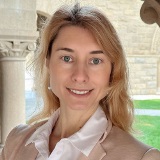
Zinaida Good, PhD, Assistant Professor (incoming), Division of Immunology and Rheumatology, Stanford University

Zinaida Good, Ph.D., is an Assistant Professor of Medicine in the Division of Immunology and Rheumatology and the Center for Biomedical Informatics Research at Stanford University School of Medicine. Her research program focuses on understanding and enhancing engineered T cell immunotherapies for cancer and immune-mediated diseases through innovative computational approaches and systems immunology. During her postdoctoral training with Drs. Crystal Mackall and Sylvia Plevritis, Dr. Good performed fate mapping studies to identify features of optimal CAR T cells in large B cell lymphoma (LBCL) and diffuse midline glioma (DMG), and discovered the role of CAR T regulatory cells in resistance to CD19-CAR in LBCL. She earned her Ph.D. in Computational & Systems Immunology from Stanford University, where she trained with Profs. Garry P. Nolan and Sean C. Bendall and developed methods to build and leverage lymphocyte differentiation trajectories in health and cancer. Dr. Good's background in experimental immunology and oncology combines two years of experience in Discovery Oncology at Genentech with B.S. and M.S. degrees in Microbiology & Immunology from the University of British Columbia, where she investigated mechanisms of T cell memory with Prof. Michael R. Gold. Her research is supported by the NIH Pathway to Independence Award, Parker Institute for Cancer Immunotherapy Bridge Fellowship, American Cancer Society Institutional Research Grant, and Parker Institute for Cancer Immunotherapy Innovation Challenge Grant. Dr. Good has been named an Arthur & Sandra Irving Cancer Immunology Fellow in 2022 and an AACR-Woman in Cancer Research Scholar in 2024.
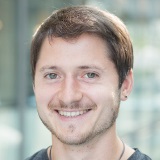
Josef Gramespacher, PhD, Co-Founder, EpiBiologics

Josef Gramespacher is a co-founder and current Principal Scientist at EpiBiologics, a company focused on developing first-in-class antibody-based therapies to degrade disease driving membrane and extracellular proteins. Prior to joining EpiBiologics, Josef was a postdoctoral fellow at UCSF working under the supervision of Jim Wells.

Victor Greiff, PhD, Associate Professor, University of Oslo and Director of Computational Immunology, IMPRINT

Dr. Victor Greiff is Associate Professor for Computational and Systems Immunology at the University of Oslo. His work focuses specifically on the development of machine learning, computational and experimental tools for the analysis, prediction and engineering of adaptive immune receptor repertoires.
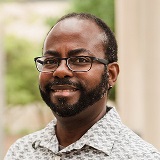
Wendell P. Griffith, PhD, Lecturer II, Chemistry, University of Texas San Antonio

Dr. Wendell P. Griffith is the Director of the Mass Spectrometry & Proteomics Core Facility at the University of Texas at San Antonio. He received a BSc degree in Chemistry in 1999 at Grambling State University, a small historically black university in northern Louisiana. He went on to earn a PhD in Chemistry in 2005 at the University of Massachusetts-Amherst where he discovered his love for mass spectrometry and its applications to biochemistry and biophysics. His postdoctoral fellowship with the Middle Atlantic Mass Spectrometry Lab at The Johns Hopkins University School of Medicine (Baltimore, MD) was where he gained expertise in mass spectrometry-based proteomics and working with time-of-flight mass spectrometers. Dr. Griffith started his independent research career as an Assistant Professor at the University of Toledo (Toledo, OH) in 2007, and later joined the UTSA community in 2015.
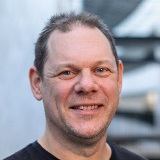
Torbjörn Gräslund, PhD, Professor, Department of Protein Science, KTH Royal Institute of Technology

Professor Torbjörn Gräslund holds a Ph.D. in Biotechnology from KTH - Royal Institute of Technology, Sweden, since 2001. After two years of post-doc training with Professor Carlos Barbas at the Scripps Research Institute, he has been principal investigator at the Department of Protein Science at KTH since 2003. His main research focus is on designing proteins for diagnostic and therapeutic applications. He has a particular focus on oncology applications but is also active in the field of auto-immune diseases. Dr. Gräslund is the inventor of several patents in the field.
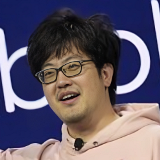
Haotian Guo, PhD, Founder & CEO, Ailurus Bio

Haotian Guo is the founder and CEO of Ailurus Bio, driving innovation at the intersection of synthetic biology and AI to advance life sciences and biotechnology. He has pioneered synthetic organelle technologies leveraging liquid-liquid phase separation to transform applications ranging from metabolic engineering to recombinant protein production, with his work featured in Cell and major media outlets. Haotian earned his Ph.D. from the University of Paris and has contributed to research and education at leading institutions, including INSERM, Tsinghua University, MIT, UCSF, and Fudan University.
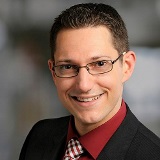
Michael Gutknecht, PhD, Principal Scientist II, Novartis Pharma AG

Michael is a trained immunologist specialized in immunogenicity profiling with over 6 years of expertise in immunogenicity risk assessment of biologics. He joined Novartis in 2017, applying his expertise to improve various immunogenicity profiling assays. As part of the cross-functional Immunogenicity Hub, Michaels team supports biotherapeutic projects by addressing mechanistic questions and providing Immunogenicity profiling utilizing an ever expanding in silico and in vitro assay toolbox.
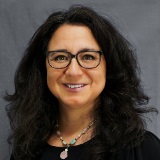
Marcela Guzman Ayala, PhD, Head of In Vitro Pharmacology, Molecular Partners

Marcela has a decade of biotech experience in drug discovery, leading research teams and activities aimed at developing immune-based therapies to address significant unmet needs in oncology. She joined Molecular Partners in 2023 and provides strategic and scientific direction for the In Vitro Pharmacology group, from target discovery to the completion of pre-clinical packages. Prior to joining Molecular Partners, Marcela held various science leadership roles at Senti Biosciences, focusing on the evaluation of novel and smart gene circuits to develop and improve cell-based therapies for the treatment of hematologic indications and solid tumors. Before that, she worked as a Scientist in Discovery Biology at FLX Biosciences, focusing on target identification and pre-clinical proof of concept (PoC) for small molecule therapies to overcome the immunosuppressive tumor microenvironment. She obtained her Ph.D. from the University of Geneva in collaboration with the Swiss Institute for Cancer Research.

Pamela Habib, MD, CMO, Therapeutics, Telix Pharmaceuticals Ltd.

Pamela Habib is Chief Medical Officer Therapeutics at Telix Pharmaceuticals. Dr. Habib is a board-certified Breast Radiologist who completed her fellowship at Harvard Medical School’s Brigham & Women’s Hospital. In clinical practice she focused on mammography, MRI, ultrasound, and breast interventional procedures. After her transition from clinical practice Dr. Habib spent time as a management consultant with McKinsey & Company, where she advised healthcare providers, payers, pharmaceutical companies, and medical device companies on strategy, growth initiatives, and margin optimization. Dr. Habib has also worked on the management side of a national oncology focused hospital system, where she designed and implemented strategic initiatives across the organization. She also spent several years at Bayer Pharmaceuticals, where she held leadership roles in Medical Affairs, Commercial, and Clinical Development.

Benjamin J. Hackel, PhD, Professor, Chemical Engineering & Materials Science, University of Minnesota

Ben Hackel is a Professor of Chemical Engineering and Materials Science at the University of Minnesota. He earned degrees in chemical engineering from the University of Wisconsin (B.S., advised by Eric Shusta) and MIT (PhD, advised by Dane Wittrup) and performed postdoctoral research in the radiology department at Stanford University (Sam Gambhir). Since its inception, the Hackel lab has applied protein engineering technologies to develop physiological molecular targeting agents for molecular diagnostics and targeted therapy, with a focus on oncology and infectious disease.

Kevin Haehl, Chief Product Officer, Nusano

A 35-year veteran of the biotech and pharmaceutical manufacturing industries, Kevin Haehl joined Nusano from Nucleus Radiopharma where he served as Chief Development Officer. There, he built the company’s unique contract development and service offerings, led its site development programs, and supported the company’s $56 million Series A raise. His prior radiopharmaceuticals experience includes key roles at Novartis and Endocyte. At Nusano, drives value-creating opportunities for customers by overseeing product and supply chain operations, employee health and safety programs, and advancing the growth of Nusano’s engineering, technical and scientific teams.
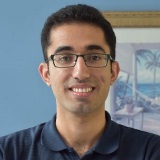
Mojtaba Haghighatlari, PhD, Senior Machine Learning Scientist, Pfizer Inc.

Mojtaba is a senior machine learning (ML) scientist at Pfizer, conducting data-driven research in life sciences. Prior to Pfizer, he developed ML models and Python libraries at the University of California, Berkeley, and SUNY Buffalo with a focus on computational chemistry and protein engineering. His research interests include developing ML solutions to accelerate virtual screening of molecules, ab initio molecular dynamics simulation, and biotherapeutic discovery. Mojtaba received software fellowship from the Molecular Sciences Software Institute in 2018. His heart is always with open-source software solutions and FAIR data for molecular science research.

Andreas Hald, PhD, Manager, Research Bioanalysis, Novo Nordisk

Andreas Hald was originally trained as an in vivo neurobiologist at the University of Copenhagen, Denmark, but changed his focus to investigating tissue-regenerative processes and cancer. After taking on various responsibilities in biotech and the pharma industry, Andreas now manages the Department of Research Bioanalysis at Novo Nordisk, Denmark. Throughout his career, Andreas has developed, implemented, and utilized analytical methods to assess biological readouts for disease models, with a particular emphasis on using antibodies to isolate or detect proteins and peptides from various sources including liquid and solid biopsies, as well as cultured cells. In response to the increasing diversity and complexity of drug modalities, and the time constrains in a competitive industry, Andreas and his team have established novel automated digital processes and end-2-end analytical platforms for drug-exposure analysis.

Brian E. Hall, PhD, Distinguished Scientist, Large Molecule Research, Sanofi

Leading the Biologics Characterization, Expression and Purification group for US research at Sanofi in Cambridge MA since 2021. Previous spent 5 years at Merck and 9 years at Amgen in similar protein production leadership roles.

Mei Han, Principal Scientist, Pharmacokinetics, Dynamics, Metabolism and Bioanalytical (PDMB), Merck & Co., Inc.

Mei Han has worked in the biotech industry for 20 years after she obtained her M.S. from Dept. of Chemistry and Biochemistry, Montana State University. She is currently a Principal Scientist in the Pharmacokinetics & Drug Metabolism (PKDM) department at Amgen South San Francisco. Over the years, she has worked in different functional areas across Amgen, including Analytical Sciences, Protein Sciences, and PKDM. Her experience ranges from chromatographics (such as SEC, CEX, HIC, and RP-HPLC), electrophoresis (cIEF, CE-SDS, and CE-MS) and mass spectrometry analytical method development, inter- and intra-departmental method transfer, such as from Analytical Sciences to QC labs, involved in IND and BLA filing. She is also experienced in small- and middle-scale protein purification. She implemented Capillary Electrophoresis (CE) techniques into Protein Science and PKDM departments, developed an automated immunoaffinity capture (IA)-CE-MS intact mass analysis biotransformation workflow in PKDM department to support multiple pipeline projects ranging from antibodies, fusion proteins, and antibody conjugates in vitro and in vivo, as well as other characterization techniques. Currently ,she leads the large-molecule ADME team within PKDM, interacting with Project Team Representatives to support projects and serve as resource for protein characterization, analytical method development, troubleshooting, and experiment planning. Over the past 20 years, she has been involved in Beckman/Sciex’s CE-SDS Analysis Kit development, providing much input for CE-related instrument development for multiple vendors, such as PA800 Plus, iCE280, CE Infinite, etc. Currently, she serves as a CE Pharm Committee member and Associate Director for CASSS.

Maximilian Hartl, PhD, Scientist & Lab Manager, Pharma Research & Early Development, Roche Diagnostics GmbH

2001-2006: Diploma in Biochemistry at the Universities of Bayreuth & Stockholm; 2006-2009: Graduate School “Lead Structures in Cell Function” within the Elite Network of Bavaria; Thesis: Foamy Virus Enzymes - Activity, Regulation and Resistance; 2009-2011: Post-Doc at the University of Bayreuth, Structural Biology, Topic: Retroviral Enzymes and Mechanisms of Resistance; 2011-2014: Junior Group Leader at the University of Bayreuth, Structural Biology, Topic: Cross Sensitivity to the Major Birch Pollen Allergen and Its Relatives; 2014-2020: Senior Scientist at Roche Pharma Research & Early Development as Group Leader in Downstream Processing at the Roche Innovation Center Munich; Since 2020: Principal Scientist at Roche Pharma Research & Early Development as People Lead in Biochemistry at the Roche Innovation Center Munich.
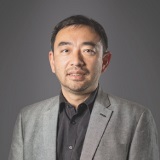
Haruki Hasegawa, PhD, Scientific Director, Discovery Protein Science, Amgen

Haruki is a molecular cell biologist specializing in intracellular folding and trafficking of therapeutically important proteins. After receiving a Ph.D. in Molecular Cell Biology from the University of Michigan, Haruki undertook postdoctoral training at the National Institutes of Health (NIH/NICHD), Bethesda, MD. His first pharma experience came from the Assay Development group in Bayer’s Kyoto Small Molecule Drug Screening Center. For the last 19+ years in Amgen’s Large Molecule Therapeutic Discovery Organization, Haruki has worked closely with cross-functional teams to advance early-stage exploratory programs from target validation and proof-of-concept studies to biologics lead selection and early development.

Andrea Hawe, PhD, CSO, Coriolis Pharma Research GmbH

Andrea Hawe is Co-Founder and Chief Scientific Officer of Coriolis Pharma, a science-driven contract research organization, supporting drug product development of biopharmaceuticals (protein, peptides, oligonucleotides ATMPs, vaccines, etc.), with focus on drug product development, formulation development, lyophilization technologies, and analytics (GMP and non-GMP). Dr. Hawe received her PhD degree in Pharmaceutical Technology from the Ludwig Maximilian University of Munich, Germany in the field of protein lyophilization and formulation. Prior to founding Coriolis Pharma in 2008, she worked as a postdoctoral scientist at Leiden University, The Netherlands, on different projects related to protein characterization, innovative fluorescence-based methods, development of heat-stable formulations for third-world countries, and immunogenicity. She is an expert for protein formulation and protein characterization and has published more than 60 articles in peer-reviewed journals.
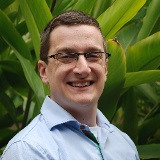
Winston Haynes, PhD, Head, Data Science & Machine Learning, LabGenius Ltd.

Head of Data Science and Machine Learning at LabGenius.
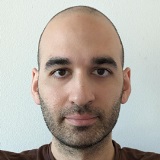
Hooman Hefzi, PhD, Associate Professor, Advanced Mammalian Cell Engineering Group, Department of Biotechnology and Biomedicine, Technical University of Denmark

Hooman Hefzi is an Associate Professor at the Technical University of Denmark leading the Advanced Mammalian Cell Engineering group. The group’s focus is optimizing biologics production through data-driven improvements to host cell lines, leveraging high-dimensional omics data and AI/ML classifiers for target identification. Previously, he led the Omics and Modeling Team in Biologics Technical Development at Biogen. Hooman received his Ph.D. in Dr. Nathan Lewis’s lab at UC San Diego.

Jonas Helma-Smets, PhD, Founder & CSO, Tubulis GmbH

Jonas Helma-Smets is founder and CSO of Tubulis, a pre-clinical stage company focusing on novel ADC approaches for targeted therapies. Dr. Helma-Smets studied biology at the Ludwig-Maximilians University Munich. During his PhD he co-founded Chromotek GmbH, a company developing nanobody-based diagnostics. He later continued academic work in the Group of Prof. Heinrich Leonhardt, working on novel technologies for site-specific protein functionalization, which led to the foundation of Tubulis in 2019.

Jana Hersch, Head of Corporate Scientific Engagement , Corp Scientific Engagement, Genedata AG

As Head of Corporate Scientific Engagement, Jana focuses on building and implementing data strategies into the biopharma R&D value chain. She held positions in academia and industry on leveraging experimentation data in life sciences. Jana has a Ph.D. in Cell Biology from MIT and postdoc from Whitehead Institute, where she used molecular biology and NGS technology to elucidate the molecular basis of germ cell entry into meiosis and mechanisms of regeneration.
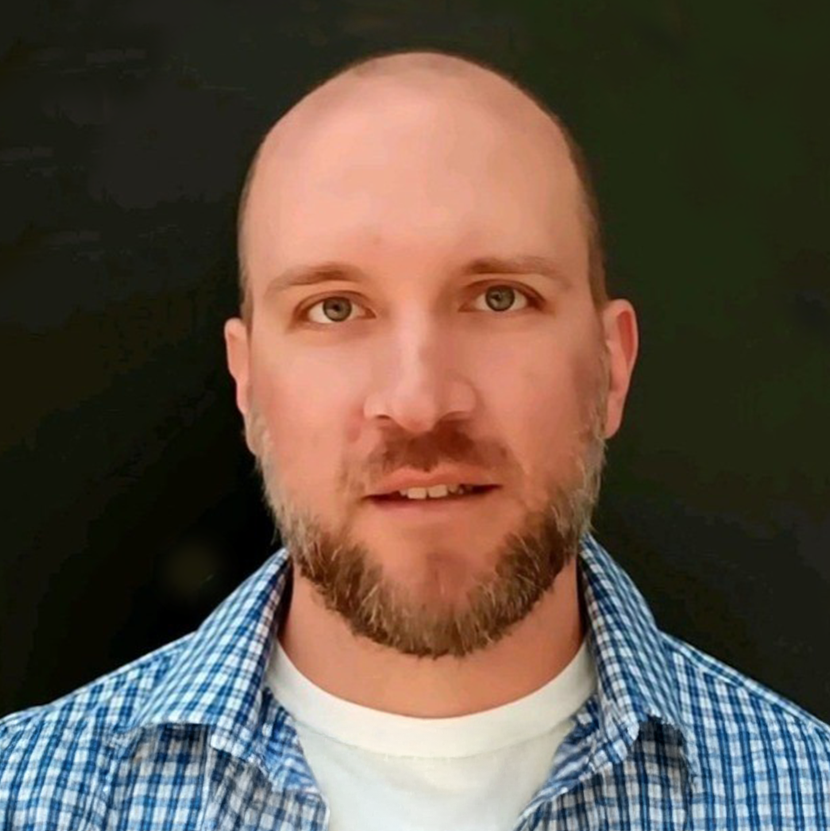
Kyle Hoffman, Applications Mgr, Applications & Service, Bioinformatics Solutions Inc

Kyle completed his PhD in Biochemistry at the University of Western Ontario, followed by a postdoc in Molecular Biophysics and Biochemistry at Yale University. Kyle is now the Applications Manager at Bioinformatics Solutions Inc. and has been with the company for over five years. He currently manages all research projects and partnerships for the continuous development of our lab services.

Kristoff Homan, PhD, Senior Principal Scientist, Discovery Biotherapeutics, Bristol-Myers Squibb Company

Kristoff Homan is a Senior Principal Scientist in Discovery Biotherapeutics at Bristol Myers Squibb where he is the Cambridge site head for the Protein Production and Quality Attribute group. Kristoff was engaged in structure based small molecule inhibitor identification and optimization through his PhD in Structural Biology at Purdue University and post-doctoral research at the University of Michigan under the guidance of John Tesmer. For the last 10 years, Kristoff has had several roles in protein sciences and protein engineering of biotherapeutics at Abbvie and BMS. In additional to design and production experience across a wide range of therapeutic modalities, Kristoff has served as a project leader for multispecific and immunocytokine programs in immunology and oncology.
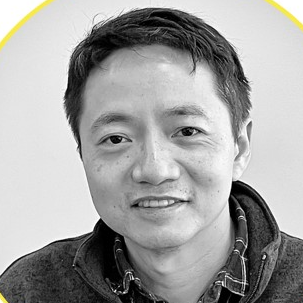
Nian Huang, Senior Research Scientist I, R&D-Small Molecule , Curia

Nian Huang, Ph.D., Senior Research Scientist I, member of Curia (formerly AMRI) since May 14, 2017. I lead a team of 5 people, including 3 Ph.D. I oversee and manage projects in PECA, such as protein production, purification, and crystallography. I have 23 years of experience in biological macromolecular chemistry and structural biology. My expertise includes 1. Large-scale protein production in mammalian, baculoviral, yeast, and bacterial expression system; 2. Membrane protein production and structural biology; 3. Compound-protein complex structures for SAR in drug development; 4. DNA/RNA protein complex structures; 5. Challenging protein production, such as VLP, insoluble and amyloid proteins. My research has led to publications in prestigious scientific journals such as Science, Nature Structural and Molecular Biology, and Journal of Medicinal Chemistry. My work also led to several priority expression systems and clinical trials.
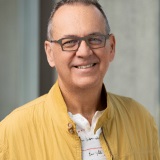
Jeffrey A. Hubbell, PhD, Professor, Chemical and Biomolecular Engineering, New York University

Jeffrey A. Hubbell is Eugene Bell Professor in Tissue Engineering at the Pritzker School of Molecular Engineering of the University of Chicago. He has been elected to the US National Academy of Engineering (2010), the National Academy of Medicine (2019), the National Academy of Sciences (2024) and the American Academy of Arts and Sciences (2021). Hubbell uses nanobiomaterials and protein engineering approaches to investigate topics in regenerative medicine and immunotherapeutics. In regenerative medicine, he focuses on biomaterial matrices that mimic the extracellular matrix and on growth factor - extracellular matrix interactions, working in a variety of animal models of regenerative medicine. In immunotherapeutics, he focuses on nanomaterials in vaccines that target lymphoid-resident antigen presenting cells and on inverse vaccines to induce tolerance in the contexts of autoimmunity, allergy, and of particular interest here protein drugs.
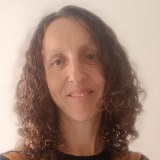
Isabel Huber-Ruano, PhD, Scientific CEO and Co-Founder, Succipro SL

Dra. Isabel Huber Ruano is a Pharmacist with a PhD in Biochemistry and Molecular Biology. During that period, she complemented her training at the University of Pittsburgh (PA, USA). She was contracted as a postdoc by CIBERehd (a Spanish scientific research network on hepatic and digestive diseases) and benefited again from another international collaboration, this time at the University College Cork (Ireland). She later joined Dr. Joan Seoane’s team at the Vall d’Hebron Institute of Oncology (VHIO). In 2016, she became part of Mosaic Biomedicals, a VHIO spin-off dedicated to developing a novel antitumoral therapy. Mosaic Biomedicals merged with Northern Biologics, where she worked as a scientific manager, contributing to the successful preclinical program leading to the development of the lead candidate (MSC-1) for oncology indications. In 2019, she completed a Master's in Business Administration with a focus on biomedicine and health. From 2018 to 2022, she served as the Innovation Manager at DIAMET Research Team, from Pere Virgili health Research Institute (Tarragona) until the establishment of SUCCIPRO, where she currently holds the position of Scientific CEO. Her experience encompasses extensive work with in vitro and in vivo models, particularly in the preclinical development of therapeutic drugs.

Catherine Hutchings, PhD, Independent Consultant

Catherine has spent over 28 years acquiring significant depth of experience in antibody drug discovery and platform applications, working for cutting-edge biotech and pharma companies, such as Cambridge Antibody Technology and Heptares Therapeutics. She has been engaged as an independent consultant since 2015, providing scientific and strategic consultancy to pharma, biotech and investors, with a particular focus on GPCRs, ion channels, transporters, immuno-oncology, platform positioning and target/product evaluation. Catherine graduated with BSc Hons in Genetics and Cell Biology from University of Manchester, UK, and a PhD in Biochemistry and Applied Molecular Biology from UMIST, UK.
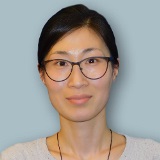
Sunhee Hwang, PhD, Scientist 4, Peptide Therapeutics, Genentech Inc.

Dr. Hwang is a Scientist 4 at Genentech in the Peptide Therapeutics team under the Early Discovery Biochemistry department. She received her Ph.D. from Duke University, where she studied and investigated epigenetic protein-protein interactions, and completed her postdoctoral training at Stanford University, leading and developing small molecules for engineering protein dynamics. Since joining Genentech in 2019, she has investigated various signaling pathways involved in disease pathogenesis using peptides as a tool. She currently focuses on the identification and development of disulfide-constrained peptides (DCPs) using phage-display technology, supporting pipeline projects at Genentech, and the bioproduction of DCPs using the E. coli system to support DCP research.
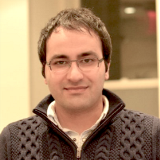
Saeed Izadi, PhD, Senior Principal Scientist & Group Leader, Pharmaceutical Development, Genentech, Inc.

Saeed Izadi is a scientist in the Pharmaceutical Development department at Genentech. His current research is focused on developing/applying computational strategies and tools for predicting liabilities and biophysical properties in protein drugs. He uses a variety of computational techniques ranging from physics-based approaches (e.g. Molecular Dynamics, Quantum Mechanics) to statistics-based methods and Machine Learning. He interacts closely with method development groups to evaluate new tools and bring the best techniques to use in a variety of projects. He received his Ph.D. in Biomedical Engineering from Virginia Tech. He has a M.Sc. in Aerospace Engineering and a B.Sc. in Mechanical Engineering.

Michael D. Jacobson, PhD, Managing Partner, Cambridge Biostrategy Associates LLC

Michael is a founding Partner at Cambridge Biostrategy Associates, LLC (CBA). With over 20 years’ industry and consulting experience, Michael has a strong business, scientific and technical background as well as pharmaceutical product development experience. He has led multiple engagements in the areas of pharmaceutical development and commercialization, contract services, diagnostics, medical devices, and life science tools. Product areas include oncology, immunology, bleeding disorders, cardiovascular, psychiatry, surgical devices, molecular diagnostics, and pathology. In addition, he has extensive experience in corporate and product strategy; new product development; and partnering, market entry, geographic, and market access strategies.
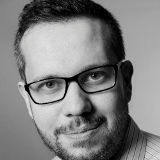
Sven Jager, PhD, Lead, Computational Science, Sanofi Germany GmbH

Sven Jager: Sven Jager completed his doctorate in Kay Hamachers group (Computational Biology and Simulation) at TU Darmstadt, where he developed machine learning and graph-based approaches for the rational design of enzymes and non-coding RNA for applications in synthetic biology. Following his doctorate, he worked in Beatrix Suess's lab, focusing on the machine learning-based design of riboswitches. In 2018, Sven transitioned to Sanofi, taking on the role of Senior Data Scientist in Industrial Affairs. There, he led the development of an NLP platform for efficient document retrieval and classification. Currently, he leads the unstructured data search project within Ziv Bar-Josephs team at Sanofi Digital, focusing on machine learning research in R&D, including Active Learning, Foundational Models, and Generative AI.
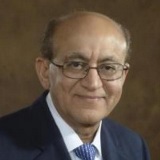
Rakesh K Jain, PhD, A. W. Cook Prof, Radiation Oncology & Tumor Biology, Massachusetts General Hospital

Rakesh K. Jain is the Andrew Werk Cook Professor of Tumor Biology director of the E. L. Steele Laboratories at Massachusetts General Hospital in the Harvard Medical School. Jain is regarded as a pioneer in the area of tumor microenvironment and widely recognized for his seminal discoveries in tumor biology, drug delivery, in vivo imaging, bioengineering, and bench-to-bedside translation. These include uncovering the barriers to the delivery and efficacy of molecular and nano-medicines in tumors, developing new strategies to overcome these barriers, and then translating these strategies from bench to bedside. He is most celebrated for proposing a new principle é normalization of vasculature é for treatment of malignant and non-malignant diseases characterized by abnormal vessels that afflict more than 500 million people worldwide. This concept has fundamentally changed the thinking of scientists and clinicians about how antiangiogenic agents work, and how to combine them optimally with other therapies to improve the treatment outcome in patients.

Timothy Patrick Jenkins, PhD, Assistant Professor and Head, Data Science, DTU Bioengineering

Timothy Jenkins is an Assistant Professor and Head of Data Science at DTU Bioengineering. After completing his BSc at James Cook University in Australia, he conducted his PhD at the University of Cambridge, exploring next-generation sequencing approaches and the impact of parasites on the human gut microbiome. He subsequently joined DTU as an HC Ørsted Postdoctoral Fellow and joined Professor Andreas Laustsen-Kiel’s efforts in developing next-generation antivenom therapeutics. Shortly after, he took on the position of Assistant Professor and started a junior research group, the Digital Biotechnology Lab. Here, he and his team focus on leveraging data science, machine learning, and high-throughout in vitro approaches to develop new approaches for target identification and therapeutic discovery with a particular focus on neglected diseases, such as snakebite envenoming. Tim is also the head of Data Science at DTU Bioengineering and was recently selected for the inaugural cohort of the young academy for technical sciences.
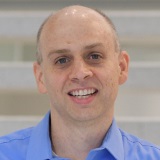
Christopher M. Jewell, PhD, CSO, Cartesian Therapeutics

Dr. Christopher Jewell's expertise in immunology, bioengineering, cell therapy, and nanotechnology spans two decades, including as Chief Scientific Officer of Cartesian Therapeutics, the MPower Professor, Minta Martin Professor, and Institute Professor of Translational Engineering at the University of Maryland, a Consultant with the Boston Consulting Group, and an advisor to dozens of start-ups and drug makers. His interdisciplinary work in immunology and engineering has generated $30M in grants and 130 papers and patents, including in Nature, Nature Biotechnology, Science Translational Medicine and others. Chris is an elected Fellow of numerous professional societies, including the Biomedical Engineering Society and International Academy of Medical and Biological Engineering. He has received over 50 awards, including the Presidential Early Career Award for Scientists and Engineers (PECASE) from the White House é the nation’s highest honor for such scientists. Dr. Jewell completed his PhD in Chemical Engineering and a Ragon Postdoctoral Fellowship at MIT and Harvard.

Michael Jewett, PhD, Professor, Biogengineering, Stanford University

Michael Jewett is the Charles Deering McCormick Professor of Teaching Excellence, the Walter P. Murphy Professor of Chemical and Biological Engineering, and Director of the Center for Synthetic Biology at Northwestern University. Dr. Jewett received his PhD in 2005 at Stanford University, completed postdoctoral studies at the Center for Microbial Biotechnology in Denmark and the Harvard Medical School, and was a guest professor at the Swiss Federal Institute of Technology (ETH Zurich). He is the recipient of the NIH Pathway to Independence Award in 2009, David and Lucile Packard Fellowship in Science and Engineering in 2011, the DARPA Young Faculty Award in 2011, Camille-Dreyfus Teacher-Scholar Award in 2015, the ACS Biochemical Technologies Division Young Investigator Award in 2017, and a Finalist for the Blavatnik National Awards for Young Scientists, Life Sciences Category in 2019.

Peter Johnson, Field Application Scientist & Mgr, Field Applications, Bio Techne

Peter Johnson is a FAS manager with more than 20 years of experience in scientific support. He loves to train, teach and mentor young people eager to break into a career in biotech. He has supported “missionary” work for breakthrough technologies throughout his career and now is no different. He believes we are on the brink of generational breakthroughs in science and medicine and as an FAS, he gets to touch that every day by helping customers succeed with their science.
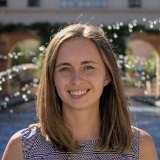
Kadina Johnston, PhD, Senior Specialist, Discovery Biologics, Merck & Co., Inc.

Kadina Johnston is a Sr. Specialist in ML Protein Engineering within Merck Discovery Biologics in South San Francisco. She works on developing machine learning methods for therapeutic discovery and engineering, including developability prediction. Kadina has a PhD in Bioengineering from the California Institute of Technology where she worked with Prof. Frances Arnold on developing and benchmarking machine learning methods for directed evolution of enzymes.
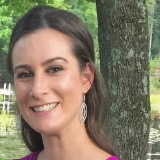
Julie Johnston, Scientist, Large Molecule Research, Sanofi

Julie Johnston has been a member of the Biologics Characterization, Expression, and Purification group within Sanofi's Large Molecule Research Department for eight years. She specializes in mid to large scale protein expression and purification (20-200mg) of complex modalities including multispecific antibody formats. Her expertise has focused on enhancing selection techniques for stable cell line generation to simplify downstream protein purification steps, reduce hands on purification time, and increase protein recovery.
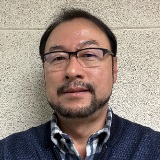
Sangyong Jon, PhD, Professor, Biological Sciences, KAIST

Sangyong Jon received his Ph.D. in 1999 from the Department of Chemistry at the Korea Advanced Institute of Science and Technology (KAIST), Korea. From 2002 to 2004 he worked as a postdoctoral researcher in the Langer Lab in the Department of Chemical Engineering at MIT. He then joined GIST as an Assistant Professor in 2004 and was promoted to Professor in 2010. In 2012, he moved to the Department of Biological Sciences at KAIST. Since 2018, he has been acting as Director of the Center for Precision Bio-Nanomedicine developing various nanomedicine platform technologies for biomedical applications, particularly in the research areas of anticancer and anti-inflammation therapy. He has published over 200 papers with a total citation over 24,000 and an h-index of 72. Moreover, he holds over 100 issued/pending patents, of which have been licensed to 13 biotechs and pharmaceutical companies for translation to practice. In 2015, he was elected to the College of Fellows of the American Institute of Medical and Biological Engineering (AIMBE). He sits on the editorial board of four peer-reviewed journals, including Advanced Therapeutics, Theranostics, and ChemMedChem. He is a scientific founder of three companies: Aptide, Inc (2010), BiliX, Inc (2018), and ToolBio (2022).
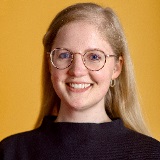
Lisa Kalfhues, PhD, Scientific Program Manager, Pentixapharm

Lisa Kalfhues is a Scientific Program Manager at Pentixapharm, a radiopharmaceutical development company located in Berlin, Germany. In her role, she oversees the advancement of early-stage drug discovery projects and translating pre-clinical research into clinical applications.
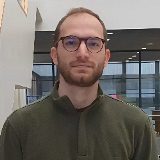
Konstantinos Kalogeropoulos, PhD, Assistant Professor, Biotechnology and Biomedicine, DTU

Konstantinos Kalogeropoulos is an Assistant Professor at the Technical University of Denmark and a postdoctoral researcher at TU Delft. His research focuses on proteomics and protease systems biology, with an emphasis on developing novel proteomics workflows, data analysis pipelines, and protein engineering applications for molecular pathway rewiring and biotechnology. His recent work also includes advancements in de novo peptide sequencing and machine learning, applying cutting-edge AI techniques to improve peptide sequence prediction and protein assembly in proteomics research.
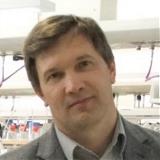
Igor A. Kaltashov, PhD, Professor, Chemistry, University of Massachusetts, Amherst

Igor A. Kaltashov received his undergraduate degree in physics at Moscow Institute of Physics and Technology in 1989, where he carried out his thesis work under the guidance of Prof. G.V. Karachevtsev on gas phase ion-molecular processes in sulfur hexafluoride/air mixtures. He received his Ph.D. degree from the University of Maryland Baltimore County in 1996, where he worked on applications of mass spectrometry to problems in biochemistry under the guidance of Prof. Catherine Fenselau. Following two years as a post-doctoral fellow at Johns Hopkins Medical School (with Prof. Robert J. Cotter), he became a Director of the newly created Mass Spectrometry Center at the University of Massachusetts-Amherst in 1997. He was appointed an Assistant Professor in Chemistry at UMass-Amherst in 2000 and promoted to Associate Professor with tenure in 2006, and to Full Professor in 2011. His teaching portfolio at UMass includes both undergraduate (Quantitative Chemical Analysis and Instrumental Analysis) and graduate courses (Biological Mass Spectrometry, Applied Analytical Chemistry and Spectroanalytical Chemistry). Prof. Kaltashov’s research program is focused on developing mass spectrometry-based experimental techniques to study structure, conformation, dynamics and interactions of biopolymers. His group actively collaborates with several biopharmaceutical companies, including Biogen, Pfizer, and Shire. Prof. Kaltashov co-authored over a hundred papers and book chapters and guest-edited a number of special issues for a variety of journals, most recently “Mass spectrometry-based methods to study macromolecular higher order structure and interactions” (Methods, Elsevier). He co-authored (with his long-time collaborator, Dr. Stephen J. Eyles) a monograph “Mass spectrometry in biophysics: Conformation and dynamics of Biomolecules,” whose second edition was published in 2012, and is currently working (together with two of his former PhD students, Prof. Guanbo Wang of Nanjing Normal University and Dr. Shunhai Wang of Regeneron Pharmaceuticals) on another monograph, “Mass spectrometry in the analysis of biopharmaceuticals: current state-of-the-art and emerging trends.”

Takayuki Kamikawa, Scientific Researcher, Discovery Research, Chugai Pharmaceutical Co Ltd.

Takayuki Kamikawa is a researcher of Chugai Pharmaceutical Co., Ltd. He joined Chugai Pharmaceutical in 2006 after obtaining DVM degree. He works for the development and evaluation of a novel antibody technologies that exhibit superior efficacy and safety targeting solid tumor over 10 years. Currently, he is involved in the preclinical evaluation and biological mechanism analysis of antibody projects in immuno-oncology field, conducting both in vitro and in vivo studies.
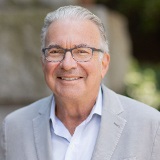
Philip W. Kantoff, MD, Co-Founder & CEO, Convergent Therapeutics

Dr. Philip Kantoff is the Chief Executive Officer and Co-Founder of Convergent Therapeutics, a position he has held since July 1, 2021. Prior to joining Convergent Therapeutics, Dr. Kantoff spent six years as Chairman of the Department of Medicine at Memorial Sloan Kettering Cancer Center, where he directed a department of approximately 500 physicians and physician-scientists, caring for cancer patients and developing improved testing and cancer therapies. He is the Emeritus Jerome and Nancy Kohlberg Chair in Medicine at Harvard Medical School. At Dana-Farber Cancer Institute (DFCI), he was the Chief of the Solid Tumor Oncology Division, and he served as Director of the Lank Center for Genitourinary Oncology at the DFCI. In those positions, Dr. Kantoff created robust programs of clinical care and research as well as laboratory research. During this time, he served as a clinical researcher and principal investigator in significant trials devoted to the development of new therapeutic targets for men with advanced prostate cancer and, throughout his tenure at DFCI, he helped to set broad clinical research priorities. He has mentored dozens of physician scientists, scientists, fellows and junior faculty during his career. Dr. Kantoff is a board member of two public companies, Context Therapeutics and ESSA Pharma, both cancer therapeutics companies. He is on the Board of Directors of the Prostate Cancer Foundation. He is a member of numerous professional societies and editorial boards, has written more than 500 articles and books and has lectured throughout the world. Among his significant accomplishments, Dr. Kantoff was honored with the Baruj Benacerraf Clinical Investigator Award in 1994 and the Harvard Medical School Kantoff-Sang Lectureship Award from 2011 through the present time. He was also recognized with the first Prostate Cancer Foundation Mentor of Excellence Award and has been named to the second-year class of “Giants in Cancer Care.” He was awarded the Excellence in Teaching Award by ASCO in 2024. He was inducted into the Association of American Physicians in 2017. Dr. Kantoff is board certified in internal medicine and medical oncology. He completed his research fellowship at the National Institutes of Health and his medical oncology fellowship at the Dana-Farber Cancer Institute.
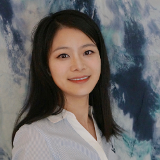
Jing Ke, PhD, Associate Principal Scientist, Discovery Biologics, Merck

Dr. Jing Ke is an associate principal scientist in Discovery Biologics of Merck Research Laboratory. Her expertise lies in lab automation, process optimization, and data processing algorithm. She obtained her PhD degree on Biochemical Engineering from Washington State University. Then worked as a high-throughput production and characterization scientist in Lawrence Berkeley National lab for six and half years. Later worked in Unchained Labs, providing automation solutions for up to twenty biopharma customers. Dr. Ke has over 30 publications in her field, with over 1300 citations. She is passionate to contribute automation to advance drug discovery.

Benjamin Kellman, PhD, Research Fellow, Pathology, Ragon Institute of MGH MIT & Harvard

Ben Kellman is a bioinformatician and glycobiologist. Working under Prof Nathan E. Lewis, he discovered the apparent genetic encoding for glycosylation during his PhD studies at the University of California, San Diego. During and after his PhD, Ben’s work and expertise in bioinformatics, glycobiology, biosynthesis, multi-omics modeling, sequencing, and pathology led to publications in top scientific journals, with > 2500 citations and four patents. After receiving his Ph.D. in Bioinformatics in 2020, Ben worked for a drug development-focused consulting firm (Monoceros Biosystems, 2020-2021) and then explored the diagnostic potential in structural variants (Bionano Genomics, 2021-2022). He is currently a post-doctoral fellowship at the Ragon Institute (Massachusetts General Hospital & Harvard Medical School, 2022-), studying glycan modulation of Fc-FcR interactions and developing a single-cell deep variant screening for glycan-modulated effector function. His work has received independent support and awards, including the Harvard Catalyst Core Award. Ben has started a platform therapeutics company (Augment Biologics) to commercialize the glycoimpact-guided glycoprotein design, and the company has won awards and competitions, including a BMS-backed Golden Ticket and Merck Digital Science Studio.
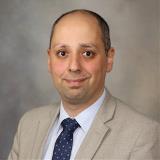
Saad Kenderian, PhD, Assistant Professor, Medicine and Oncology, Mayo Clinic College of Medicine; Co-Leader, Cancer Immunology Immunotherapy, Mayo Clinic Cancer Center

Dr. Kenderian is a consultant in hematology at the Mayo Clinic Rochester, with joint appointments in the Department of Immunology and Department of Molecular Medicine. He holds the academic rank of Assistant Professor of Medicine, Oncology, and Immunology in Mayo Clinic College of Medicine. As a physician-scientist, he directs a federally funded translational laboratory program focused on T cell biology, cellular engineering, and chimeric antigen receptor T (CART) cell therapy. In this context, he collaborates with multiple pharmaceutical and biotech companies. Since 2019, three clinical trials have been translated from his laboratory, two of them are multi-center trials. He has authored more than 90 manuscripts and book chapters. He is an inventor on multiple patent applications and is the Principal Investigator on 5 active clinical trials.

Bruce Keyt, PhD, CSO, R&D, IGM Biosciences, Inc.

Bruce received his Ph.D. in biochemistry and pharmacology from Tufts University School of Medicine and his B.S. in Chemistry from Washington University in St Louis. He is a co-inventor on more than 35 U.S. patents and patent applications, and he has a co-authored more than 55 scientific articles. Bruce brings to IGM more than thirty-five years of research, development and management experience in large and small biotechnology companies, including his extensive experience in many phases of early stage drug discovery and development. This experience spans target selection and discovery, in vitro biochemistry, in vivo efficacy models and all other aspects of the pre-clinical development of antibodies and proteins as therapeutic agents.

Zahid Khan, MS, Biopharmaceuticals Investigator, R&D Analytical Development, GSK

Zahid Khan is a Scientific Investigator working in Analytical R&D at GSK, located in the greater Philadelphia area. With nine years of experience in supporting the analytical development of pharmaceuticals, Zahid has been involved in the higher-order structure characterization of biopharmaceuticals, forced degradation studies to evaluate structure-function relationships, and support comparability for monoclonal antibodies and other therapeutic proteins. He holds a master’s degree in pharmaceutical analysis from Campbell University, NC, and a bachelor’s degree in pharmacy from India.

Riyaz Khan, PhD Candidate, T Cell Therapies, ETH Zurich

Riyaz Khan is a PhD candidate at ETH Zurich under the guidance of Prof. Sai Reddy. His research focuses on developing immune cloaking strategies to help allogeneic T cells evade the host immune system, with the goal of enhancing the safety and efficacy of these therapies. In 2022, he joined Encelta AG, an allogeneic T-cell therapy startup from ETH Zurich during its early stages, where he played a central role in the discovery and development of a GvHD-safe T-cell therapy leveraging AED T-cell technology. This experience emphasized the need to address host immune rejection in allogeneic therapies, which inspired his doctoral research. Riyaz earned a Masters in Chemical Biology from the University of Geneva in collaboration with EPFL, concentrating on bio-orthogonal chemistry and genetic code expansion to study non-enzymatic PTM signaling. Prior to his Masters, he worked as a scientist at the Biocon Bristol Myers Squibb (BMS) R&D center in Bengaluru in Immuno-Oncology and Fibrosis disease areas. He also holds an Engineering degree in Biotechnology awarded by VTU, India.

Eshita Khera, PhD, Principal Scientist II, Modeling & Simulation & PK Sciences, Novartis BioMedical Research

Eshita is Principal Scientist II in the Modeling & Simulation group of PK Sciences at Novartis. She develops mechanistically driven computational models to capture the complex PK/PD of complex biologics across several disease indications, with a lead focus on antibody-drug conjugates and immune-cell engaging antibodies. Eshita earned her PhD in Chemical Engineering at the University of Michigan under the mentorship of Prof. Greg Thurber where she developed an integrated in vitro, in vivo, and predictive in silico platform to understand ADC distribution, including bystander effects, in solid tumors. She also holds an MSE in Chemical Engineering and MS in Biomedical Engineering from the University of Michigan, and a BE in Biotechnology from VTU, India.

Takanori Kigawa, PhD, Senior Scientist, RIKEN Center for Biosystems Dynamics Research

Takanori Kigawa, Dr. Sci., is Senior Scientist of RIKEN Center for Biosystems Dynamics Research (BDR), Japan. He graduated from Graduate School of Science, the University of Tokyo in 1994 and started his professional career as a research scientist in RIKEN. He has developed a variety of technologies related to the cell-free protein synthesis system and NMR-based structure biology, and most of them were patented and commercialized.
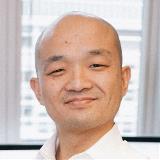
Philip M. Kim, PhD, Professor, Molecular Genetics & Computer Science, University of Toronto

Philip M. Kim is a Professor at Donnelly Centre at the University of Toronto. He leads a research laboratory that integrates machine learning, physics-based modeling and wet/experimental methods for engineering of biologics. He is a Co-founder of Resolute Bio, a drug development startup company. He authored over 70 publications, 7 invention disclosures and 3 patent applications. Before to setting up his lab in 2009, he was a postdoctoral fellow at Yale University where he pioneered structural analyses of protein interactions networks and an associate with McKinsey & Co. He holds a Ph.D. from the Artificial Intelligence Laboratory and Department of Chemistry at the Massachusetts Institute of Technology and a B.S. in Biochemistry and Physics from the University of Tuebingen.

Alexander W. Kinna, PhD, Associate Director, Binder Discovery, Autolus Therapeutics

Alex gained his PhD from University College London and has been with the Binder Discovery Group at Autolus Therapeutics since its spin out from the university. Autolus is a clinical-stage biopharmaceutical company developing next-generation, programmed T cell therapies for the treatment of cancer and autoimmune disease. The Binder group focus on antibody and CAR engineering as well as tumour targeting mechanisms.

Alex Kirkpatrick, PhD, Field Application Scientist, Protein Expression, Thermo Fisher Scientific

Alex Kirkpatrick is Field Application Scientist at Thermo Fisher Scientific where she supports the Protein Expression portfolio in North America. She brings over 10 years of experience in biomedical research, specializing in host-pathogen interactions, protein and cell biology, biochemistry and protein expression in bacterial cells. Alongside her research, she also has extensive clinical-care experience across various patient-facing healthcare industries. Originally from the Washington, DC area, Alex has made Central Texas her home for the past decade. She holds a B.S. in Microbiology from Texas State University and both an M.S. and Ph.D. in Biomedical Sciences from the UT Health Science Center at San Antonio.

James T. Koerber, PhD, Distinguished Scientist and Director, Antibody Engineering, Genentech, Inc.

JT received his PhD in Chemical Engineering from the University of California Berkeley where he developed novel protein engineering strategies for viral gene therapy. He then completed a post-doc with Jim Wells at the University of California San Francisco where he developed a novel structure-based design platform to generate phospho-specific antibodies. He currently leads a team at Genentech in the Department of Antibody Engineering focused on collaboratively discovering novel biology and transformative drugs. His group seeks to advance new therapies to patients through the development of new technologies to aid in target discovery, drug challenging targets, and overcoming drug delivery barriers.

Harald Kolmar, PhD, Professor and Head, Institute for Organic Chemistry and Biochemistry, Technische Universität Darmstadt

Harald Kolmar is full professor at the Technische Universität Darmstadt, Germany where since 2005 he heads the Department of Applied Biochemistry. He holds a PhD and habilitation in biochemistry and molecular genetics from University of Tübingen and Göttingen. His current scientific interests mainly focus on protein engineering and design, nanobiotechnology, antibody engineering, chemical biology and development of tailor-made peptides and proteins for applications in diagnostics and therapy.

Koorosh Korfi, PhD, Biomarker and Experimental Medicine Leader, Early Biomarker Development Oncology, Roche Pharma Research and Early Development (pRED), Roche Innovation Center Zurich

Experienced translational scientist and project leader with a demonstrated track record in the oncology field. I work as a clinical biomarker strategy leader in early phase hemato-oncology trials involving emerging immunotherapies.

Alan J. Korman, PhD, Senior Vice President, Human Immunology, Vir Biotechnology

Dr. Alan Korman is a world-leading pioneer in developing cancer immunotherapies and is currently SVP, Immune Targeting at Vir Biotechnology. As Vice President for Immuno-Oncology Discovery at Bristol-Myers Squibb (BMS), he led the development of biologics for tumor immunotherapy. Prior to BMS, Dr. Korman held various positions at Medarex. His tenure at BMS and Medarex led to the development of three approved drugs for oncology, ipilimumab (anti-CTLA-4) and nivolumab (anti-PD-1), and their combination, which initiated the approach of checkpoint blockade, as well as relatlimab (anti-LAG-3) in combination with nivolumab. Dr. Korman received his PhD in Cellular and Developmental Biology from Harvard University and was a Whitehead Fellow at the Whitehead Institute at the Massachusetts Institute of Technology. He was also a staff scientist at the Institut Pasteur prior to moving to the biotechnology sector.
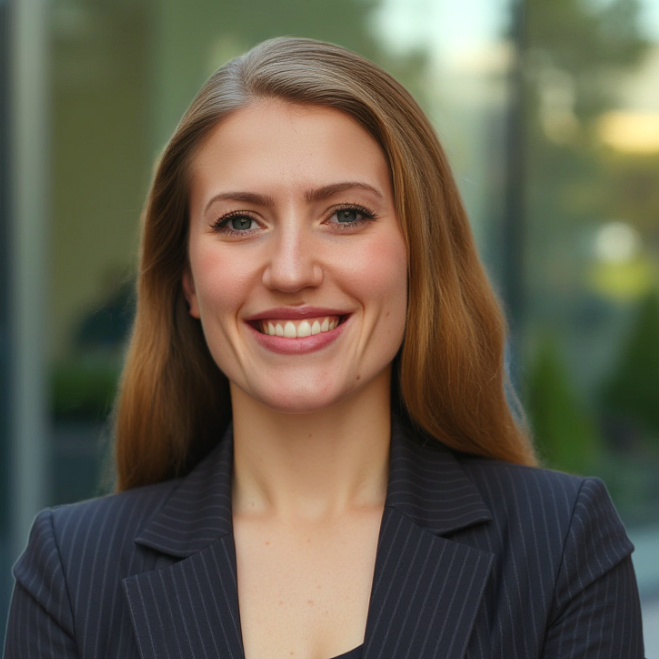
Anneliese Krueger, Scientist, Pharmaceutical Cell Line Development, ProBioGen AG

Anneliese Krueger is a Cell Line Development Project Leader at ProBioGen. She is a biotechnology professional with extensive research experience in protein binding modulation and protein expression optimization of pore-forming toxins. For over six years she has been deeply engaged in cell line development at ProBioGen, successfully engineering high-expressing cell lines for IgGs, bispecifics, and enzymes. She is actively involved in continuous optimization efforts in ProBioGens cell line development. As a Project Leader, she has successfully led projects focusing on high-quality expression, glycoengineering, and biosimilar development. A key aspect of her work is leveraging transposase integration technology of the DirectedLuck Transposase to consistently achieve high-yield protein expression.

Phillip Kuo, M.D., Ph.D., F.A.C.R., Division Chief, Nuclear Medicine, Department of Diagnostic Radiology, City of Hope Cancer Center

Phillip Kuo M.D., PhD. graduated in chemistry from Harvard University and then earned an MD/PhD from University of Virginia. Post-graduate training included residencies in Internal Medicine at UCLA and Nuclear Medicine and Radiology at Yale. He is Professor of Radiology, Section Chief of Nuclear Medicine and Director of Theranostics, at City of Hope National Medical Center. He provides expertise in the design, conduct, analysis, and reporting of phase 1-3 clinical trials. He has more than 140 peer-reviewed publications and has served as PI or co-PI on numerous NIH grants and industry-sponsored clinical trials.

Vinodh B. Kurella, PhD, Biotherapeutic Computational Modeler, Takeda Pharmaceuticals, Inc.

Vinodh Kurella is a Senior Scientist (Biologics computational modeler) in Biotherapeutic Engineering Group (BE) within Global Biologics at Takeda (Cambridge, USA). Experienced in structure-based antibody/protein design and optimization. Previously had range experiences at various biotech companies in different modalities such as gene therapy, biologics, and CAR T designs. Post-doctoral training at Harvard Medical School/Dana Farber in Dr. Wayne Marasco laboratory in antibody engineering and graduate training from Louisiana State University (LSU-HSC) in the field of protein X-ray crystallography in David Worthylake laboratory.
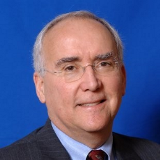
Norman D. LaFrance, MD, Chief Development Officer, Y mAbs Therapeutics Inc.

Dr LaFrance joined Y-mAbs as Chief Development Officer in June 2024 and brings over 40 years of deep radiopharmaceutical experience as both a nuclear medicine physician and pharmaceutical executive. He previously served as Chief Medical Officer, Senior Vice President of PLUS Therapeutics, Inc., and prior to that, as Chief Medical Officer at Jubilant Pharma Ltd. Earlier, Dr. LaFrance served as Global Chief Medical Officer at IBA Molecular and earlier, as Senior Vice President and Chief Medical Officer of Molecular Insight Pharmaceuticals, Inc. Dr. LaFrance practiced medicine and held academic faculty appointments at Johns Hopkins University School of Medicine. He is Double Board Certified with Fellowship status both in internal medicine and nuclear medicine. Dr. LaFrance received his B.S and Master of Engineering degrees in nuclear engineering and science from Rensselaer Polytechnic Institute, and his M.D. from the University of Arizona, College of Medicine, Tucson.
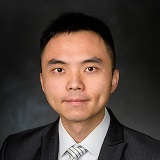
Pin-Kuang Lai, PhD, Assistant Professor, Chemical Engineering and Materials Science, Stevens Institute of Technology

Dr. Pin-Kuang Lai is an Assistant Professor in the Department of Chemical Engineering and Materials Science at Stevens Institute of Technology. He received his B.S. and M.S. degrees in Chemical Engineering from National Taiwan University in 2011 and 2013, respectively, and completed his Ph.D. in Chemical Engineering at the University of Minnesota in 2018. His doctoral research focused on developing computational and experimental approaches to study antimicrobial peptides. From 2018 to 2021, Dr. Lai conducted postdoctoral research at MIT, where he investigated antibody stability at high concentrations. Dr. Lai has collaborated with leading pharmaceutical companies, including AstraZeneca, Merck, Sanofi, and Takeda, as well as national laboratories such as NIST and Brookhaven. His work focuses on advancing computational tools, including machine learning and molecular simulations, alongside biophysical characterization methods such as NMR and SAXS, to predict and analyze antibody aggregation and viscosity at high concentrations. He also explores the underlying mechanisms driving these phenomena. In addition to his academic and research endeavors, Dr. Lai serves as an Assistant Editor for the mAbs journal.
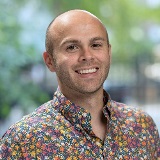
Caleb A. Lareau, PhD, Assistant Professor, Memorial Sloan Kettering Cancer Center

Caleb Lareau is an Assistant Member at Memorial Sloan Kettering Cancer Institute in New York City. His group utilizes advanced computational methods and genomics technologies to study and develop new immunotherapies.
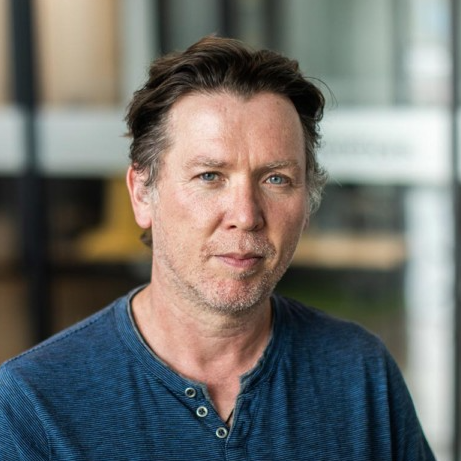
Thierry Le Bihan, Principal Scientist, Polyclonal Antibody Sequencing, Rapid Novor

Dr. Thierry Le Bihan obtained his PhD from Université Laval and was previously an associate professor at the University of Edinburgh before joining Rapid Novor in 2018. With his extensive experience in proteomics, Thierry leads the polyclonal antibody sequencing efforts and built the platform from the ground up. He dedicates his time to researching innovative ways to explore the immune system through next-generation protein sequencing.

Michael Leney-Greene, PhD, Investigator, Biology, AI Proteins

Michael is an Investigator in the Biology Department at AI Proteins, and will present the project titled “TNFR1 inhibition with de novo miniproteins for autoimmune disease treatment.” Previously, he conducted research in the labs of Drs. Michael Lenardo and Helen Su at the National Institutes of Health, discovering several novel Mendelian autoimmune diseases. At AI Proteins, Michael leads early discovery projects focused on the development of novel de novo miniprotein based therapeutic drugs to treat autoimmune disorders.
.tmb-0_l.jpg)
Lori Lennon, Founder & CEO, Thinkubator Media
.tmb-0.jpg)
Lori Lennon is the founder and CEO of Thinkubator Media, an organization focused on elevating the profiles of women in science. Thinkubator Media is dedicated to having the diverse voices of women heard inside and outside of their STEMM fields. Lori and her team work with women in academia and industry to raise their profiles through education, training, and community to ultimately help them gain the notoriety needed for funding, support, and advancing their research. This curated approach was developed by listening to the needs expressed by women across many STEMM disciplines. Prior to starting her own company, Lori served as the Director of Communications for the College of Science at Northeastern University. Her experience as a communicator has afforded her the opportunity to work with leading researchers who are tackling some of the biggest and most important issues of our time, such as climate change, renewable energy, and drug discovery. Lori’s work spanned across many communication disciplines while at Northeastern, including strategic planning, messaging, public relations, editorial writing, digital marketing and communications, content development, marketing and communications for recruitment, and email marketing strategies and implementation. At Northeastern, Lori was a member of several communications groups, a member of the College of Science Diversity and Inclusion Committee, and an advisor for the student-run magazine, NU SCI. Prior to her work in science communications, Lori spent several years working in television news, first at New England Cable News, then at WBZ-TV Boston. At a time when news websites were uncharted territory for news organizations, Lori joined a team that helped revolutionize the way users consume news-breaking stories, producing exclusive content, and developing interactive opportunities to boost a reader’s engagement. During her tenure at WBZ-TV, the website earned the Edward R. Murrow Award for Best Broadcast Affiliated website for a large market in 2005 and 2007, and the Associated Press Award for Best TV/Media website in Massachusetts and Rhode Island in 2006, 2007, and 2008. Lori has helped cover elections, Super Bowls, major local news events, and our beloved Boston Marathon. Lori currently lives with her 12-year-old daughter in Sharon, Massachusetts, where they spend a lot of time walking arm-in-arm, eating fun foods, and contemplating the complexities of life.
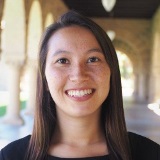
Sarah Lensch, PhD, Senior Scientist, Arsenal Bio

Sarah Lensch is a synthetic biologist with a background in mammalian epigenetic gene regulation and experience with high-throughput screening. Currently a Senior Scientist at ArsenalBio, Sarah is working on advancing therapeutic products through innovative CAR-T cell engineering. She earned her Ph.D. in Bioengineering from Stanford University from Dr. Lacra Bintu’s lab, and holds a Bachelor’s degree in Biology from UC Santa Barbara.
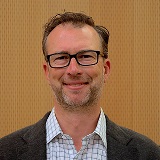
Simon Letarte, PhD, Director, Extended Structural Characterization, Gilead Sciences Inc.

Simon leads the structure characterization team in Gilead Pivotal Biologics Analytical. He earned a Ph.D. in Analytical Chemistry from University of Montreal and did a postdoc in immunology at McGill University in Canada. He worked in biological mass spectrometry for most of his career. From proteomics at the Institute for Systems Biology, he then worked in cell therapy at Dendreon, protein characterization by mass spec at Pfizer and Merck before his current position as Director at Gilead. He specializes in QbD, CQA identification and likes to be at the interface of science and technology.
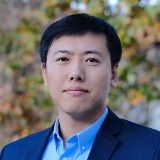
Zifan Li, PhD, Senior Scientist, Analytical Development, Biogen

Dr. Li received his Ph.D. degree from Washington University in St. Louis. Afterwards, he worked for multiple employers, focusing on analytical chemistry, biosimilar and oligonucleotides. He is currently a senior scientist in ASO analytical development group at Biogen. Prior to that, he was a senior research scientist at Nitto Avecia.
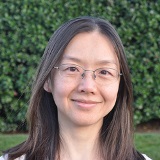
Yanjie Li, PhD, Scientist 4, Peptide Therapeutics, Genentech Inc.

Yanjie Li earned her Ph.D. at the University of Toronto and conducted postdoctoral research at Yale University. She then joined Genentech and worked on early drug discovery and development.

Jiahe Li, PhD, Assistant Professor, Biomedical Engineering, University of Michigan

Dr. Li earned his PhD in Biomedical Engineering at Cornell University in 2015, where he leveraged synthetic biology approaches and cell biology to engineer bacteria and platelets as platforms to address cancer. Later, he performed postdoctoral training at MIT (2015-2018), where he gained new training in RNA chemistry and delivery. He was a tenure-track Assistant Professor in the Department of Bioengineering at Northeastern University from 2019 to 2023. Dr. Li relocated the lab to the University of Michigan in the summer of 2023, and his research focuses on the development of molecular and live cell-based therapeutics to interrogate and manipulate interactions among therapeutics, the microbiome, and host.
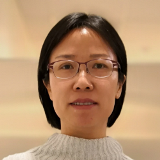
Xiuling Li, PhD, Associate Director, Novel Multispecific Modalities, AstraZeneca

Xiuling Li is Associate Director and a team leader at AstraZeneca, based in Biologics Engineering department at Gaithersburg, US site. She leads a team focusing on multispecific antibody engineering and novel modalities design to support technology development and pipeline programs across oncology, immunology, infectious disease, and other therapy areas. Xiuling has over 10 years' antibody engineering experience. She has led projects on developing several formats of biologics including immune engagers, multispecifics, and antibody-drug conjugate.

Katherine Li, Director, Clinical Sciences, Oncology Translational Research, Johnson & Johnson Innovative Medicine

More than twenty years' experience in pharmaceutical science and informatics across various stages of product life-cycle management and broad therapeutic areas, including oncology, gastroenterology, dermatology, rheumatology, and cardiovascular & metabolic diseases. Translational research lead for various programs (e.g., CARVYKTI in Multiple Myeloma, Stelara in Crohn's Disease and Ulcerative Colitis) to lead the translational research and support activities with regulatory agencies. Experienced in computational analysis of high throughput omic data from preclinical and clinical studies.
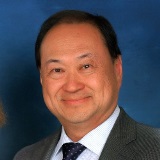
Vincent Ling, PhD, Chief Business Officer, Morphocell Technologies; Consultant Advisor, Bill & Melinda Gates Foundation

Dr. Ling currently serves as Chief Business Officer at Morphocell Technologies and is an advisor to many foundations, universities and biotechs. For over 30 years, Dr. Ling led successful research and business innovation groups in diverse biotechnology fields, including cell devices, protein engineering, biosimilars, stem cell differentiation, checkpoint inhibitors and molecular evolution of antibody scaffolds. He has held leadership positions in large, midsized and start-up environments, creating practical biotherapeutics. He has held leadership positions in Takeda, Neurotech, Adnexus (Compound Therapeutics), and Genetics Institute / Wyeth Pharmaceuticals. Dr. Ling earned a BA in Molecular Biology at University of California, Berkeley, followed by MS and Ph.D at University of Illinois, and postdoctoral training at the Harvard Biological Laboratories.
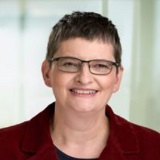
Dasa Lipovsek, PhD, Vice President, Lead Discovery, Aktis Oncology Inc.

Dasa Lipovsek has held various leadership roles in the biopharmaceutical industry, starting as an Associate Director of Biochemistry at Phylos, Inc. in 1997. Dasa then moved on to positions at Codon Devices, Inc., Adnexus Therapeutics (a Bristol-Myers Squibb R&D Company), and Bristol Myers Squibb, where they served as a Sr Principal Scientist and Scientific Associate Director. Currently, they are the VP of Lead Discovery at Aktis Oncology. Throughout their career, Dasa has focused on protein engineering, molecular discovery technologies, and protein design. Dasa Lipovsek completed a Bachelor of Science in Biology at the Massachusetts Institute of Technology in 1987. Dasa went on to obtain a PhD in Chemistry from the University of Cambridge in 1990.
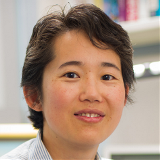
Xiaole Shirley Liu, PhD, CEO, GV20 Therapeutics

Dr. X. Shirley Liu graduated summa cum laude from Smith College double majoring in Biochemistry and Computer Science in 1997, and received PhD in Biomedical Informatics and PhD minor in Computer Science from Stanford University in 2002. She is now Professor at the Department of Biostatistics and Computational Biology at the Dana-Farber Cancer Institute and Harvard School of Public Health. She is the Director of the Center of Functional Cancer Epigenetics at Dana-Farber Cancer Institute, and an associate member of the Broad Institute. Her research focuses on computational cancer epigenetics, and developing algorithms for big cancer data integration and mining.
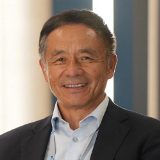
Cheng Liu, PhD, President & CEO, Eureka Therapeutics, Inc.

Dr. Cheng Liu is the Founder, President and CEO of Eureka Therapeutics. Prior to founding Eureka, Dr. Liu was a Principal Scientist in antibody drug discovery at Chiron (now Novartis). With over 20 years of experience in the field, he holds more than 350 patents worldwide and has authored numerous peer-reviewed papers on cancer immunotherapy. He is the inventor of multiple first-in-class, clinical-stage cancer drugs against various tumor targets, including drugs targeting CSF1 for the treatment of bone metastasis, BCMA for multiple myeloma, and AFP and GPC3 for liver cancer. In 2007, he was awarded Special U.S. Congressional Recognition for his contributions to improving human health. He is the editor of the book “Biosimilars of Monoclonal Antibodies: A Practical Guide to Manufacturing, Preclinical, and Clinical Development”. Dr. Liu received his B.S. in Cell Biology and Genetics from Peking University and a Ph.D. in Molecular Cell Biology from the University of California, Berkeley.

Dan (Cassie) Liu, Principal Statistician, Bristol Myers Squibb

Cassie Liu is a principal statistician in Biologics Development Department at Bristol Myers Squibb. Over the 8+ years with BMS, she has provided statistical supports in various CMC projects, including stability analysis and specification assessment for IND/BLA filings, statistical and ML modeling, risk assessment, bioassay analysis, design of experiment, analytical method performance monitoring, dataflow integration, and automation, etc. She received a master’s degree in statistics from University of Connecticut and bachelor's degree in statistics from Nankai University in China. Prior to joining BMS, she was a statistician in a health-related research lab at Yale University.
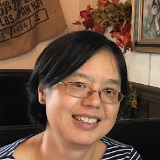
Tun Liu, PhD, Senior Principal Scientist, Biophysics, Johnson & Johnson Innovative Medicine

Comprehensive experience in biotech/biopharma, covering the entire product development process, from Discovery to product commercialization. Supported 3 commercial products and 3 launches of brand new anticancer monoclonal antibody products. Strong background in protein characterization by mass spectrometry. Developed serum stability by mass spec for ADC and Ab-siRNA characterization. Co-invented a revolutionary chain paring platform for bi-specific antibodies with outstanding paring efficiency. Designed de novo 4-helix bundle proteins and produced a super stable protein that was quoted in the 2024 Nobel Prize for Chemistry.
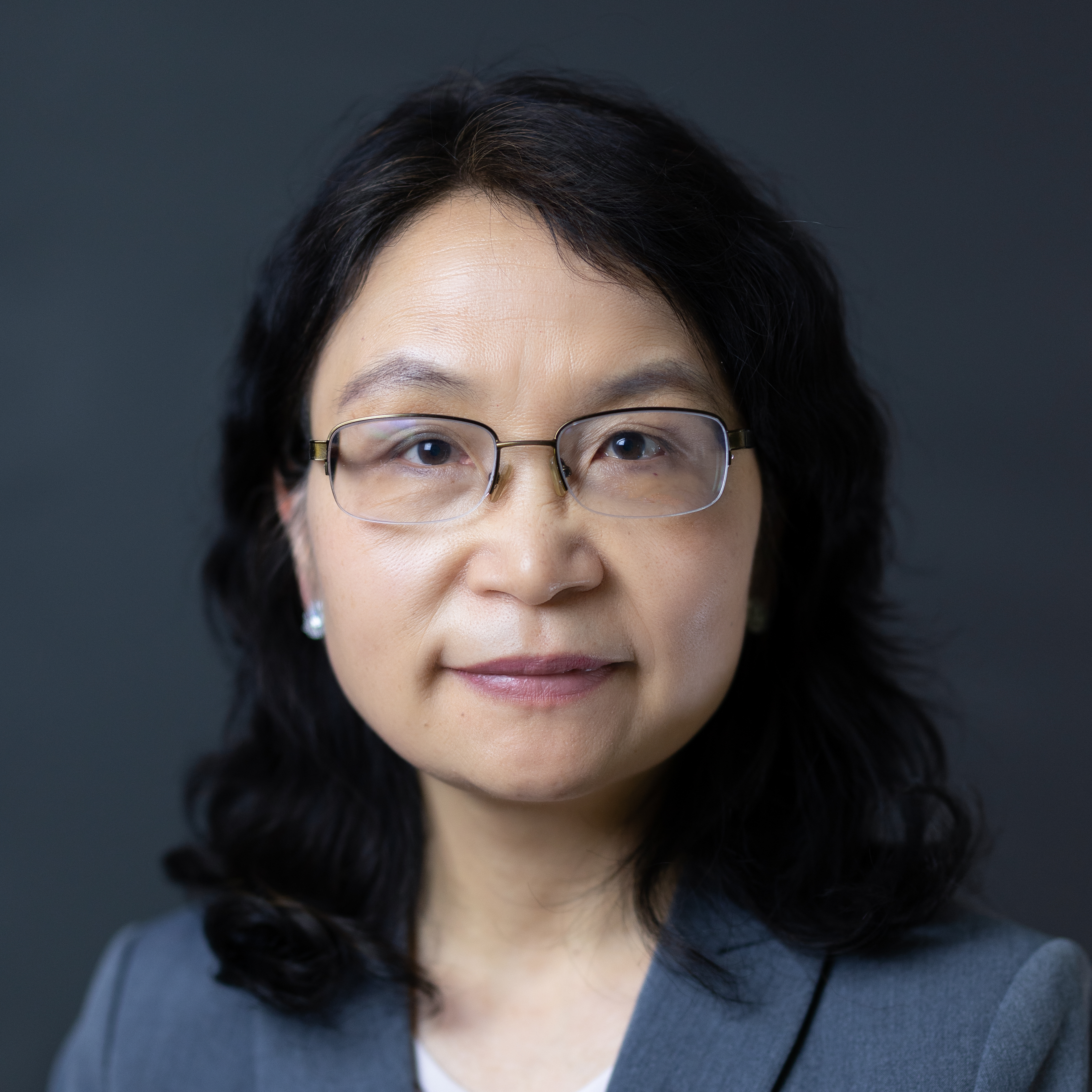
Xuan Liu, SVP, Business Development, OriGene

Dr. Xuan Liu works NIH, HHMI and Osiris before joining OriGene. She has experienced and witnessed the great frustration caused by lack of specificity of antibodies. She is eager to present a solution that OriGene provides that can shed light on this problem.
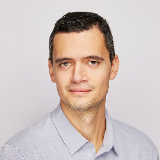
Randolph Lopez, PhD, CTO and Co-Founder, A-Alpha-Bio

Randolph Lopez is the CTO and Co-Founder of A-Alpha Bio, a start-up focused on the discovery and optimization of biologics therapeutics via massive protein-protein interaction datasets and machine learning. Prior to A-Alpha Bio, Randolph did his graduate work at the University of Washington where he pioneered research in synthetic biology, molecular computing, and DNA information storage.

Robert J. Lutz, PhD, CSO, Iksuda Therapeutics

Bob has been an independent consultant in the biotech/pharma industry since 2015 and has worked with multiple clients providing strategic, tactical and operational input for their research and development efforts. Prior to initiating his consulting practice, Bob held various R&D roles over a 23 year span at ImmunoGen, Inc. In his most recent position at ImmunoGen, Bob was Vice President of Translational Research and Development with responsibility for all early stage antibody drug conjugate (ADC) development programs from lead identification through phase 2. He also served as ImmunoGen’s research lead on Genentech’s FDA-approved trastuzumab emtansine (T-DM1) program. Before the ADC research position, Bob was part of ImmunoGen’s Apoptosis Technology Inc subsidiary where he led the research collaboration leading to the discovery of the BH3 domain of the BCl-2 family of death regulatory proteins. Before ImmunoGen, Bob was a research and postdoctoral fellow at the Eleanor Roosevelt Institute in Colorado. He earned his doctoral degree in Biochemistry at Brandeis University.

Monika Maciuszek, PhD, Sr Scientist, Peptide Medicinal Chemistry, Bicycle Therapeutics

No bio available.
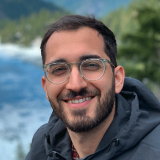
Ali Madani, PhD, Founder and CEO, Profluent Bio

Ali Madani is the founder and CEO of Profluent, an AI startup in protein design, based in Berkeley, CA. Previously, he led machine learning research initiatives at Salesforce Research utilizing deep learning, language modeling, and computer vision. Most notably, Ali was the architect of the ProGen moonshot which advances generative modeling for protein design.
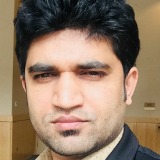
Ajit Magadum, PhD, Assistant Professor, Center for Regenerative Medicine, Department of Internal Medicine, Heart Institute, University of South Florida

Dr. Ajit Magadum, PhD, is a Assistant Professor, Center for Regenerative Medicine, Department of Internal Medicine, Heart Institute, University of South Florida.. He received his PhD from the Max Planck Institute for Heart and Lung Research, Germany. During his postdoctoral tenure at Mount Sinai in New York, Ajit delved into the innovative realm of modified mRNA (modRNA) as a potent gene therapy tool for combating cardiovascular and metabolic diseases (CVMD). He made significant strides in designing modRNA delivery systems tailored for the cardiovascular system, employing various carriers, to ensure robust and enduring modRNA expression within cardiac tissues. Ajit's groundbreaking work unveiled a treasure trove of novel genes (6 targets), delivered as modRNA to the heart, inducing cardiomyocyte proliferation and cardiac regeneration, inhibiting cardiac hypertrophy and fibrosis offering promising avenues for treating CVMD and fibrotic conditions. Ajit is celebrated for pioneering the development of cell-specific mRNA delivery platforms known as SMARTs (Specific Modified mRNA Translation System) in the context of CVD in 2016. This innovation allowed for the precise targeting of modRNA expression exclusively in cardiomyocytes or non-cardiomyocytes within the heart, opening up new horizons for cell-specific mRNA therapeutics in the realm of CVMD. He has published over 20 papers, along with the successful filing of 3 patents, which have been licensed and sublicensed to leading biotechnology companies. He won the Outstanding Research Innovation Award from Mount Sinai Hospital, New York, in 2017 for his contributions to mRNA therapeutics development for CVMD. Ajit received the esteemed ISHR-NAS Young Investigator Award (YICA, runner-up) in 2022 and the prestigious Melvin L. Marcus Early Career Investigator Award from the American Heart Association (AHA) in 2022. At present, Ajit's research endeavors continue to revolve around leveraging modRNA and cell-specific modRNA as innovative therapeutic modalities to target CVMD.
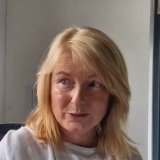
Tara Mahon, PhD, Associate Director, Protein Science Pipeline, Immunocore Ltd.

Dr. Tara M. Mahon is an Associate Director (Drug Discovery, Immunocore), where she leads efforts to engineer bi-specific molecules to achieve targeted immune suppression to treat autoimmune diseases. She joined Immunocore (formally Avidex) contributing to fundamental research and key publications on the soluble, high affinity T cell receptor (TCR) based platform, ImmTAC (Immune mobilising monoclonal TCR against cancer). Her contributions led to the approval of the first soluble TCR-based T cell engager, Tebentafusp. Recently her team developed a new class of targeted PD-1 agonist bi-specific molecules to treat Type I Diabetes and inflammatory skin diseases. Dr. Mahon holds a degree and PhD from Trinity College Dublin (lreland).
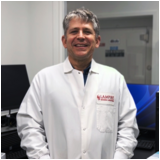
John Majercak, PhD, Head of Antibody Discovery, Pipersville Biotech, LAMPIRE Biological Laboratories, Inc.

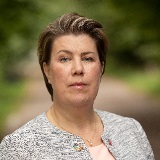
Sara M. Mangsbo, PhD, Professor, Pharmacy, Uppsala University

Sara Mangsbo (PhD) is a Professor in antibody drugs at Uppsala University. Professor Mangsbo is a leader in the field of cancer immunotherapy and specifically in antibody-based drug delivery and synthetic long peptides and has been awarded the SITC team award within the SLP stream along with numerous awards for societal outreach activities. She is a serial entrepreneur and has founded Immuneed AB, a service provider of immunotoxicity measurements in human whole blood by the use of the ID.Flow system. She is the Chief Scientific Officer and co-founder of Strike Pharma AB. She drives a translational research project with the ambition and track record of taking research projects into clinical trial testing.

Paolo Marcatili, PhD, Head, Antibody Design, Novo Nordisk

Paolo Marcatili is an associate professor at the Technical University of Denmark, where he leads the "AI for immunological molecules" group. He has developed many state-of-the-art tools for characterising the structure and function of molecules of immunological relevance, in particular antibodies and T cell receptors, by applying deep learning tools to integrate sequence and structural data.
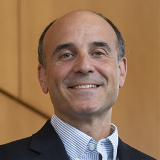
John P. Marino, PhD, Group Leader, Biomolecular Structure & Function Group, NIST

Since 2008, Dr. Marino has served as the leader of the NIST Biomolecular Structure & Function Group and Associate Director of the Institute for Bioscience and Biotechnology Research (IBBR), a joint research institute of the University of Maryland and NIST, in Rockville, Maryland. Dr. Marino joined NIST in 1997 as a Research Chemist and was appointed Adjunct Professor at the University of Maryland. Prior to coming to NIST, Dr. Marino completed a Ph.D. in Chemistry from Yale University in 1995 and an A.B in Chemistry from Princeton University in 1989. After his PhD, he held an Alexander von Humboldt post-doctoral fellowship for two years at the Goethe Universität in Frankfurt, Germany. Dr. Marino’s research focuses on precision measurement of biomolecular structure and dynamics, with a recent focus on NMR techniques for characterization of the higher-order-structure (HOS) of biotherapeutics.

Debora S. Marks, PhD, Associate Professor, Systems Biology, Harvard Medical School

Debora Marks PhD Marks joined the Systems Biology Department of Harvard as an Assistant Professor in 2014. In 2018, she achieved the rank of Associate Professor. Marks is a mathematician and computational biologist with a track record of developing novel algorithms, statistical methods and machine learning to successfully address unsolved biological problems. She is driven by a passion to understand, predict and design biomolecular systems in a way that impacts biomedical applications and synthetic biology at many scales. Her lab has focused specifically on developing new methods in probabilistic modeling that exploit the huge and increasing corpus of natural and synthetic sequence diversity. Using generative probabilistic models, she continues to build on our early success of predicting 3D structures from sequences alone; Over the past five years she has developed methods that accelerate structural biology with applications to cryoEM, crystallography, protein design and computed 3D structures of thousands of proteins with unknown folds, complexes and RNA interactions as well as flexible, dynamic and even disordered protein ensembles. To address new challenges in protein design Marks has adapted and developed deep neural methods particularly those that have been successful in other areas such as in natural language processing. Marks is applying these for a wide range of applications including (i) designing focused libraries of high affinity, specific nanobodies, antibodies that bypass the need for expensive rounds of selection or labor-intensive specificity assays and (ii) design and prediction of proteins that induce membranes compartmentalization and potentially biostasis in human cells and (iii) predicting the consequences of genetic variation to predict the effect of mutations for disease and drug response. In 2016, Marks won the ICSB Overton Award for outstanding accomplishment in the early to mid stage of career with significant contribution to the field of computational biology, in 2018 the Chan Zuckerberg Initiative Ben Barres Early Career Acceleration Award in the Neurodegeneration Challenge and in 2020 was awarded NIH Director's Transformative Research Award together with Chang Liu and Andrew Kruse “ Making Antibody Generation Rapid, Scalable, and Democratic Through Machine Learning and Continuous Evolution”

James D. Marks, MD, PhD

Dr. Marks is Professor and Vice-Chairman of the Department of Anesthesia and Perioperative Care at the University of California, San Francisco (UCSF) and Chief of Performance Excellence at Zuckerberg San Francisco General Hospital and Trauma Center (ZSFG). Dr. Marks received his medical degree from UCSF where he also completed residencies in Internal Medicine and Anesthesia and a fellowship in Critical Care Medicine. He received his Ph.D. in molecular biology from the Medical Research Council Laboratory of Molecular Biology in Cambridge, England. Dr. Marks is an internationally recognized pioneer in the field of antibody engineering, has had constant federal funding for 27 years and has authored more than 200 publications and 100 patents. In recognition of these scholarly achievements, he was elected to the National Academy of Medicine. As an entrepreneur, he has co-founded four biotechnology companies and currently serves on three biotechnology corporate boards.
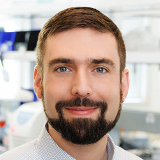
Alexander J Martinko, PhD, Senior Director, Antibody Engineering & Design, Cartography Biosciences Inc.

Alex Martinko is a scientist, entrepreneur, and leader in antibody engineering and protein sciences, with over a decade of experience developing therapeutic antibody technologies. As the Senior Director of Antibody Engineering and Design at Cartography Biosciences, Alex leads a multidisciplinary team specializing in antibody discovery, computational antibody engineering, and protein science to develop highly specific cancer therapies using bi- and multi-specific antibodies. Alex earned his PhD in Chemistry & Chemical Biology from UCSF under the mentorship of Dr. Jim Wells. His research included the discovery of novel antibody targets for RAS-driven cancers, which led to a licensing agreement with a major biopharmaceutical company. Additionally, he developed an innovative antibody technology for small molecule regulation of antibody function, which became the foundation for Soteria Biotherapeutics, a venture-backed startup co-founded by Alex to further advance this platform. Prior to joining Cartography, Alex was Senior Director of Antibody Engineering at Soteria Biotherapeutics, where he led a team of scientists in advancing the T-LITE™ platform. This bispecific T-cell engager technology enables small-molecule-controlled activation, offering a safer and more effective dosing strategy for T-cell engagers. With expertise spanning protein engineering, chemical biology, and cancer immunotherapy, Alex has authored over 20 peer-reviewed publications and patents. He remains dedicated to translating innovative science into transformative therapies that improve patient outcomes.

Shyam Masrani, Partner, Medicxi

Shyam is a Partner at Medicxi. Prior to joining Medicxi, Shyam founded two early-stage biotechnology companies (Shyden Biotechnology and Cleavr Therapeutics). He led Medicxi's investment in Merus (NASDAQ:MRUS) and ProfoundBio and currently serves on the boards of a number of portfolio companies, including T-Cypher Bio, My-T Bio, and CosMyc Therapeutics. Shyam obtained a BSc in Biochemistry and a Masters in Translational Medicine from Imperial College London.

Jennifer A. Maynard, PhD, Henry Beckman Professor, McKetta Department of Chemical Engineering, Cockrell School of Engineering, University of Texas Austin

Professor Maynard received her undergraduate degree in Human Biology from Stanford University, followed by a PhD in Chemical Engineering from the University of Texas at Austin, and post-doctoral studies at Stanford University. She returned to the UT Austin as a faculty member in the Department of Chemical Engineering in 2007. Her research group aims to develop advanced antibody therapeutics to treat infectious diseases, using a combination of biological and engineering principles. Her group has developed antibodies to prevent and treat pertussis and shown that these are highly protective in adolescent and neonatal baboon models of disease. Newer work is focused on strategies to re-direct T cells to eliminate virally-infected cells.
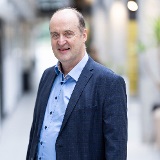
John D. McCafferty, PhD, CTO and Founder, Maxion Therapeutics

John McCafferty was one of the founders of Cambridge Antibody Technology (CAT, now Medimmune) in 1990 and published the first paper/patent describing antibody phage display. After 12 years at CAT, he returned to academia at the Sanger Institute and the University of Cambridge. In 2012, John formed IONTAS, a small innovative biotechnology company using phage display to develop novel antibody therapeutics. At IONTAS he developed a novel mammalian display platform using nuclease-directed integration to create very large libraries of antibody genes into a single genomic locus within a population of cells. John was founder and original CEOof Maxion Therapeutics focused on generating ion channel modulating antibodies. He also has a research group in the Department of Medicine at the University of Cambridge generating recombinant anti-venom antibodies.
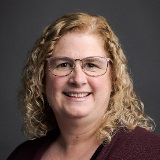
Diane McCarthy, PhD, Senior Scientific Director, Global Biologics, US Pharmacopeia

Dr. McCarthy is Senior Director, Science and Standards in USP’s Global Biologics Department, where she leads development and maintenance of standards and tools to support quality of medicines and oversees the USP biologics laboratories in the US and India. Her team supports standards and tools across a diverse range of therapies, including vaccines, peptides, cell and gene therapy, monoclonal antibodies, and other protein therapeutics. Prior to joining USP, Diane worked for several small CROs that focused on the use of mass spectrometry for characterization of biologics, host cell proteins, and biomarkers. Dr. McCarthy earned her Ph.D. in Biochemistry from the University of Texas at Austin.
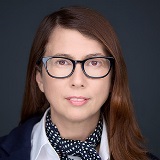
Yvonne McGrath, PhD, CSO, iTeos Therapeutics SA

Yvonne McGrath is the CSO of iTeos Therapeutics, an oncology company headquartered in Boston and with research labs in Belgium. With more than 25 years of international experience in oncology drug discovery and development, she has taken lead candidates from early stage research into clinical trials. Immediately prior to iTeos, she served as CSO and board member in Complix, a company developing novel biologics. She has also lead R&D activities in UK based biotech companies including Immunocore and Biovex. Yvonne holds a PhD from the University of Wales, College of Medicine.
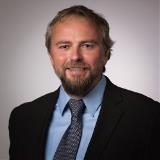
Michael McPherson, PhD, Research Fellow, Antibody Drug Conjugates, Technology and Therapeutic Platforms, AbbVie

Mike obtained his PhD in Chemistry from the University of Edinburgh in Prof. Bob Baxter’s lab and then moved to Brown University in RI to pursue postdoctoral research with Prof. David Cane on engineering polyketide synthases to produce “unnatural” natural products. He was an early employee of the biotech company Phylos Inc., founded by Brian Seed and Nobel Laureate Jack Szostak to advance the utility of mRNA display in the discovery of high affinity binding proteins through in vitro selection. There he successfully applied mRNA display towards the identification of drug-binding proteins using tissue-derived libraries. Since joining Abbott Laboratories in 2004 and now AbbVie, he has helped provide key molecular/cellular pharmacology support and project leadership to both small molecule and biologics drug discovery programs within Immunology Discovery. He currently leads a group within Global Biologics Discovery that is focused on the identification of novel biologic therapeutics to treat patients with cancer, autoimmune disease or neurological disorders.
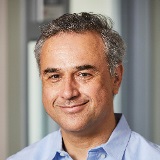
Rob Meijers, PhD, Head, Biological Discovery, Institute for Protein Innovation

Rob Meijers is the Head of Neuroscience at the Institute for Protein Innovation (IPI), a non-profit institute with a mission to provide impactful protein tools to the life science community. Dr. Meijers was trained as a structural biologist and has published on structural mechanisms of neuronal and immune receptors, as well as methods for the efficient production, conditioning and characterization of these receptors. Prior to IPI, he was a group leader at the European Molecular Biology Laboratory (EMBL) were he established a sample preparation and characterization facility for the European Research area.
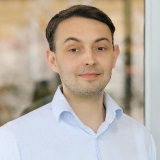
Ben Meinen, PhD, Head, Protein Design, AI Proteins

Dr. Ben Alexander Meinen earned his PhD in Biochemistry from Martin-Luther University Halle-Wittenberg, he conducted research in protein folding and aggregation under the mentorship of James Bardwell at the University of Michigan. He performed his postdoctoral studies at the Institute for Protein Innovation with Dr. Chris Bahl focusing on de novo protein designs. As a founding scientific member and the current Head of Protein Design at AI Proteins, Dr. Meinen has been pioneering de novo protein design for miniproteins as a new therapeutic modality.
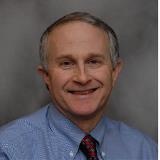
Jeffrey Miller, MD, Deputy Director, Masonic Cancer Center; Professor of Medicine, Division of Hematology, Oncology and Transplantation, University of Minnesota

Jeffrey S. Miller, MD, received a Bachelor of Science degree from Northwestern University in Evanston, Illinois and received his MD from Northwestern University School of Medicine. He completed an internship and residency in Internal Medicine at the University of Iowa in Iowa City. After completing a post-doctoral fellowship in Hematology, Oncology and Transplantation at the University of Minnesota, he joined the faculty in 1991. Dr. Miller is currently a Professor of Medicine at the University of Minnesota, Division of Hematology, Oncology and Transplantation. He is the Deputy Director of the University of Minnesota Masonic Comprehensive Cancer Center. He has more than 20 years of experience studying the biology of NK cells and other immune effector cells and their use in clinical immunotherapy with over 200 peer-reviewed publications. He is a member of numerous societies such as the American Society of Hematology, the American Association of Immunologists, a member of the American Society of Clinical Investigation since 1999. He serves on the editorial board for Blood and is a reviewer for a number of journals and NIH grants. Dr. Miller was the recipient of the National Cancer Institute Outstanding Investigator Award for 2015.

Caitlyn Miller, PhD, CEO & Co-Founder, TwoStep Therapeutics

Caitlyn Miller, PhD, co-founder and CEO of TwoStep Therapeutics, is dedicated to the company’s mission of bringing innovative targeted therapies to patients. Dr. Miller received her PhD in Bioengineering from Stanford University in the labs of Dr. Carolyn Bertozzi and Dr. Jennifer Cochran. During her PhD and postdoctoral work, Dr. Miller played a pivotal role in advancing technology that is now integrated into TwoStep’s therapeutic pipeline. Dr. Miller then joined the Stanford Innovative Medicines Accelerator as an Entrepreneur-In-Residence, where she spearheaded the efforts to launch TwoStep Therapeutics.
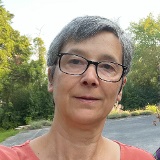
Dominique M. Missiakas, PhD, Professor, Microbiology, University of Chicago

Dominique Missiakas is Professor of Microbiology (2014) and Director of the Howard T. Ricketts Laboratory (2018), a Regional Biocontainment laboratory dedicated to Infectious Diseases research at the University of Chicago. She received her PhD in Biochemistry from the University of Paris XI (1991). For the past 23 years, her studies have focused on Staphylococcus aureus and Bacillus anthracis. Her research examines pathways that support envelope assembly and protein secretion in these organisms. Additional studies examine mechanisms that mediate immune evasion during S. aureus colonization and bloodstream infection. Disclosure: Dr. Missiakas is the founder of ImmunArtes LLC, a startup that seeks to develop vaccines and monoclonal antibodies against S. aureus.

Michael Mitchell, PhD, Skirkanich Assistant Professor of Innovation, Department of Bioengineering, University of Pennsylvania

Michael J. Mitchell is the Skirkanich Assistant Professor of Innovation in the Department of Bioengineering at the University of Pennsylvania. He received a BE in Biomedical Engineering from Stevens Institute of Technology in 2009, a PhD in Biomedical Engineering with Prof. Michael King from Cornell University in 2014. He was a Postdoctoral Fellow in Chemical Engineering with Prof. Robert Langer at MIT from 2014-2017, prior to pursuing his independent career at University of Pennsylvania. The Mitchell lab’s research broadly lies at the interface of biomaterials science, drug delivery, and cellular and molecular bioengineering to fundamentally understand and therapeutically target biological barriers. Specifically, his lab engineers new lipid and polymeric nanoparticle platforms for the delivery of different nucleic acid modalities to target cells and tissues across the body. His lab applies their research findings and the technologies developed to a range of human health applications, including the engineering of CAR T cells for cancer immunotherapy, mRNA vaccines, genome editing, cardiovascular disease, and in utero therapeutics to treat disease before birth. Mitchell has received numerous awards as an independent investigator, including the National Institutes of Health Director’s New Innovator Award, the Rising Star Award from the Biomedical Engineering Society, and the Career Award at the Scientific Interface from the Burroughs Wellcome Fund. In 2022 Mitchell was named “Emerging Inventor for the Year” by Penn’s for Innovation in recognition for his lipid nanoparticle technologies and received the Young Investigator Award from the Society for Biomaterials, the T. Nagai Award from the Controlled Release Society, and the National Science Foundation CAREER Award.
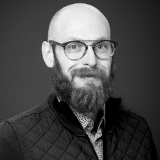
Carter A. Mitchell, PhD, CSO, Purification & Expression, Kemp Proteins, LLC

Dr. Carter Mitchell is the CSO for Kemp Proteins, leading a team of 40+ researchers in the rapid development of novel proteins in an ISO13485- and AAALAC-accredited lab. Dr. Mitchell is a protein chemist and structural biologist with 20 years of direct experience isolating and characterizing difficult proteins from a variety of recombinant and natural sources. Over more than 20 years, he has been exposed to a wide range of structural and biochemical techniques, and developed interests in understanding the development and manufacture of modern biotechnology products. He earned a PhD in Structural Biology where he enzymatically and structurally characterized multidomain proteins involved in metabolite biosynthesis. He developed and led a drug discovery pipeline with a team of scientists that isolated and characterized bioactive small-molecules and peptides from mammalian microbiomes. At the National Cancer Institute, Dr. Mitchell focused on the isolation of bioactive proteins from marine aqueous extracts, which required creative purification strategies earning the Director’s Innovation Award. Prior to joining Kemp Proteins, he was the CTO and Director of Structural Biology at a Biotech start-up where he built, developed, and implemented a protein expression and purification laboratory and managed the protein production and purification team. At Kemp Proteins, Dr. Mitchell acts as the Principal Investigator for numerous programs while striving to improve the technical understanding and capabilities of the group.

Brian Mog, MD/PhD Candidate, Ludwig Center, Johns Hopkins School of Medicine

Brian Mog graduated from the Johns Hopkins University MD-PhD program in 2024. He completed his PhD work with Bert Vogelstein, Kenneth Kinzler, and Shibin Zhou with a focus on designing chimeric antigen receptors to target genetic alterations common across all types of cancer. He is currently a first-year Internal Medicine resident at Brigham and Women’s Hospital and plans to pursue a physician-scientist career in Medical Oncology.

Noor Momin, PhD, Assistant Professor, University of Pennsylvania

Dr. Noor Momin completed her Bachelor of Science degree in Biomedical Engineering at the University of Texas at Austin and earned her Ph.D. in Biological Engineering at MIT under the supervision of Prof. K. Dane Wittrup. For her doctoral thesis, Dr. Momin engineered a localization strategy that improves the safety and effectiveness of cytokine therapies used for cancer treatment. This technology is being evaluated in canine clinical trials and has been licensed for human drug development. She went on to conduct postdoctoral training in Prof. Matthias Nahrendorf’s lab at Harvard Medical School and Massachusetts General Hospital where she examined the role of leukocytes in arrhythmia. In January of 2024, Dr. Momin launched her independent research group at University of Pennsylvania in the Bioengineering Department and the Penn Center for Precision Engineering for Health. The Momin lab seeks to understand and modulate the immune response for targeted treatment of cardiovascular diseases.
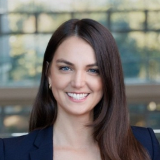
Stephanie M. Monson, PhD, Principal Scientist & Group Leader, Conjugation & Chemical Biology, Genentech Inc.

Stephanie Monson leads the Bioconjugation and Oligonucleotide Therapeutics group at Genentech, which is responsible for the design and generation of new therapeutic modalities that combine the engineering and analytical principles of multiple scientific disciplines. Stephanie is the Project Team Lead and Molecule Lead for multiple programs where complex modality formats are used, including antibody oligonucleotide conjugates as well as degrader antibody conjugates.

Gregory L. Moore, PhD, Senior Director, Protein Engineering, Xencor, Inc.

Dr. Moore is a Sr. Director in the Protein Engineering department at Xencor, Inc. Since joining Xencor in 2004, Dr. Moore has made many contributions to the company’s technology platform, including antibodies with increased affinity for the inhibitory receptor CD32b, bispecifics with heterodimeric Fc regions, and antibodies with enhanced recruitment of complement. Currently, his work focuses on the design of antibody-based bispecifics and antibody Fc engineering, humanization, and affinity maturation. Prior to Xencor, Dr. Moore was a graduate student at Penn State University, where he developed computational models and optimization methods for protein engineering and directed evolution protocols. Dr. Moore holds a PhD and BS in Chemical Engineering from Penn State University.

Deborah Moore-Lai, PhD, Vice President, Protein Sciences, ProFound Therapeutics

Deborah joined ProFound Tx in 2024 as the VP of Protein Sciences to lead protein and antibody development campaigns. Prior to ProFound Tx, Deborah was with Abcam for 5 years, leading the Protein Development and Sequencing Platforms, responsible for protein and sequencing needs for Abcam. Prior to Abcam, she spent 16 years working in both the reagent and therapeutic spaces. For many years she led Antibody Production at Cell Signaling Technology. From there she joined Merck Research Laboratories, where she led the team responsible for antigen & antibody generation within Biologics Discovery.

Philip N. Moquist, PhD, Scientist, Chemistry, Pfizer Oncology

Phil Moquist is an associate research fellow at Pfizer in the ADC Chemistry department. He worked at Seagen for nearly a decade focusing on various aspects of ADC design. His expertise is in payload and linker design with a current focus on discovering novel chemotypes. Prior to Seagen, he received a PhD from Boston University and a BS from UC San Diego.
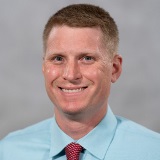
Zachary S. Morris, PhD, MD, Department Chair and Endowed Professor of Human Oncology, University of Wisconsin Madison

Dr. Zachary Morris, MD/PhD is the Chair and Paul Harari Professor of Human Oncology at the University of Wisconsin School of Medicine and Public Health. His research lab is focused on the translational investigation of the radiobiology and immunologic effects of radiopharmaceutical therapies and the effective integration of these with immunotherapies.

Sherly Mosessian, PhD, CSO, SOFIE

Dr. Mosessian earned her bachelor’s degree in Biochemistry, followed by her Ph.D from UCLA Department of Molecular, Medical Pharmacology, with publications in tumor signaling, molecular imaging targets and clinical trials of Position Emission Tomography (PET) tracers. Prior to joining SOFIE, she served as a Chief Administrative Officer at UCLA and oversaw the establishment of a robust pathway for translational of PET tracers from bench to clinic, along with current Good Manufacturing Process facility in support of PET radiopharmaceuticals production for research and clinical service. In her role as the Chief Scientific Officer of SOFIE, she formulates the strategic plan for quality, compliance, regulatory and scientific objectives of the organization, including leading the radiopharmaceutical diagnostic clinical development program.
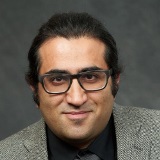
Davoud Mozhdehi, PhD, Associate Professor, Chemistry, Syracuse University

Davoud Mozhdehi (Dave Moz) is an Associate Professor in the Department of Chemistry at Syracuse University, where he leads a research program focused on bioinspired materials design. His work, funded by the NIH and NSF, explores the use of post-translational modifications, such as lipidation, to engineer smart biomaterials with applications in nanomedicine and biotechnology. Mozhdehi's research has led to several high-impact publications in prestigious journals such as JACS, Nature Chemistry, and Angewandte Chemie, as well as multiple patents in the field of protein lipidation. He earned his Ph.D. in Organic Chemistry from the University of California, Irvine, and completed his postdoctoral training at Duke University, before starting his independent career at Syracuse University in 2018.
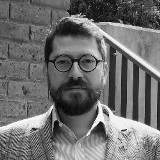
Vincent Muczynski, PhD, Director, NovalGen

I am a translational scientist driven by innovation and a strong appetite to tackle unanswered questions. My work builds on a very enriching dual position between academia and industry, to develop ground-breaking therapeutics, and address unmet clinical needs. I am currently a Research Fellow at University College London (UCL) é Cancer Institute in the laboratory of Pr. Amit Nathwani, which I joined in 2018. My research activity at UCL explores the translational potential of immunotherapies using the virtually limitless plasticity of antibody engineering, as well as the unique therapeutic potential of AAV-mediated gene transfer as a mean of drug delivery, to design innovative therapeutic strategies for monogenetic and acquired disorders, with a particular interest in haemophilia A and oncology. Since 2019, I also serve as Director of Biology at NovalGen, a clinical stage start-up company spun-out from UCL and developing onco-immunotherapies for haematological malignancies and solid tumour, with a strong focus on T cell redirecting therapies. In this highly dynamic environment, I lead a research team working to develop novel regulation mechanisms designed to improve the safety profile of immunotherapies, establishing proof-of-concept in bispecific antibodies and cellular therapies. Before relocating to the UK, I was a post-doctoral researcher at INSERM in the research group of Dr. Cecile Denis in France, where I was studying the biology of coagulation factor X in relation to the unique mechanism of extracellular reservoir that protects this molecule from accelerated clearance. I was also involved in several projects aiming to develop new therapeutic molecules for the treatment of haemophilia A using engineered coagulation factors. I hold a PhD in molecular and cellular genetic from University Paris 11 é Sud, defended in 2011.
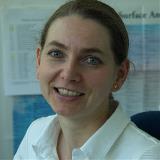
Dafne Müller, PhD, Group Leader, Institute of Cell Biology and Immunology, University of Stuttgart

Dafne Müller received her doctoral degree from the University of Stuttgart in Germany. At the present she holds a group leader/lecturer position at the department of Biomedical Engineering at the Institute of Cell Biology and Immunology of the University of Stuttgart. Working in the field of recombinant antibodies for over 15 years, her current research focuses on the development of recombinant antibody-fusion proteins with immune stimulatory or costimulatory properties for targeted cancer immunotherapy.
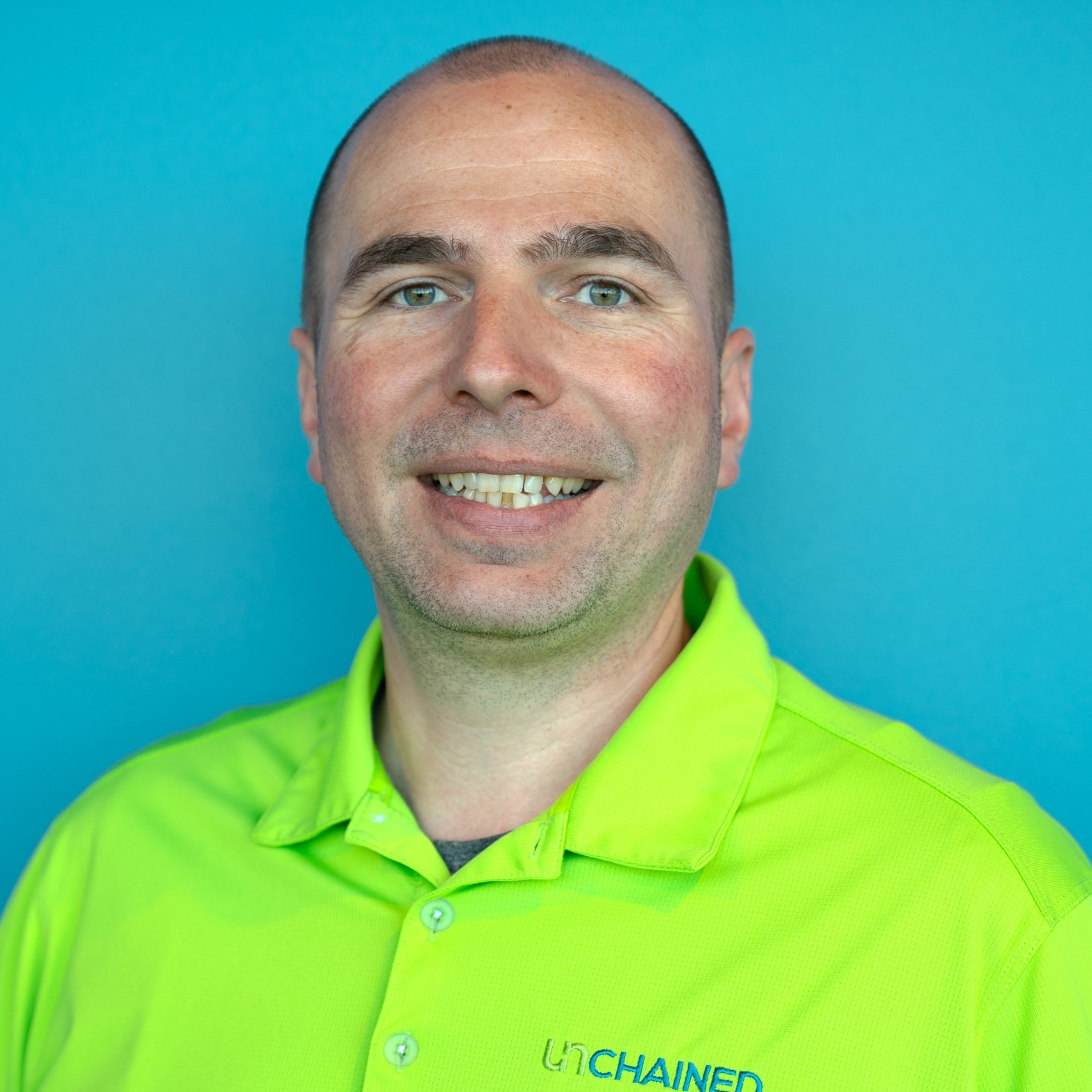
Andre Mueller, Product Manager, Aunty & Honeybun, Marketing, Unchained Labs

Andre is the Product Manager for Aunty and Honeybun at Unchained Labs. His expertise covers fluorescence, static light scattering, and dynamic light scattering for biophysical characterization of proteins and viral vectors. His research experience spans from structural biology to plant physiology and across labs in Germany, Sweden, Denmark, and the USA. Andre earned his PhD at the Carlsberg Laboratory and had a post-doc appointment at Stanford University.
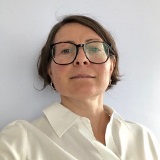
Monika Musial-Siwek, PhD, Director, Protein Sciences, Be Biopharma Inc.

I received my Ph.D. in Biochemistry at the University of Connecticut. My interest in the field of biotherapeutics originated during my postdoctoral training with Prof. Donald Engelman at Yale University, as a member of Tumor Targeting Drug Delivery Group. At MIT, where I was a postdoctoral fellow in lab of Prof. Barbara Imperiali and part of Glycosylation Research Group, I acquired appreciation for the diversity and importance of protein glycosylation. As a functional lead, I have established Protein Sciences at Be Biopharma and Nested Therapeutics with internal and external capabilities. I was also Interim Head of Nonclinical Development at Be, leading over 35-person multidisciplinary team in a matrix environment to reach different stages of drug development, and Interim Head of Structural Biology at Nested. At Sana Biotechnology I closely collaborated cross functionally, involving protein engineering, analytical development, process development, and immunogenicity groups to advance gene therapy programs. At KSQ Therapeutics, Inc. I developed skills to successfully manage a number of CRO’s and I extended my expertise across different modalities, including small molecule and biological therapies. Before that, at Pfizer in the Biomedicine Design group, together with exceptional mentees, I was responsible for process development of biological therapeutics and in-process and final product characterization using biophysical and biochemical methods.
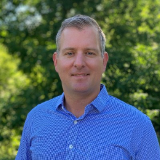
Jeremy S. Myers, PhD, Senior Vice President, R&D, EvolveImmune Therapeutics Inc.

Jeremy Myers leads EvolveImmune’s biology and biotherapeutic research teams. Before joining EV Jeremy helped lead Pfizer oncology research and development in Pearl River, NY as senior director, head of the Integrative Biotechnology Group. He was a member of Pfizer Oncology Research and Development Leadership Team. During his tenure, Jeremy led development of tumor targeted immunotherapies leveraging antibody discovery and rational protein design, cell surface antigen discovery efforts and interrogation of biotherapeutic targets for antibody drug conjugates and T-cell retargeting bispecific antibody therapeutics. Before Pfizer, Jeremy was a research faculty member and AstraZeneca Research Fellow in the Department of Biochemistry at Vanderbilt University Medical School. Jeremy received his BSc in biology from Bucknell University. He completed his Ph.D. studies in biochemistry and molecular biology at the LSU Health Sciences Center and Louisiana State University. He completed a postdoctoral fellowship at Vanderbilt University.
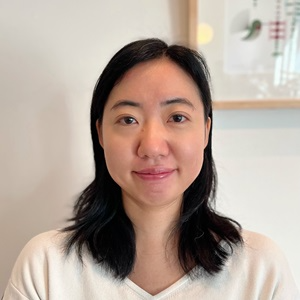
Yumi Nagase, Lead Researcher, Biopharma Solutions, Ajinomoto Co Inc

Yumi Nagase earned her master’s degree from the University of Tokyo in chemical biology, focusing on cell-free protein expression systems. Since joining Ajinomoto in 2012, she has been involved in strain development of Corynex®, protein expression technology using gram-positive bacteria. She has served as a project leader, developing highly productive strains currently used for cGMP production of biopharmaceuticals. Her ongoing research is focused on the incorporation of non-canonical amino acids.

Horacio G. Nastri, PhD, Vice President, Protein Science and Technology, Incyte Corporation

Dr. Nastri is currently the VP of Protein Science and Technology at Incyte Corp. His group is responsible for end-to-end discovery and engineering of monoclonal and bispecific antibodies for oncology applications. His group uses both immunization, as well as display approaches for the generation of lead molecules, which are further optimized by a combination of in vitro and in silico approaches. Dr. Nastri started his career in the antibody field at Dyax Corp., where he developed and co-invented key technologies utilized to build the Dyax Fab libraries. He then headed the Antibody Technologies group at EMD Serono, where he implemented new approaches for selecting antibodies by single cell B-cloning and phage display. He became an Inventor of Avelumab, a clinical-approved anti PD-L1 antibody. He joined Pfizer CTI as a Biotherapeutic Site Head in NY, where he collaborated with local academic leaders to enable and advance novel therapeutic programs. During his career, Dr. Nastri became an inventor of multiple antibody therapeutic molecules and antibody discovery enable technologies, while participating in a number of projects resulting in IND applications.

Peter Neubauer, PhD, Lab Head, Bioprocess Engineering, TU Berlin

Professor Neubauer is head of the Bioprocess Engineering Laboratory at TU Berlin which is leading in bioprocess scale-up and automated bioprocess development. He leads the KIWI-biolab which was selected as an International Future Laboratory in AI for bioprocess development. He is co-author in more than 300 publications and 20 patents and cofounder of the companies BioNukleo, Enpresso, and Cell-tainer. In 2023 he obtained the prestigious Thought Leader Award from Agilent.
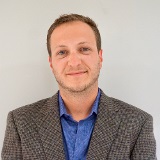
Stewart New, PhD, Associate Director, Antibody Discovery, Incyte

Stewart leads the In Vivo Antibody Discovery team at Incyte, where he directs the design and execution of immunization campaigns, B cell selection strategies, and antibody screening initiatives that support Incyte's preclinical drug discovery efforts. A key contributor to Incyte’s antibody discovery workflows, he introduced in silico tools for predicting immunogenicity in antibody therapeutics. Before joining Incyte, Stewart was an Instructor in the Department of Microbiology at the University of Alabama at Birmingham, where he researched the clonal evolution of B lymphocyte responses to bacterial cell wall carbohydrates and analyzed tissue-specific B cell repertoires in human mucosal immune tissues. He holds a PhD in Immunology from the University of Alabama at Birmingham and a BS in Molecular Biology from the University of Central Florida.
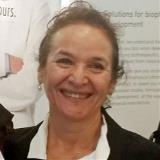
Ahuva Nissim, PhD, Professor, Antibody and Therapeutic Engineering, William Harvey Research Institute, Queen Mary University of London

Graduated in Molecular Immunology in 1992 from the Weizmann Institute of Science in Israel and was trained as a postdoctoral fellow at the MRC Centre for Protein Engineering in Cambridge until 1995. During this period she developed phage display semi-synthetic human antibody library, the so call ‘Nissim’ library which has been used worldwide. In November 2000 was appointed at Queen Mary University. My studies are interdisciplinary and involve translational research at the William Harvey Research Institute and with intensive worldwide collaborations. My studies have been mostly focused on the mechanisms that lead to the formation of disease tissue-specific pathogenic post-translationally modified proteins and the exploitation of identified pathogenic proteins to develop platform technologies for novel disease - and tissue-specific, diagnosis and targeted treatment.

Rajkumar Noubade, PhD, Director, Oncology, Gilead Sciences

Rajkumar Noubade is Director in Oncology department at Gilead Biosciences in Foster City, CA and has decades of experience in tumor immunology at various levels across industry. His lab focusses on investigating components of tumor microenvironment with the goal of potentiating anti-tumor immunity. He received his PhD from University of Vermont, Burlington VT and completed his postdoctoral training at Genentech, South San Francisco, CA. He has authored and co-authored several manuscripts in high impact journals.
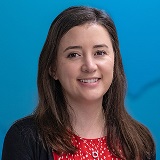
Shannon K. Oda, PhD, Principal Investigator & Associate Professor, Center for Childhood Cancer Research, Seattle Children’s Research Institute

Dr. Shannon Oda received a PhD in Immunology under the mentorship of Dr. Raul Torres at the University of Colorado Anschutz Medical Campus and completed her postdoctoral training with Dr. Philip Greenberg at the Fred Hutchinson Cancer Research Center. She has received several awards, including the Future of Science and the LLS Career Development Program Special Fellow Awards, and has been invited to give talks internationally. Dr. Oda was recruited to the Seattle Children’s Research Institute in 2020, where she is an assistant professor at the Ben Towne Center for Childhood Cancer Research and the University of Washington School of Medicine. Her research focuses on improving T cell immunotherapy, which uses immune cells to target and destroy cancer cells. Dr. Oda and her team have identified several obstacles that inhibit immune cells from effectively eradicating tumors and they are innovating new ways to engineer T cells to overcome these obstacles and improve immunotherapy of hematological and solid tumors.

Sebastian Oehler, Research Scientist, Small Molecule Therapeutics, Philochem AG

Sebastian Oehler is a biochemist and expert in DNA-Encoded Chemical Library (DEL) technology, with a strong focus on advancing drug discovery. He earned his undergraduate degree in Life Sciences from the University of Konstanz and pursued postgraduate studies in drug discovery and development at Imperial College London. During his Ph.D. at ETH Zurich and Philochem AG under the supervision of Prof. Dario Neri, Sebastian focused on methodological innovations in DEL technology and the synthesis of highly productive libraries. Sebastian continued as scientist, now group leader, at Philochem AG, where he employs DELs as a powerful platform for identifying and developing ligands for pharmacodelivery applications.
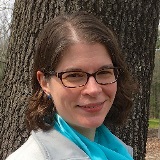
Michelle Ols, PhD, Senior Director & Head, Cell Therapy, Obsidian Therapeutics, Inc.

Michelle Ols, PhD, is an immunologist who has been working in the fields of immune oncology and autoimmune disease research at biotechnology companies in Cambridge, Massachusetts, since 2011. She is currently the VP, Head of Cell Therapy, at Obsidian Therapeutics, leading preclinical programs to engineer tumor infiltrating lymphocytes with pharmacologically-regulated protein expression for the treatment of intractable solid tumors. She previously held positions at Padlock Therapeutics and Biogen. Dr. Ols obtained her PhD in Cellular and Molecular Medicine from The Johns Hopkins University School of Medicine, completed a post-doctoral fellowship at Yale School of Medicine, and was a Fulbright Scholar at the University of Heidelberg in Germany.
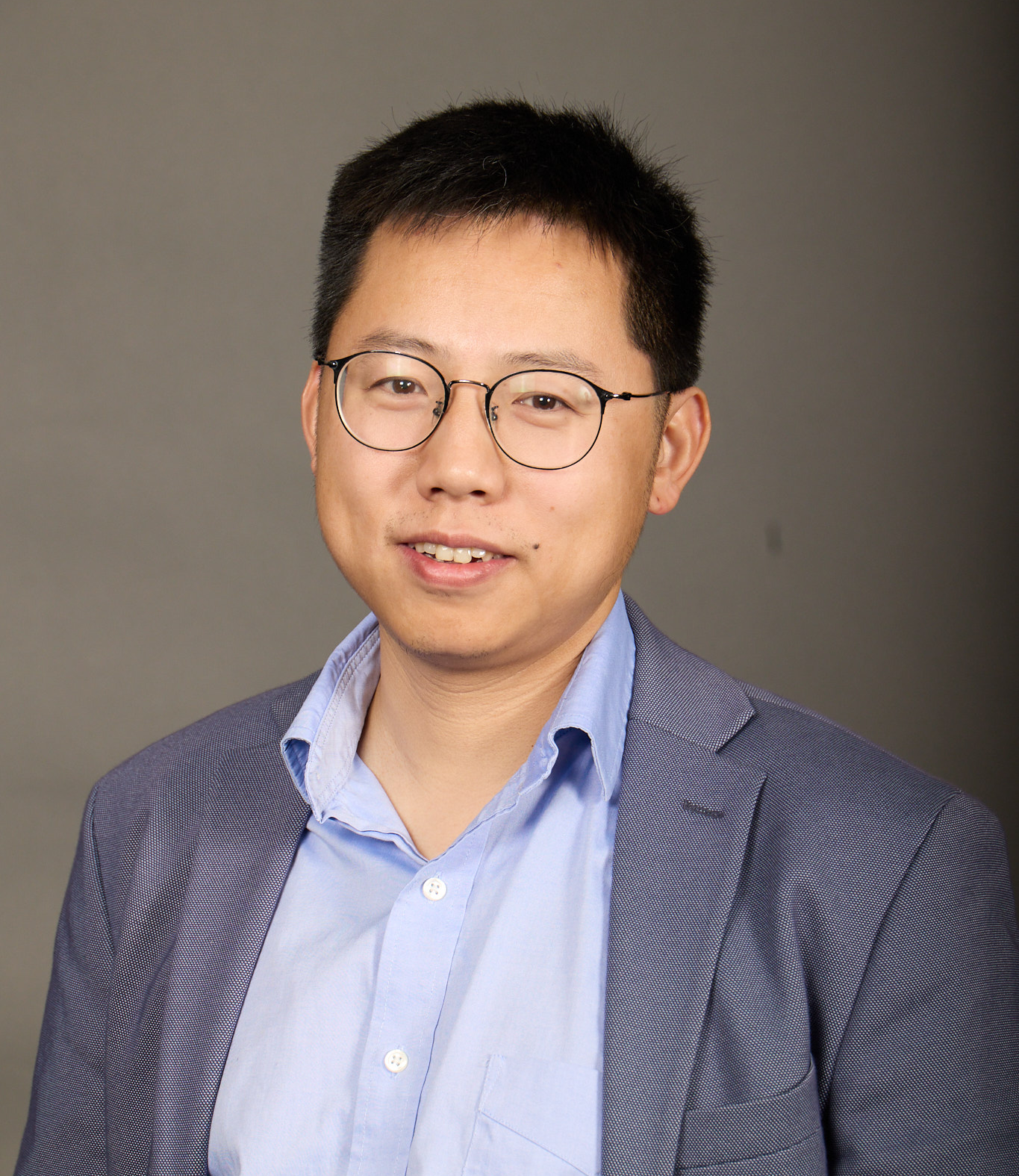
An Ouyang, Product Manager, Product Development, ACROBiosystems

As the Product Manager at ACROBiosystems, An Ouyang adopts a comprehensive approach, providing end-to-end solutions to address the unmet needs of customers in Cell and Gene Therapy, Antibody Drug, and Vaccine development, manufacturing, and clinical trials. Collaborating closely with the R&D and marketing teams at ACRO, An is dedicated to ensuring the delivery of top-notch products and services that not only meet but exceed customer expectations. This commitment contributes to the overall success of our valued clientele. An plays a pivotal role in enhancing their satisfaction, establishing ACROBiosystems as a trusted partner in the dynamic fields of drug development.
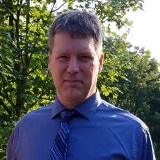
Jason Parent, Scientist, Bioassay Development, Bristol Myers Squibb

With over two decades of experience in pharmaceutical and biotechnology industries, Jason Parent is a Senior Associate Scientist at Bristol Myers Squibb's Bioassay Center of Excellence. Specializing in the development of cell-based and immunological potency assays, Jason has a proven track record in assay validation and GMP clinical assays. Jason is currently on rotation at Bristol Myers Squibb’s Quantitative Sciences & Digital Transformation (QS&DT) Group expanding his roles in method performance monitoring and digital transformation. He holds a Bachelor’s degree in Biological Sciences from Rutgers University.

Hamideh Parhiz, PharmD, PhD, Research Assistant Professor, Infectious Diseases, University of Pennsylvania

Hamideh Parhiz, PharmD, Ph.D. is a Research Assistant Professor in the Perelman School of Medicine at the University of Pennsylvania where she leads the targeted LNP delivery program. Her expertise is developing novel nucleic acid delivery systems including a new generation of targeted LNP-mRNA therapeutics for a variety of non-vaccine applications such as blood gene disorders, cancer, fibrosis, and acute inflammatory conditions. Hamideh’s work has resulted in the publication of more than 40 papers including two papers in Science magazine and several patents. Her work in designing an efficient targeted LNP-mRNA platform is now the basis for industrial product developments as well as academic programs.
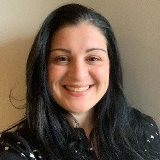
Andrea Partridge, PhD, Senior Scientist, Protein & Structural Chemistry, Merck & Co., Inc.

Andrea (Drea) Partridge is a Senior Scientist in the Structural Protein Sciences department at Merck in West Point, PA. She utilizes various expression platforms to enable structural determination and biophysical characterization of proteins for drug discovery. Expression systems include manual and automated baculovirus and mammalian platforms. Drea obtained her PhD in microbiology and immunology from Drexel University College of Medicine while studying a senescent-like phenotype induced by HIV-1 infection of macrophages. In her spare time Drea likes to garden, hang out with her family, watch monster movies, and listen to her favorite band Ghost.
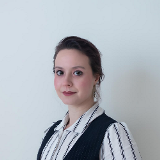
Athéna Patterson-Orazem, PhD, Senior Scientist II, RNAimmune Inc.

Patterson-Orazem received her Ph.D. in Biochemistry from Georgia Institute of Technology. She has applied her background in chemistry and X-ray crystallography to analytical development and quality control of RNA therapeutics, and currently leads protein engineering efforts at RNAimmune.
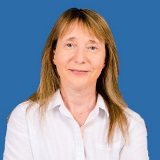
Sofie Pattijn, Founder & CTO, ImmunXperts, a Q2 Solutions Company

Sofie Pattijn, CTO and founder of ImmunXperts, has over 20 years of experience in the field of immunogenicity assessment (vaccines and biotherapeutics) and in vitro assay development with a focus on functional assays for immunogenicity, immune oncology, and cell and gene therapy products. She has extensive hands-on lab experience and has managed and coached several in vitro teams over the last decade. From 2008 until 2013, she was Head of the in vitro Immunogenicity group at AlgoNomics (Ghent, Belgium) and Lonza Applied Protein Services (Cambridge, UK). Prior to that, she worked at Innogenetics in Belgium for over 15 years.
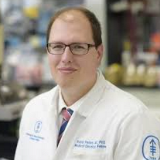
Karlo Perica, Assistant Attending Physician, Michel Sadelain Lab, Memorial Sloan Kettering Cancer Center

I am an MD-PhD cell therapy specialist at Memorial Sloan Kettering Cancer Center. My laboratory work focuses on developing allogeneic chimeric antigen receptor (CAR) T cell therapies. An “off-the-shelf” allogeneic cell therapy could improve efficacy and availability of CAR T cells, but is limited by host immune rejection. I thus focus on techniques to overcome host immunity and develop highly effective allogeneic immune effector cells. In addition, I attend on the MSKCC cell therapy service with extensive experience with commercial and investigational immune effector cells. I thus have a unique background in b immunology, gene engineering, clinical care of patients receiving cell therapies, and the development of clinically relevant technologies.
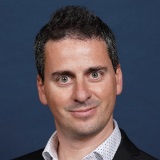
Mario Perro, PhD, Head of Biologics Research, Ichnos Glenmark Innovation

Mario Perro has worked in the field of oncology and cancer immunology since 2006. First focusing on Adoptive T cell transfer for the treatment of Acute Myeloid Leukaemia (AML), in 2015 Mario redirected his studies in the development of bispecific checkpoints and T cell engagers at Roche. Among many drug molecules evaluated, Mario contributed to the characterisation of Glofitamab and the development of Artificial Intelligence approach to investigate Tumour Microenvironment modification induced by a CEA targeted TCE in combination of checkpoint inhibitors. At present, Mario is heading the Biologic Research at IGI, focusing on next-generation multi-specific antibodies such as ISB 2001, a BCMAxCD38xCD3 T cell engager.
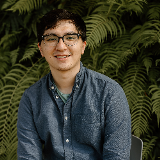
Tony Pham, Scientist, Biologics Engineering & Developability, AstraZeneca

At AstraZeneca’s Department of Biologics Engineering (Gaithersburg, MD), Tony Pham works on establishing new high-throughput experimental methods for developability assessment to support early-stage lead identification. With a background in biochemistry, computational biology, and data analytics he also works on implementing new in silico methods to predict immunogenicity in the context of developability properties such as non-specific binding and reversible self-association. Specific interests include developability of VHHs, and design of antibodies against viral targets. He studied biotechnology, earning his master’s degree at Boston University.
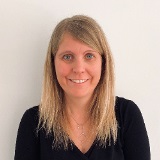
Ulrike Philippar, PhD, Senior Director and Head, Oncology and Discovery Hematological Malignancies, Johnson & Johnson Innovative Medicine

PhD in Cellular Biology at the University of Tuebingen, Germany; Postdoctoral Fellow at MIT Cancer Center, Cambridge, USA; 6 years in Oncology R&D at Merck & Co., Boston, USA; since 9.5 years at Janssen Oncology R&D, Beerse, Belgium; current position: Senior Director Oncology, Global Head of Discovery Hematological Malignancies.

Andreas G. Plueckthun, PhD, Professor and Head, Biochemistry, University of Zurich

Andreas Plückthun, Ph.D., is a Professor of Biochemistry at the University of Zurich, Switzerland. His research on protein engineering has included pioneering work on antibody engineering, the development of ribosome display, new scaffolds (the DARPin technology and Armadillo Repeat Proteins), engineering of stable G-protein coupled receptors towards high stability, and most recently a new retargeting platform for gene therapy. He is member of the German Academy of Science (Leopoldina) and recipient of many international awards and founder of three biotech companies, Morphosys, Molecular Partners and G7(divested to Heptares/Sosei). Trained as chemist in Heidelberg, he received his Ph.D. at UC San Diego, was Postdoc at Harvard, group leader at the Max-Planck-Institute in Martinsried, and then Professor in Zurich. His work has been published in over 475 papers, which have been cited over 50,000 times. He is an inventor on more than 25 patent families.
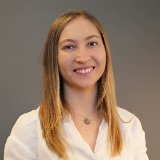
Jennifer Pollock, Researcher, Biomedical Engineering, Brown University

Jennifer is a PhD Candidate in Dr. Anubhav Tripathi's research group for microfluidic diagnostics and biomedical engineering at Brown University. She received her bachelor’s of science degree in Chemical Engineering from University of California - Santa Barbara before joining the Tripathi Lab in 2022. Her research focuses on developing high sensitivity, multi-analyte detection platforms for biomarker detection/quantification. Currently, she is focusing on isolating and characterizing brain derived extracellular vesicles to evaluate their clinical utility for neurodegenerative diseases. Her other interests include process development and automation.

Rebecca Pontikes, JD, Employee Rights Lawyer, Pontikes Law, LLC

Rebecca G. Pontikes, the founder of Pontikes Law, LLC, represents employees in all areas of employment law, specializing in gender and family responsibility (caregiver) discrimination, sexual harassment, negotiation of employment contracts and separation agreements, noncompetition agreements, retaliation and whistleblower claims (in all sectors, including the government and financial sectors), violations of the Family and Medical Leave Act, and violations of the wage statutes. Ms. Pontikes regularly speaks on employment law topics for Massachusetts Continuing Legal Education, bar associations, groups representing employees, and organizations that promote women’s rights in the workplace. She has co-written amicus briefs in support of the employee in Trustees of Health and Hospitals of the City of Boston v. Massachusetts Commission Against Discrimination, 449 Mass. 675, (2007) and Massachusetts Bay Transportation Authority v. Massachusetts Commission Against Discrimination, 450 Mass. 327 (2008), Dahms v. Cognex Corp., 455 Mass. 190 (2009), and Flagg v. Ali-Med, Inc. 466 Mass. 23 (2013). Ms. Pontikes is an active member of the Massachusetts Women’s Bar Association, where she sat on the board of directors for twelve years and chaired the solo and small firm committee for ten years. She is an active member of the Legislative Policy Committee and lobbied for the passage of the Massachusetts Pay Equity law and a Pregnant Workers’ Fairness Act. She is an active member of the Massachusetts Employment Lawyer’s Association, an association of attorneys who focus on representing employees and currently co-chairs the Amicus Committee. In the past, she has served on the Boards of Directors of Deana's Fund, an organization devoted to educating against dating violence through educational theater, and the Greater Boston Chapter of the National Organization for Women. She has been selected by her peers as a "SuperLawyer" since 2013. Massachusetts Lawyer’s Weekly named her a Top Woman of Law in 2012 and one of its Circle of Excellence lawyers in 2017. SuperLawyers named her one of the Top 50 Women SuperLawyers in Massachusetts multiple times since 2014. She graduated from Tufts University, magna cum laude in 1994, and from the University of Michigan Law School in 1997. In her free time, she is a political activist, particularly the underprivileged, reads, watches movies, and writes letters to the editor.

Alpana Prasad, Dir Product Management, Eurofins DiscoverX

Dr. Alpana Prasad is the Director of Product Management at Eurofins DiscoverX, where she leads business and growth strategy for cell-based assays, qualified bioassays, and cell banking. She is responsible for identifying new technologies and expanding the portfolio to support phase-appropriate analytical development of biologic drugs and advanced therapeutics, including cell and gene therapies (CGTs), from discovery and characterization to QC lot release. Dr. Prasad brings extensive experience in portfolio planning, lifecycle management, and the commercialization of biosimilars, life sciences reagents, and instrumentation. She earned her Ph.D. in Biochemistry from the University of Oxford, focusing on the lectin complement pathway, and completed post-doctoral fellowships in oncology at Yale University School of Medicine and in infectious diseases at Boston University School of Medicine.
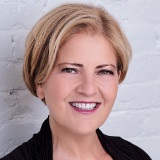
Michal Preminger, PhD, MBA, Regional Head, East North America, Johnson & Johnson Innovation LLC

Michal is Regional Head of Johnson & Johnson Innovation LLC, East North America. Located at the Innovation Center in Cambridge, she leads the Johnson & Johnson Innovation team to curate and cultivate the most promising, early-stage healthcare innovations in the region, spanning across pharmaceutical, consumer health and medical devices. Prior to joining Johnson & Johnson Innovation, Michal served as the Executive Director of Harvard University’s Office of Technology Development (OTD) Harvard Medical School site, where she was responsible for development and commercialization of technologies emerging from research at HMS laboratories and for the strategy and execution of all industry collaborations. She negotiated agreements with major biopharma, life sciences, food and cosmetics companies to advance the translation of discoveries into products and create a revenue-generating product pipeline and worked with scientific founders and investors to create new startup companies. Before joining Harvard University’s OTD in 2005, Michal held several senior business and technology development leadership positions in the biotech and tech industries and co-founded a biotechnology startup. Michal serves on the Board of Directors for MassBio and the Kendall Square Association (KSA). She is also a member of the Scientific Advisory Board and serves on the Scientific Advisory Board's FutuRx Accelerator, as well as on the Advisory Board for the Binah Initiative at the Weizmann Institute of Science.
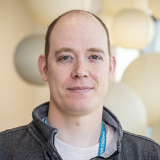
Jason Price, PhD, Acting Asstant Professor & Principal Investigator, Ben Towne Centre, Seattle Childrens Research Institute

Dr. Price is an Acting Assistant Professor in the Department of Pediatrics at the University of Washington and a Principle Investigator in the Ben Towne Center at Seattle Children’s Research Institute. Dr. Price is a protein engineer specializing in novel therapeutic design and launched his research lab in July 2024 with the mission to develop innovative protein-based therapies for the treatment of pediatric disease.
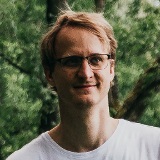
David Prihoda, Bioinformatics Lead, MSD Czech Republic

David focuses on building scientific applications for the design of biologics and enzymes using AI/ML methods at Merck & Co. His background is in Computer Science and AI, receiving his master’s degree at the Czech Technical University in Prague and currently pursuing his Bioinformatics PhD at the University of Chemistry and Technology.

Erik Procko, PhD, CSO, Cyrus Biotechnology; Adjunct Professor, University of Illinois, Urbana

Dr. Erik Procko completed his PhD in 2008 at Harvard University investigating mechanisms for antigen presentation to the immune system and was the first to computationally design a de novo protein with function (for the inhibition of a viral oncogene) under the mentorship of David Baker at the University of Washington during his postdoc. He was appointed as an Assistant Professor and later Associate Professor at the University of Illinois, Urbana-Champaign, where he developed methods for deep mutagenesis of complex glycoproteins in human cells. In 2020, he founded a small startup company that merged with Cyrus Biotechnology, where he helped build their experimental platform for deimmunizing non-human proteins to enable their safe and effective use as therapeutics. He became the Chief Scientific Officer at Cyrus Biotechnology in 2024, where he continues to help build a pipeline of novel drug candidates for autoimmunity, inflammation, and infectious diseases.
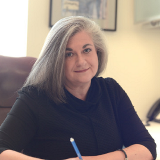
Ellen Puré, PhD, Chair & Professor, Biomedical Sciences, University of Pennsylvania

Ellen Puré, Ph.D., is the Grace Lansing Lambert Professor, former Chair of Biomedical Sciences, Professor of Systems Pharmacology and Translational Therapeutics, and founding Director of the Penn Vet Cancer Center at the University of Pennsylvania. Dr. Puré received her Baccalaureate degree from Washington University in St. Louis, and her doctorate from the University of Texas-Southwestern Medical School. She trained as a Damon Runyon-Walter Winchell Postdoctoral Fellow and Leukemia Society Special Fellow and then joined the Faculty at the Rockefeller University. In 1992, Dr. Puré moved to Philadelphia where she was on the Faculty of the Wistar Institute until moving to the University of Pennsylvania in 2013. Dr. Puré is an Associate Director of the Cancer Research Institute and currently serves as a consulting editor of the Journal of Clinical Investigation and is a Founding Senior Editor of Cancer Immunology Research. Dr. Puré’s research focuses on the cellular and molecular basis of fibroinflammation. She studies the basic mechanisms of fibroinflammation in the context of fibrotic diseases and cancer. Her laboratory has made seminal contributions to our understanding of the roles of stromal cells and extracellular matrix remodeling in tissue fibrosis and in cancer risk, initiation, progression, and metastasis. Her lab is developing novel therapeutic approaches to target stroma to treat fibrosis and cancer. In 2019, Dr. Puré was named a Fellow of the American Association for the Advancement of Science (AAAS). Dr. Puré is a scientific co-founder of Capstan Therapeutics.
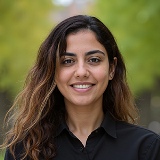
Ahlam N. Qerqez, PhD, Scientist Lab Leader, Protein Engineering, Denali Therapeutics Inc.

Dr. Qerqez earned her bachelor's degree in Biomedical Engineering from the University of Texas at Austin, where she conducted research as an undergraduate under the guidance of Dr. George Georgiou. During this time, she focused on engineering enzymes to deplete tumor metabolites. She went on to complete her Ph.D. in Chemical Engineering, also at UT Austin, in Dr. Jennifer Maynard's lab. Her doctoral research involved developing antibodies targeting myocilin, engineering CMV-specific T-cell receptors (TCRs) for affinity and bispecific evaluation, and designing potent Fc molecules to counter viral escape mechanisms associated with CMV infection. Following her Ph.D., Dr. Qerqez joined Denali Therapeutics, where she works on advancing next-generation therapeutics for central nervous system (CNS) disorders. Her work involves the development of engineered enzymes and antibodies, using the Transport Vehicle (TV) platform to enhance drug delivery to the brain.

Brian A. Rabinovich, PhD, CSO, R&D, Fuse Biotherapeutics

Dr. Brian Rabinovich is a founder and CSO of Fuse Biotherapeutics where he utilizes his experience as an Immunologist and expert in T cell and NK cell biology to direct the development of FuseBio’s pipeline of cis-acting immune and tumor-targeted cytokines. Prior to FuseBio, Brian was the Director of Redirected Immunotherapy and Head of NK cell Innovation at Merck KGaA where he led discovery projects developing multispecific fusion proteins that bridge immune cells to tumors and thereby redirect their specificity towards cancer. Brian also helped build Iovance from the ground up and spent over 15 years developing protein- and cell-based therapeutics at MD Anderson Cancer Center, Amgen, and Immunex. Brian earned his PhD in Immunology from the University of Toronto.

Christoph Rader, PhD, CTO, Aethon Therapeutics

Christoph Rader joined Aethon Therapeutics (New York, NY) as Chief Technology Officer in 2023 following an academic career as professor and principal investigator at The Scripps Research Institute in Jupiter, FL (2012-2023; acquired by the University of Florida in 2022), the National Cancer Institute (NCI) of the National Institutes of Health (NIH) in Bethesda, MD (2003-2012), and The Scripps Research Institute in La Jolla, CA (1999-2003). His labs pursued both antibody drug and target discovery for cancer therapy, with a focus on antibody display, engineering, and conjugation technologies.

G. Jonah Rainey, PhD, Associate Vice President, Eli Lilly and Company

Jonah Rainey holds a PhD in Biochemistry from Tufts University and completed postdoctoral training at the University of Wisconsin and the Salk Institute. He has engaged in discovery, research, and development of bispecific antibodies for more than 15 years. He is an inventor on several patents describing novel bispecific platforms and current clinical candidates that exploit these platforms as well as an author on almost 30 publications. Jonah contributed to research and early development leading to multiple clinical candidates from Phase I and through approved products and led many advanced preclinical programs in oncology, infectious disease, autoimmunity, and other therapeutic areas. Previous industry experience includes MacroGenics, MedImmune/AZ, Oriole Biotech, Gritstone Oncology, and Alivamab Discovery Services. Currently, Jonah is a Senior Director in Protein Science at Eli Lilly & Co.

Arvind Rajpal, PhD, SVP, Xaira

Arvind leads the Drug Discovery and Development efforts at Xaira. Prior to Xaira he led Large Molecule Drug Discovery at Genentech where he was responsible for protein and antibody discovery and engineering, and some oligonucleotide and cell therapeutics. Before Genentech he has led similar functions across large organizations, i.e. Bristol-Myers Squibb and Pfizer. Arvind has a long standing interest in antibody based therapeutics. His teams have been involved in establishing several technologies, i.e. site-specific conjugation for ADCs, charge based hetero-dimerization for bispecifics, conditional activation using pH switches, and is currently exploring ML-based de novo design and multi-parameter optimization. Arvind trained in protein biophysics and biochemistry as a graduate student in Jack Kirsch’s lab at University of California at Berkeley. He conducted postdoctoral studies in immunology studying negative selection with Astar Winoto at Berkeley. His undergraduate degree is in Chemistry and Computer Science.

Garrett Rappazzo, PhD, Scientist, Platform Technologies, Adimab

As a scientist at Adimab, my work focuses on identifying and engineering protein therapeutics that target peptide-HLA (pHLA) complexes. As part of this work, my team has developed a novel yeast-based platform to engineer soluble T cell receptors (TCRs) as an alternative to antibody-based therapeutics in targeting pHLA complexes. Prior to joining Adimab, I completed my doctoral research at MIT in Prof. Michael Birnbaum’s lab, where I worked to characterize the peptide-binding repertoires of Class II HLA proteins.
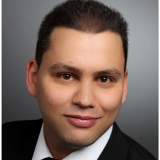
Reda Rawi, PhD, Staff Scientist and Co-Head, Structural Bioinformatics Core, NIH NIAID

Dr. Reda Rawi is currently a Staff Scientist and the Co-Head of the Structural Bioinformatics Core at the NIH's Vaccine Research Center (VRC). He earned his Diploma in Mathematics from the Applied University of Koblenz, Germany in 2007, his MSc in Bioinformatics from the Birkbeck college at the University of London, UK in 2008, and his PhD in Computational Biology from the University of Duisburg-Essen, Germany, in 2013, working with Prof. Dr. Daniel Hoffmann. After completing his PhD, Reda accepted a position as a postdoctoral scientist at the Qatar Computing Research Institute in Doha, Qatar, where he worked for 2.5 years. During that time, he developed and applied novel machine learning tools for structural biology related projects. In 2016, Reda was awarded a NIH postdoctoral fellowship and joined the Structural Bioinformatics Core of the VRC, the world's leading research facility for vaccine design. Within just 3 years he was promoted to a Staff Scientist and co-head of the core. While at the VRC Reda was leading multiple vaccine design and antibody improvement efforts targeting a diverse set of pathogens, such as HIV-1, Influenza, or Malaria. Reda introduced the computer science field of advanced machine learning to the VRC and successfully applied his expertise to solve scientific tasks of critical importance. Dr. Rawi has over 50 peer-reviewed publications and was invited to multiple conferences to update on his work.

Kallol Ray, PhD, Vice President & Head, Global Biologics, Takeda Pharmaceuticals Inc.

No bio available.
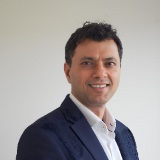
Venkat Reddy, PhD, Associate Professor, Rheumatology, University College London

Dr. Venkat Reddy is an Associate Professor and Consultant Rheumatologist at University College London, working in the Department of Ageing, Rheumatology, and Regenerative Medicine. With a deep commitment to addressing patients' unmet needs, Dr. Reddy combines his clinical expertise with cutting-edge research to advance treatments for autoimmune diseases. His research focuses on therapies targeting B-lineage cells and examining immune cell pathways vital to autoimmune conditions and healthy ageing. In collaboration with Prof Cragg and colleagues at UCL, Dr. Reddy’s research has uncovered resistance mechanisms within memory B cells in patients with rheumatoid arthritis and systemic lupus erythematosus, revealing that these cells evade deletion by internalizing the anti-CD20 antibody rituximab (PMID: 259165830). This work led to a collaboration with Roche Glycart, demonstrating that Obinutuzumab-a Type II anti-CD20 antibody-bypasses internalization, achieving more effective B-cell depletion in vitro (PMID: 28407142). This finding underpinned the Phase II NOBILITY study, while the Phase III REGENCY study further established Obinutuzumab’s efficacy in treating lupus nephritis. More than ten patients with refractory lupus in the UK have benefited from this treatment, with ongoing efforts to secure NHS England funding support. Dr. Reddy is currently advancing research aimed at disrupting B and T cell collaboration in autoimmune disease. His ongoing investigator-initiated study with Roche Glycart explores RO7507062, a novel agent for optimizing B-cell depletion, which has led to a Phase I clinical trial launched in 2023. This work underscores Dr. Reddy's commitment to clinical and translational research, shaping future therapies for autoimmune conditions like rheumatoid arthritis and systemic lupus erythematosus.

William Redmond, PhD, Member and Director, Immune Monitoring Laboratory, Earle A. Chiles Research Institute, Providence Cancer Institute

Dr. Redmond received his undergraduate degree in Biology at the University of California, Davis prior to pursuing a PhD in Immunology at The Scripps Research Institute. His doctoral studies focused on understanding how defects in the regulation of cytotoxic CD8 T cells leads to the onset of autoimmune (type 1) diabetes. Dr. Redmond completed his post-doctoral research on OX40 costimulation and tumor immunotherapy at the Earle A. Chiles Research Institute (EACRI) at the Providence Cancer Institute in Portland, OR. Currently, Dr. Redmond is a Full Member and Director of the Immune Monitoring Laboratory at the EACRI and an Adjunct Assistant Professor in the Department of Molecular Microbiology and Immunology at Oregon Health & Science University. The overall goal of his laboratory is to utilize preclinical models and human biospecimens to elucidate the mechanisms by which therapies including novel OX40 agonists, IL-2 agonists, and immune checkpoint blockade synergize to augment anti-tumor immunity. Furthermore, he seeks to identify biomarkers of response to immunotherapy treatments in patients to identify those most likely to benefit from this approach.
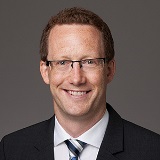
Christian Reichen, PhD, Associate Director, Oncology Research, Lead Generation, Molecular Partners AG

Christian Reichen, Associate Director Oncology Research at Molecular Partners, is co-project leader for the DARPin molecule-based T cell engagers platform and the MP0533 pre-clinical AML therapeutic program. In previous roles within Molecular Partners, he supported and lead several pipeline projects and was responsible for sequence optimization in the protein engineering subgroup. Christian completed his undergraduate studies at the ETH Zürich in Switzerland, then earned his Ph.D. at the University of Zurich in the group of Prof. Andreas Plückthun, where he established a novel binding scaffold based on armadillo repeat proteins using a computationally based design approach.
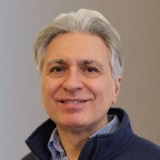
Stefano B. Rivella, PhD, Professor, Pediatrics, Children's Hospital of Philadelphia

Dr. Rivella is Professor of Pediatrics at the Children’s Hospital of Philadelphia (CHoP), University of Pennsylvania, holds the Kwame Ohene-Frempong Chair on Sickle Cell Anemia, and is the Scientific director of the Comprehensive Center for the Cure of Sickle Cell Disease and Other Red Blood Cell Disorders (CuRED) at CHOP. He is also a member of the Institute for Regenerative Medicine, University of Pennsylvania; of the Raymond G. Perelman Center for Cellular and Molecular Therapeutics-CHOP; Penn Center for Musculoskeletal Disorders; Gene Therapy and Vaccine program (GTV) of the Cell and Molecular Biology Graduate Group (CAMB), and Penn Institute for RNA Innovation, University of Pennsylvania, Philadelphia. The Rivella Lab also is studying the role of seminal factors contributing to the pathophysiology of hematopoiesis-, inflammation-, and iron-related disorders, such as sideroblastic and dyserythropoietic anemias, polycythemia vera, anemia of inflammation, and hemochromatosis, to name a few. He was involved in the characterization of Luspatercept-Reblozyl, and he was the first to propose the use of hepcidin agonists or inducers in beta-thalassemia, hemochromatosis, and polycythemia vera. Through his translational efforts, Dr. Rivella has helped to bring life-changing medical advancements to patients in need. For instance, Luspatercept has been approved to improve red cell production in beta-thalassemia. At the same time, a hepcidin agonist (Rusfertide) has shown its potential to replace phlebotomy without causing iron deficiency in polycythemia vera patients. His research program generated the first adult mouse models of XLSA, CDA1, alpha- and beta-thalassemia major and the first lentiviral vectors that corrected the hemoglobin synthesis in these diseases. This led the way to gene therapy clinical trials for hemoglobinopathies. An advanced vector generated in Dr. Rivella lab for the cure of beta-thalassemia has been recently approved by the FDA for a clinical trial starting at CHOP. More recently, he expanded his focus on developing tools for RNA delivery (gene editing and RNA therapies) to treat hematological and metabolic disorders.

Rizwan Romee, PhD, Associate Professor Medicine, Harvard Medical School and Dana-Farber Cancer Institute

Dr. Rizwan Romee is an associate professor at Dana Farber Cancer Institute, Harvard Medical School. His laboratory focuses applying synthetic biology tools to develop new immunotherapies for cancer. He also leads DFCI's NK cell therapeutics initiative encompassing evaluating engineered NK cells in the clinic in combination with novel immunomodulatory agents.
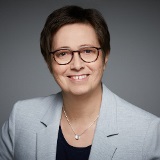
Christine Rothe, PhD, Chief Development Officer, iOmx Therapeutics AG

Christine Rothe serves as Chief Development Officer at iOmx Therapeutics where she is responsible for research and development programs. Christine has a track record in discovery and development of drug candidates. Before joining iOmx, Christine held positions of increasing responsibility in R&D and Alliance Management at Pieris Pharmaceuticals and MorphoSys AG. At Pieris, Christine played a major role in shaping the drug discovery process and bringing bispecifics from the start of the program into the clinic. Christine started her industry career at MorphoSys leading technology development as well as therapeutic antibody project.
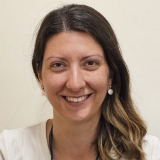
Maria C. Rotiroti, PhD, Research Fellow, Pediatrics, Dana-Farber Cancer Institute

Dr. Rotiroti trained in CAR engineering in Milan, Italy, and is currently advancing her research in Dr. Robbie Majzner Laboratory at Dana-Farber Cancer Institute in Boston. Her work focuses on developing CAR T cells with enhanced signaling properties, aiming to advance the next generation of immunotherapies.

Bonnie Rup, PhD, Biotechnology Consultant, Bonnie Rup Consulting

Bonita Rup is a biopharmaceutical development consultant, providing expert advice on bioanalysis, immunogenicity risk assessment, and related regulatory strategy aspects of biopharmaceutical development. Previously she was Research Fellow and lead for the Immunogenicity Discipline at Pfizer, Assistant Vice President of Protein Bioanalytics in Wyeth, and held various positions directing development and application of immuno-ligand binding assay technologies for PK, immunogenicity and protein impurity analysis, and other aspects of biopharmaceutical development. During her career, she has been involved in multiple regulatory filings during preclinical, clinical development and marketing approval of biopharmaceutical products. She has been a member of AAPS, EIP, European IMI ABIRISK consortium, and Biosafe; with these organizations, she has been a co-author for multiple publications related to monitoring immunogenicity and bioanalysis of therapeutic proteins. Bonnie received her B.S. from University of Massachusetts, Amherst, Ph.D. from University of Texas, Austin, and conducted postdoctoral research at Duke University and University of Rochester, NY.

Brett Rygelski, Scientist, Pharmaceutical Sciences, Pfizer

Brett Rygelski holds degrees in Chemical Engineering from Miami University and the University of Missouri Columbia, where he researched peptide amphiphile micelle vaccines. Joining Pfizer in 2019, Brett has worked on a variety of modalities, including vaccines, mAbs and Gene Therapy, with a focus on Formulation and Process Development. In recent years, Brett's digital skills have allowed him to develop tools that improve efficiency and support the department's digital initiatives.
.tmb-0_p.jpg)
Puja Sapra, PhD, Senior Vice President, Head R&D Biologics, Engineering and Oncology Targeted Discovery, AstraZeneca
.tmb-0.jpg)
I serve as Vice President, Tumour Targeted Delivery, Early Oncology. In my current role, I lead the research group dedicated to the discovery and preclinical development of targeted cancer therapeutics and novel delivery mechanisms that selectively attack cancer cells while sparing normal healthy tissues. Throughout my 20-year career I have worked on a breadth of tumour-targeting strategies and biotherapeutics including immunotherapeutics, CD3-bispecifics, liposomal drug delivery systems, nanoparticles, antisense oligonucleotide delivery and pegylation technologies. In this time, I’ve built industry leading platforms and a diversified pipeline in the tumour-targeted oncology arena. I’ve had notable success identifying and bringing antibody drug conjugates (ADCs) to patients é including an ADC for adults and children with acute myeloid leukaemia, as well as an ADC for refractory B-cell precursor acute lymphoblastic leukaemia. I am passionate about the promise of targeted therapeutics, and I have given numerous lectures on this topic at national and international meetings. I have authored more than 50 scientific publications, book chapters, and I am a recognized inventor or co-inventor of more than 25 patents in the field. I am a member of several scientific and medical societies including American Association for Cancer Research and also serve as the Deputy Editor of Molecular Cancer Therapeutics. I earned a PhD in Pharmacology from the University of Alberta on an Alberta Heritage Foundation for Medical Research scholarship. My research was in the lab of Theresa M Allen who pioneered the concept of stealth liposomal technology that ultimately resulted in the development of a liposomal form of a well-known chemotherapy used to treat haematological malignancies and solid tumours.
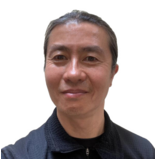
Shuji Sato, Senior Director, Client Relations, ImmunoPrecise Antibodies

Shuji Sato holds a PhD from Tufts University in Massachusetts and completed his postdoctoral training at the New England Primate Research Center, Harvard Medical School. Prior to joining IPA, he previously worked at other biotech & pharma companies, including Cell Signaling Technology and Pfizer, and most recently, he held the position of Associate Director, Antibody Discovery with Dragonfly Therapeutics.
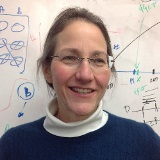
Ruth L. Saxl, PhD, Senior Manager, Protein Sciences, Scientific Services, Jackson Laboratory

My curiosity about proteins and my drive to understand how they function and contribute to disease processes has led me from the proteins that regulate bacterial two component pathways, to nucleotide synthesis enzymes, to the components of the glycerol synthesis pathway, and to the proteins locating and regulating homologous regulation in gametes. This diverse research has allowed me to develop the ability to isolate proteins from varied systems. Currently, I am fortunate to apply what I have learned to help others isolate and characterize their proteins of interest at The Jackson Laboratory.

Uciane Scarlett, PhD, Former Principal, MPM BioImpact

Uciane Scarlett is a former principal of MPM Capital, where she was involved in various investments and company builds, including ashibio and Crane BioTherapeutics. Uciane also oversaw the $100m DFCI/MPM fund. Prior to joining MPM, Uciane was a principal at Oxford Sciences Enterprises (OSE), a $1B Oxford (UK)-affiliated firm, where she co-led the life science sector. While at OSE, Uciane led company financings and drove start-up builds for companies including T-Cypher Bio, where she served as Interim Executive Chair, ORFonyx, PepGen. She represented OSE on the boards of T-Cypher, PepGen, Miro Bio, Scenic Bio, and DJS. Prior to OSE, Uciane was on the investment team at Atlas Venture where she supported financings for Dyne Therapeutics (DYN) and Quench Bio and served in operational roles for AVROBIO (AVRO) and KorroBio. Uciane was the Director of BD & Strategy at Compass Therapeutics prior to Atlas and prior to Compass was a Manager at the life sciences consultancy, Clarion | Lumanity. Uciane holds a PhD in cancer immunology from Dartmouth College. She received her BSc, first-class honors, in biotechnology (major) and zoology (minor) from the University of the West Indies.

Volker Schellenberger, PhD, Senior Vice President, Research Oncology, Vir Biotechnology, Inc.

Volker Schellenberger is President and CTO of Amunix Pharmaceuticals, which he co-founded in 2006. He initially served as Amunix’s Chief Scientific Officer and is the lead inventor of the company’s XTEN as well as XPAT platforms of protease-activated T cell engagers. Volker has over 25 years of industry experience in protein engineering and drug discovery. Prior to co-founding Amunix he served as head of Genencor’s protein engineering department. Volker received his PhD from Leipzig University (Germany) in 1986. He is author of over 40 scientific papers and inventor of more than 70 issued or pending patent applications. He is a recipient of the Karl Lohmann prize of the German Society of Biochemists. Amunix was acquired by Sanofi in 2022. Since then, Volker has been Head of Discovery for precision-activated biologics.
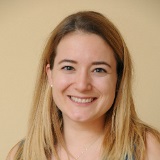
Eva-Maria Schneeberger, PhD, Scientist, Analytical Development, Moderna

Eva-Maria Schneeberger is a Senior Scientist in Analytical Development at Moderna, where she develops novel mass spectrometry-based methods to measure previously inaccessible characteristics of mRNA molecules, supporting the advancement of mRNA therapeutics. She holds a PhD in Organic Chemistry from the University of Innsbruck, where her research focused on native top-down mass spectrometry of RNA and RNA complexes. After her PhD, she completed a postdoc at Boston Children’s Hospital/Harvard Medical School, investigating how immune responses could trigger protein aggregation linked to neurodegenerative diseases. Since joining Moderna, Eva-Maria has become a co-inventor on two patents now applied across Moderna’s pipeline, and she regularly presents her work at scientific conferences. She also leads a team of three researchers developing novel mass spectrometry methods for the analysis of nucleic acids and proteins.
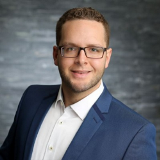
Hendrik Schneider, PhD, Principal Scientist, Merck KGaA, Darmstadt, Germany

Hendrik Schneider has a background in biochemistry and serves as a Principal Scientist at Merck KGaA, Darmstadt, Germany. He acts as lead scientist of the PROxAb Shuttle team since 2021, focusing on the targeted delivery of small molecule degraders. After completing his postdoctoral research at Technische Universität Darmstadt, where he explored antibody-polymer conjugates, he further honed his expertise in bioconjugation and noncovalent antibody-drug conjugates. Throughout his career, Hendrik has been committed to merging targeted protein degradation with antibody-drug conjugate (ADC) strategies, making significant advancements in drug delivery systems, and aiding in the development of new therapeutic modalities.

Taylor H. Schreiber, MD, PhD, CEO, Shattuck Labs

Taylor co-founded Shattuck Labs and currently serves as Chief Scientific Officer and a member of the Board of Directors. Taylor is the lead inventor of Shattuck’s ARC technology platform. Prior to Shattuck, Taylor served as Chief Scientific Officer of Heat Biologics, Inc. where he was a co-inventor of significant elements of Heat's ImPACT and ComPACT technology platforms. He was also the co-inventor of TNFRSF25 agonist technology developed by Pelican Therapeutics, where he served as Chairman of the Scientific Advisory Board.

Mahalia Serrano, PhD, Principal Scientist, Biologics Development, Bristol-Myers Squibb

Mahalia Serrano is a Principal Scientist in Biologics Development at Bristol Myers Squibb, specializing in the characterization of biotherapeutics by mass spectrometry. She obtained her PhD from the Department of Chemistry at UMass Amherst.
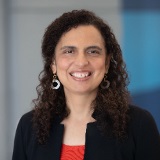
Nilufer Seth, PhD, Senior Scientific Director and Head, Discovery, Autoantibody Portfolio and Maternal Fetal Disease Area, Johnson & Johnson Innovative Medicine

Nilufer Seth, PhD, is currently a Senior Scientific Director in Immunology Discovery and the Head of the Autoantibody & Maternal-Fetal Immunology Disease Area Stronghold at Johnson & Johnson Innovative Medicines. She earned her PhD in Molecular Biology and Biochemistry from the Medical College of Georgia and subsequently completed her post-doctoral training at the Dana-Farber Cancer Institute, where she designed a novel system for generating MHC class II tetramers and investigated antigen-specific CD4 T cells. Nilufer has extensive experience in drug discovery for inflammatory and autoimmune diseases, having contributed to research efforts at Wyeth, Pfizer, and Johnson & Johnson.
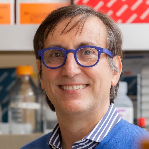
Alessandro Sette, PhD, Professor, Co-Director, Center for Vaccine Innovation, La Jolla Institute for Allergy & Immunology

I have devoted more than 30 years to understanding basic mechanisms of antigen recognition and immune responses, measuring and predicting immune activity, and developing disease intervention strategies against cancer, infectious diseases, autoimmune diseases and allergies. My early work, in the mid-80s to mid-90s, related to the demonstration that the main biological function of MHC is to bind epitopes. From those studies we further developed the notion that different MHCs have distinct binding specificities that can be used to predict epitopes. Since then, our group has defined motifs for over one hundred different class I and class II MHC variants expressed in from humans, and several other species. Throughout the last fifteen years I have been the PI of the Immune Epitope Database and Analysis Resource, freely available to the scientific community, which host immune reactivity data, and a series of bioinformatics algorithms to assist in the prediction and evaluation of immune responses. Our group also discovered and characterized how MHC variants can be grouped according to broad functional specificities (MHC supertypes), greatly facilitating epitope classification, characterization and understanding the basic rules of epitope-MHC interactions. Over the last 32 years, I have been continuously involved in hundreds of epitope identification studies, in cancer, autoimmunity, allergy, and infectious disease. By probing the IEDB, it can be established that I have been involved in identifying over 6,500 different epitopes.
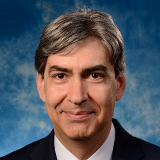
George Sgouros, PhD, Professor & Director, Radiological Physics Division, Department of Radiology, Johns Hopkins University School of Medicine

Dr. Sgouros is Professor and Director of the Radiological Physics Division in the Department of Radiology at Johns Hopkins University, School of Medicine. He is author on more than 200 peer-reviewed articles, several book chapters and review articles. He is recipient of the SNMMI Saul Hertz Award for outstanding achievements and contributions in radionuclide therapy and the 2024 recipient of the Paul C. Aebersold Award for outstanding achievement in basic science applied to nuclear medicine or molecular imaging. He is a member (2000-) of the Medical Internal Radionuclide Dose (MIRD) Committee of the Society of Nuclear Medicine and Molecular Imaging (SNMMI), which he chaired 2008-2019. He has chaired a Dosimetry & Radiobiology Panel at a DOE alpha-emitters workshop and also an ICRU report committee for ICRU guidance document No. 96 on dosimetry for radiopharmaceutical therapy. Dr. Sgouros is a former member (2012-2017) and chair (2015-2017) of the NIH study section on Radiation Therapeutics and Biology (RTB). Dr. Sgouros is also founder and principal of Rapid, a dosimetry and imaging services and software products start-up in support of radiopharmaceutical therapy.
.tmb-0_j.jpg)
Jagesh V. Shah, PhD, SVP, Head of Platform, Stealth Biotech, Flagship Pioneering
.tmb-0.jpg)
Jagesh V. Shah is the Senior Vice President of Platform at a Flagship Pioneering Startup developing LNPs for targeted in vivo gene therapies. He spent 15 years as a faculty member at Harvard Medical school melding together the disciplines of engineering, cell biology and systems biology towards new technologies and therapeutics for patients. Most recently, Jagesh was at Sana Biotechnology where he led the discovery and early development of the Fusogen platform, a revolutionary technology to engineer targeted in vivo viral vector-based delivery of therapeutic payloads.

Susan Sharfstein, PhD, Professor of Nanoscale Science and Engineering, University at Albany

Susan Sharfstein is a Professor of Nanoscale Science and Engineering at the University at Albany in Albany, New York. Professor Sharfstein received her B.S. in chemical engineering with honors from Caltech in 1987 and her Ph.D. in chemical engineering from UC Berkeley in 1993. Her interests include mammalian and microbial cell bioprocessing, control of protein glycosylation, metabolic engineering, biosensing, and development of systems for high-throughput screening of nucleic acids and small molecules. She is the author of over 85 papers and book chapters in the fields of biotechnology and bioprocessing.
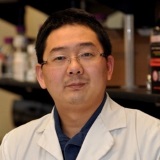
Scott Chunhua Shi, PhD, Associate Director Institute & Head of Biological Discovery, ORBIT Therapeutic Discovery, MD Anderson Cancer Center

Dr. Shi is the scientific leader of the Biological Therapeutic Discovery Platform in the Therapeutic Discovery Division at MD Anderson Cancer Center. In this capacity, he oversees multiple specialized teams in Protein Science, Antibody Discovery, In Vitro Pharmacology, and Cell Therapy, driving innovation in the preclinical development of therapeutic antibodies. Dr. Shi’s work spans a range of cutting-edge modalities, including ADCC, Bispecific Antibodies, ADC/ARC, and CAR-T therapies, all with the shared objective of advancing novel treatments for cancer patients. His leadership extends from preclinical research to clinical trials, contributing to the development of transformative therapies in the fight against cancer.
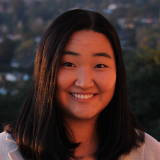
Jung-Eun (June) Shin, PhD, Machine Learning Scientist, Seismic Therapeutic

I am a machine learning scientist at Seismic Therapeutic, where we are developing immunology therapeutics through our platform combining machine learning, protein engineering, structural biology, and translational immunology. While leading one of our early-stage drug discovery programs, I apply deep learning models of protein sequence and structure for functional design of developable and non-immunogenic biologics. I received my doctorate in Debora Marks' lab at Harvard Medical School, where I developed and tested deep learning models for protein mutation effect prediction and protein design.

Sunanda Singh, Founder & CEO & President, Singh Biotechnology LLC

Sunanda Singh, M.D., Ph.D., President, CEO and Chairman has served as the President, CEO and Chairman of Singh Biotechnology, LLC since he founded it in August 2015. Since 2011, Dr. Singh has served as Director of Immunology at GLG Pharma. From June 2000 to January 2021, he was in private practice as a Plastic, Reconstructive, Hand, and Cosmetic Surgeon in the Tampa Bay area. His private practice focused greatly on melanoma, non-melanoma skin cancers, trauma & burns, breast & wound reconstruction, and nerve surgery for patients. Prior to this he was a resident in Plastic Surgery at the University of South Florida, All Childrens Hospital, and Moffitt Cancer Center in Tampa Bay from 1997-2020 and graduated as chief resident. Earlier he completed a full General Surgery residency at Temple University Hospital, Saint Christopher’s Childrens Hospital, and Fox Chase Cancer Center in Philadelphia from 1992 to 1997 and graduated as chief resident. At The University of Chicago Pritzker School of Medicine, Dr. Singh enrolled in the prestigious NIH-funded Medical Scientist Training Program (M.D.-Ph.D. program) from 1985-1992. There his PhD research, done in Dr. Hans Schreiber’s laboratory, was in cancer immunology with a focus on tumor stroma where he demonstrated that the stroma can be manipulated for the immunological destruction of solid cancers. This was one of the earlier demonstrations of the tumor stroma playing an important in cancer therapy. At The College in The University of Chicago, 1981-1985, he majored in chemistry and graduated with honors. His honors thesis was on designing antibody drug conjugates and the research for this was done at Argonne National Laboratory.

Eric Smith, PhD, Senior Director, Bispecifics, Regeneron Pharmaceuticals, Inc.

Dr. Eric Smith received his PhD in Microbiology and Immunology from Duke University in 1997. Following a postdoctoral fellowship at NYU he joined Regeneron in 2002 as a member of the Antibody and Trap Technologies group, where he worked on cytokine traps and related molecules. In 2008 he was a founding member of the Bispecific Antibodies team and is currently the Executive Director of Bispecifics at Regeneron.
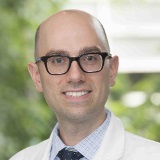
Eric L. Smith, MD, PhD, Director of Translational Research, Immune Effector Cell Therapies, Dana-Farber Cancer Institute

Eric Smith, MD PhD is Director of Translational Research for Immune Effector Cell Therapies at Dana-Farber Cancer Institute (DFCI) where his primary responsibility is as PI of a gene and cell engineering pre-clinical laboratory. He is an Assistant Professor at Harvard Medical School; Associate Member at the Broad Institute of Harvard and MIT; and a Member at the Parker Institute for Cancer Immunotherapy. He received his MD/PhD and internal medicine training at the Mount Sinai School of Medicine and medical oncology and post-doctoral training at Memorial Sloan Kettering Cancer Center where he stayed on as faculty in the Cellular Engineering Center and Myeloma/Cellular Therapy services before being recruited from New York to DFCI in 2020. The Smith Lab for Genetic and Cellular Engineering focuses on advancing the field and developing translational therapies for both hematologic and solid tumors for the benefit of patients. >10 patents have been filed or awarded based on his work and >10 clinical trials have been initiated stemming from CARs he developed. Most recently he reported on first-in-class GPRC5D-targeted CAR T cells for multiple myeloma, CARs he developed for a novel target that he described, in NEJM.
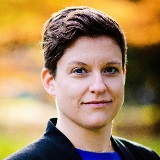
Catharine Smith, Executive Director, Termeer Foundation

Catharine Smith serves as inaugural Executive Director of the Termeer Foundation, which carries on the bold legacy of former Genzyme CEO Henri Termeer, who was committed to mentoring emerging leaders and whose dedication to patients resulted in groundbreaking treatments for rare diseases. By supporting biotech leaders, the Foundation seeks to increase the probability of creating cures and solving healthcare’s greatest challenges. Prior to the Termeer Foundation, Catharine served as the CEO of the Clinton Health Matters Initiative at the Clinton Foundation where she led a team focused on stigma reduction and overdose prevention related to the opioid epidemic. Prior to that, Catharine was the executive director of the Harvard Center for Primary Care. Catharine holds a master’s degree in business administration from the Massachusetts Institute of Technology and a graduate degree in social science research from the University of Chicago.
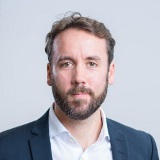
Dan Snell, PhD, Senior Vice President, Research and Preclinical Development, Numab Therapeutics AG

Dan joined Numab in 2019 where he leads Research and Preclinical Development. He began his career in industry at Oxford Glycosciences, UK in 2002 developing antibody based therapeutics in the field of Oncology. He then spent 7 years at Genzyme, a Sanofi company, where he helped to establish the antibody therapeutics group of Genzyme in Cambridge, UK. He led the protein engineering and molecular biology teams and was responsible for leading therapeutic programs in oncology and immunology. Dan moved to Switzerland in 2012 and worked for Molecular Partners as VP, Biology and led a team responsible for the preclinical biological characterisation of protein based therapeutics in immune-oncology, oncology, immunology and ophthalmology. He was also instrumental in collaborations with Roche, Janssen, Allergan and Immunogen. Dan holds a PhD in molecular immunology.

Jesper Sorensen, Head of Scientific Development , OpenEye, Cadence Molecular Sciences

Jesper SØrensen is Head of Scientific Development at OpenEye, Cadence Molecular Sciences. He received his Ph.D. in nanoscience from Aarhus University and subsequently did a post-doc in Prof. Rommie Amaro’s lab at UC San Diego. From there he joined Dart Neurosciences as a scientific software developer. In 2018 Jesper joined OpenEye, working on tools for protein structure preparation. In his current role he leads the scientific development groups and also manages a team developing drug discovery tools for biologics.

Pietro Sormanni, PhD, Group Leader, Royal Society University Research Fellow, Chemistry of Health, Yusuf Hamied Department of Chemistry, University of Cambridge

Pietro Sormanni is a group leader supported by a Royal Society University Research Fellowship at the University of Cambridge. His research focuses on the development of innovative data-driven technologies of rational antibody design, to obtain antibodies against targets that have been challenging to access using conventional approaches, and to improve or predict biophysical properties crucial for the successful development of antibody therapeutics. In his work he has established numerous collaborations and industrial partnerships, whose outcomes are beginning to demonstrate that computational approaches can be applied alongside established procedures to streamline antibody development, and to offer time- and cost-effective novel alternatives. Prior to taking up this post, Pietro held a postdoctoral Borysiewicz Biomedical Sciences Fellowship from the University of Cambridge, and obtained a PhD in Chemistry and an MSc in Theoretical Physics.
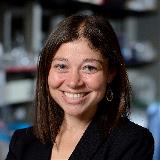
Jamie B. Spangler, PhD, Associate Professor, Biomedical and Chemical & Biomolecular Engineering, Johns Hopkins University

Dr. Jamie Spangler earned a Bachelor of Science degree in Biomedical Engineering at Johns Hopkins University and went on to complete a PhD in Biological Engineering at MIT under the supervision of Professor K. Dane Wittrup. She conducted postdoctoral training in Professor K. Christopher Garcia’s lab at Stanford University School of Medicine, and then launched her independent research group at Johns Hopkins University in July 2017, jointly between the departments of Biomedical Engineering and Chemical & Biomolecular Engineering. Dr. Spangler’s lab, located in the Translational Tissue Engineering Center at the School of Medicine, applies structural and mechanistic insights to re-engineer existing proteins and design new proteins that therapeutically modulate the immune response. In particular, her group is interested in engineering immune molecules such as antibodies, cytokines, and growth factors for targeted treatment of diseases such as cancer, infectious diseases, and autoimmune disorders. Dr. Spangler’s work has been recognized with honors including a National Defense Science and Engineering Graduate Fellowship, a Leukemia & Lymphoma Society Career Development Fellowship, a V Foundation Scholar award, and a Maryland Stem Cell Research Fund Discovery award.

Philipp Spycher, PhD, CSO, Araris Biotech AG

Philipp Spycher is the CSO at Araris Biotech AG. As the inventor of the Araris ADC Technology, he has a profound background in Bioconjugation and ADCs. He was the founder CEO, positioning Araris to shift the paradigm in how to think about developing targeted cancer therapies. During his post-doctoral work at the Paul Scherrer Institute (PSI, Switzerland), he introduced the novel approach using transglutaminases for antibody conjugation that led to the discovery of the Araris ADC Technology. Philipp won the PSI Founder Fellowship as well as several other prices and grants to commercialize the technology. He obtained his Master’s Degree and Ph.D. from ETH Zurich (Switzerland) at the interface of Material Science and Protein Engineering.

Ryan L. Stafford, PhD, Executive Director, Protein Engineering, 3T Biosciences Inc.

Ryan Stafford is currently an Executive Director of Protein Engineering at 3T Biosciences where he leads a team responsible for engineering therapeutics for peptide-HLA targets. He has over 13 years of industry experience at several companies including Twist Bioscience, Immune-Onc Therapeutics, and Sutro Biopharma. He has a Ph.D. in chemistry from Caltech.
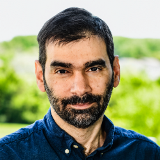
Valentin Stanev, PhD, Associate Principal Data Scientist, AstraZeneca

Valentin Stanev received an M.S. in physics from Sofia University, Bulgaria in 2000, and a Ph.D. in physics from Johns Hopkins University in 2010. After a postdoctoral position at Argonne National Laboratory, he moved to the University of Maryland at College Park, where he eventually became an Associate Research Professor at the Department of Material Science and Engineering. In 2021 Dr. Stanev joined the Biopharmaceutical Development Department at AstraZeneca, where he is currently an Associate Principal AI Scientist. His research interests include applications of machine learning methods to predict the developability of biologics.
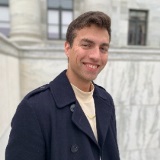
Samuel Stanton, PhD, Machine Learning Scientist, Prescient Design, Computational Sciences, Genentech

I joined the Prescient Design team at Genentech in June 2022 while completing the final stages of my Ph.D. at the NYU Center for Data Science as a 2018 NDSEG fellow. My doctoral work includes fundamental Bayesian machine learning methods development and practical applications to tasks like drug design. I also hold a M.S. in Operations Research from Cornell University (2019), and a B.S. summa cum laude in Applied Mathematics from University of Colorado, Denver (2017)
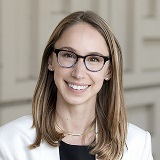
Jessica C. Stark, PhD, Underwood-Prescott Career Development Professor, MIT

Jessica Stark is an Assistant Professor in the departments of Biological Engineering and Chemical Engineering at MIT and an intramural member of the Koch Institute for Integrative Cancer Research. The Stark Lab is developing biological technologies to realize the largely untapped potential of glycans for immunological discovery and immunotherapy. As an American Cancer Society Postdoctoral Fellow with Prof. Carolyn Bertozzi at Stanford University, Jessica’s work focused on identifying and targeting glycans that act as immune checkpoints for next-generation cancer immunotherapy. As an NSF Graduate Research Fellow with Prof. Michael Jewett at Northwestern University, Jessica developed cell-free technologies for protein therapeutic and vaccine production that promise to enable portable and personalized medicine. Previously, she received her B.S. in Chemical and Biomolecular Engineering from Cornell University and worked at Genentech, Inc. in process development and research and development roles. Jessica’s independent work has been recognized with a Burroughs Wellcome Fund Career Award at the Scientific Interface, the Society for Immunotherapy of Cancer’s Steven A. Rosenberg Scholar Award, and a V Foundation V Scholar Award. The Stark lab is committed to enhancing diversity, equity, and inclusion in STEM through mentoring, outreach, and service activities. To support this work, Jessica co-developed and commercialized BioBits educational kits that promise to increase access to high-quality biology education by facilitating hands-on learning.
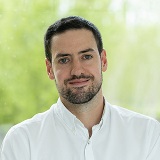
Daniel Stevens, CMO, Blue Earth Therapeutics Ltd

Dr. Dan Stevens is a board certified pharmaceutical physician with a dedication to translational science and drug development. His industry career is underpinned by NHS clinical academic training and he is a Fellow of the Faculty of Pharmaceutical Medicine at the Royal College of Physicians. His experience in industry has been focused on novel oncology drug development from lead identification through to NDA. Most recently, he has developed specific experience in targeted radioligand therapy, particularly focused on the clinical translation of novel compounds. He has led, or been part of, development teams which have taken novel molecules into the clinic in the US and Europe, successfully navigating manufacturing, operational and regulatory challenges.

William Strohl, PhD, President & Owner, BiStro Biotech Consulting LLC

Dr. William Strohl is founder and owner of BiStro Biotech Consulting LLC, started in 2016 to help biotechnology companies grow and expand their capabilities. Prior to retiring from Johnson & Johnson in 2016, Dr. Strohl was VP and Head, Janssen BioTherapeutics, Janssen R&D, J&J, where he headed up biologics discovery and early development. Before that, Dr. Strohl was head of Biologics Research at J&J. Dr. Strohl and his teams placed more than 30 highly innovative therapeutic proteins into development. Before joining J&J, Dr. Strohl was at Merck and Co from 1997-2008, leading Natural Products Biology, and then later, leading the Biologics discovery efforts, where he was involved in two biotechnology company acquisitions. Dr. Strohl started his career rising from Assistant to Full Professor, Department of Microbiology and Program of Biochemistry, at The Ohio State University, from 1980-1997. Dr. Strohl has over 140 publications and 17 issued patents, has edited three books, and wrote a book entitled "Therapeutic Antibody Engineering: Current and Future Advances Driving the Strongest Growth Area in the Pharma Industry" (2012).

JoAnn A. Suzich, PhD, Head, Research, Immunocore LLC

JoAnn Suzich is the Head of Research at Immunocore where she leads the design and discovery of bispecific soluble T cell engagers for the treatment of oncology, autoimmune disease, and chronic infections. Prior to joining Immunocore, Dr. Suzich was Vice President of Infectious Disease and Vaccines Research at MedImmune and then was the Microbial Sciences Therapeutic Area Head at AstraZeneca where she was responsible for the development of monoclonal antibody-based drugs including bispecifics to prevent and/or treat RSV, influenza, Staphylococcus aureus and Pseudomonas aeruginosa. Early in her career, Dr. Suzich led the R&D team developing virus-like particle technology for HPV vaccines used to prevent cervical cancer. Dr. Suzich received her PhD in biochemistry from Purdue University and did post-doctoral work at the University of Minnesota.
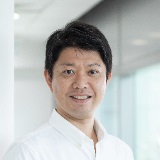
Noriyuki Takahashi, Director, Lead Identification, Chugai Pharmabody Research Pte Ltd.

Noriyuki Takahashi joined Chugai Pharmaceutical in 2007 and has more than 17 years of experience in the pharmaceutical industry. After spending the initial part of his career in drug development research, he now focuses his research on antibody drug discovery. His extensive experience and expertise in identifying new therapeutic antibodies have led him to develop technologies in antibody generation and high-throughput screening. He has submitted >10 patents in antibody drug discovery and has identified lead molecules in several pre-clinical and clinical stage projects. Noriyuki is currently leading the Lead Identification Unit and the Cell Biology & Technology Unit as a Director.

André A. R. Teixeira, PhD, Senior Director, Antibody Platform, Institution for Protein Innovation

Andre is a pharmacist and biochemist working in antibody development for therapeutic and tool applications. He has developed discovery platforms for multiple pharmaceutical and biotech companies while leading Antibody Library development at Specifica. He currently leads the Antibody Platform at the Institute for Protein Innovation, developing novel antibodies to advance biomedical research.

Peter M. Tessier, PhD, Albert M. Mattocks Professor, Pharmaceutical Sciences & Chemical Engineering, University of Michigan

Peter Tessier is the Albert M. Mattocks (Endowed) Professor in the Departments of Chemical Engineering, Pharmaceutical Sciences and Biomedical Engineering, and a member of the Biointerfaces Institute at the University of Michigan in Ann Arbor, MI. He received his Ph.D. in Chemical Engineering from the University of Delaware (2003, NASA Graduate Fellow) and performed his postdoctoral studies at the Whitehead Institute for Biomedical Research at MIT (2003-2007, American Cancer Society Fellow). Tessier started his independent career as an assistant professor in the Department of Chemical & Biological Engineering at Rensselaer Polytechnic Institute in 2007, and he was an endowed full professor at Rensselaer prior to moving to the University of Michigan in 2017. Tessier’s research focuses on designing, optimizing, characterizing and formulating a class of large therapeutic proteins (antibodies) that hold great potential for detecting and treating human disorders ranging from cancer to Alzheimer’s disease. He has received a number of awards and fellowships in recognition of his pioneering work: Pew Scholar Award in Biomedical Sciences (2010-2014), Humboldt Fellowship for Experienced Researchers (2014-2015), Young Scientist Award from the World Economic Forum (2014), Young Investigator Award from the American Chemical Society (2015) and NSF CAREER Award (2010-2015).
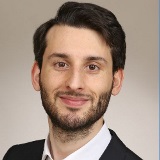
Frederic B. Thalheimer, PhD, Molecular Biotechnology & Gene Therapy, Paul Ehrlich Institut

Dr. Frederic Thalheimer is a senior postDoc Fellow in the Department for Molecular Biotechnology and Gene Therapy at the Paul-Ehrlich-Institut in Langen, Germany. He is currently a member of the European Society of Gene & Cell Therapies (ESGCT) and Deutsche Gesellschaft für Gentherapie (DGGT). He has a strong standing in viral vector retargeting and vector design, many working with lentiviral and AAV vectors. 1st place at Langen Junior Science Award 2019, for creating anti-tumoural immune cells in vivo (Pfeiffer et al 2018) for development of in vivo CAR delivery to T cells in a mouse model.
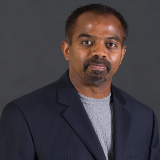
Sankaran Thayumanavan, PhD, Distinguished Professor, Chemistry, University of Massachusetts Amherst

S. “Thai” Thayumanavan is a Distinguished Professor in the Department of Chemistry and the Department Head of Biomedical Engineering at the University of Massachusetts Amherst. He is also the Director of Center for Bioactive Delivery at the Institute for Applied Life Sciences at UMass. He received his Ph.D. from the University of Illinois and did a postdoctoral stint at Caltech. The Thayumanavan lab is interested in translating novel polymer-based molecular assemblies into innovative materials to make a lasting impact in biomedical applications. His work has resulted in ~300 peer-reviewed publications in high-impact journals~20 patents and patent applications. Thayumanavan has received numerous national and international recognitions for his creative contributions, including the CRSI Medal from the Chemical Research Society of India, Manning Life Sciences Prize and elected fellow of the American Association for the Advancement of Sciences. He has also launched two start-up companies based on technologies developed in his laboratory.

Lena Tholen, Dir Cell Line & Bioprocess Dev, Cell Line & Bioprocess Dev, FyoniBio

Lena received her PhD in 2017 at Berlin University for Technology before she went to Fraunhofer IZI-BB for Post Doc period. In 2019 she started as a scientist in CLD and USP at Glycotope GmbH and subsequently joined FyoniBio and is now leading the Cell line and Bioprocess group. She was the lead scientist for building up the powerful CHOnamite® and CHOFlow® platforms.
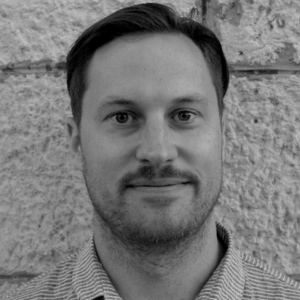
Nels Thorsteinson, Director of Biologics, Biologics, Chemical Computing Group

Nels Thorsteinson, Director of Biologics, Chemical Computing Group
Nels Thorsteinson joined Chemical Computing Group (CCG) in 2008 as an Applications Scientist and is now the Director of Biologics. He is responsible for performing scientific research and support, programming custom applications, and guiding CCG's 3D biologics modeling applications development. Before joining CCG, Nels majored in biomedical computing at Queen's University in Canada and went on to complete his graduate studies at the University of British Columbia focusing on bioinformatics and computational chemistry.

Will Thrift, PhD, Principal Artificial Intelligence Scientist, Genentech

Dr. Will Thrift is a Senior Artificial Intelligence Scientist in the Computational Sciences Department at Genentech. Will's PhD focused on developing deep machine learning methods for surface-enhanced Raman scattering sensors to enable applications in metabolomics. Will joined Genentech in 2019 where he focuses on developing deep machine learning methods for peptide-protein interactions in immunology. His state-of-the-art MHC class i model was the first machine learning model created by Genentech that has been used in a clinical trial to select drugs for personalized medicine.

Greg M. Thurber, PhD, Associate Professor, Chemical Engineering & Biomedical Engineering, University of Michigan

Greg M. Thurber is Associate Professor of Chemical Engineering and Biomedical Engineering at the University of Michigan. His work focuses on applying fundamental biotransport principles to design novel therapeutics and molecular imaging agents. These techniques to predict distribution based on molecular properties have found use in the Thurber laboratory in diverse projects ranging from self-administration of near-infrared molecular imaging agents for early disease detection to the modular design of stabilized alpha helices using bioorthogonal chemistry. The methods have found particular utility in designing improved antibody drug conjugates by capturing both the macromolecular antibody distribution and small molecule payload disposition. Prof. Thurber has delivered over 50 invited talks at major pharmaceutical companies, national and international conferences, and university departmental seminars. He also has consulting/research contract affiliations with more than 15 different companies. Prof. Thurber has authored 50+ peer-reviewed journal publications, 3 book chapters, numerous conference proceedings, and his work has been featured in popular news outlets including NPR’s “All Things Considered” and Smithsonian Magazine. He has received several awards including an NIH K01 award and the National Science Foundation CAREER award.
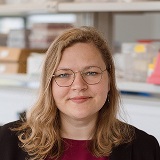
Kart Tomberg, PhD, Co-Founder & CEO, ExpressionEdits Ltd.

Kärt received bachelor’s and master’s degrees in biology from the University of Tartu in her native Estonia where she also spent three years working as a product manager in a biotechnology company Solis BioDyne. In 2010, she joined Prof. David Ginsburg’s lab at the University of Michigan Department of Genetics as a Fulbright Fellow to work on her PhD thesis. After completing her PhD, Kärt joined Prof. Allan Bradley’s lab at the University of Cambridge in 2017 as a Sir Henry Wellcome Postdoctoral Fellow. She has received many prestigious fellowships and grants and has published various scientific papers throughout her academic career. Over the past two years, Kärt has successfully led ExEd as CEO, guiding the company’s growth to a team of 13 people and overseeing key strategic initiatives. She has secured multiple rounds of funding to support the ongoing development of the company’s technology. Kärt remains focused on driving innovation and expanding ExEd’s capabilities, building on her original invention to further its impact within the biotechnology industry.
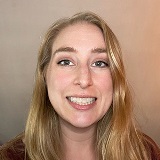
Dana Tribby, Scientist, Analytical Development & Gene Therapy Chemistry, Biogen

Dana Tribby is a Scientist in the Analytical Development department at Biogen. She received her bachelor’s degree in chemical engineering from the University of Minnesota Duluth and has seven years of experience in the biopharmaceutical industry where she has worked in the gene therapy modality. Her primary role is focused on method development and qualification of analytical assays supporting process development. She has hands-on experience in many bioassay and analytical techniques, with expertise in liquid chromatography, mass photometry, capillary electrophoresis, and electron microscopy.

Nathan D. Trinklein, PhD, Co-Founder and President, Rondo Therapeutics

Nathan is a co-founder of Rondo Therapeutics and currently serves as President and CSO. Prior to starting Rondo, Nathan was Chief Technology Officer at Teneobio where he played a key role in starting the company and led the team that was responsible for lead discovery, lead optimization, and development of the T-cell engager platform that was acquired in 2021. Prior to Teneobio, Nathan was a co-founder and CEO of SwitchGear Genomics, a venture-backed HTS platform company that was acquired in 2013. Earlier in his career, Nathan served as the Technical Director of the Stanford ENCODE project and received his Ph.D from Stanford University. Nathan also serves on the Board of Governors for the Stanford Medicine Alumni Association. Nathan has published over 30 peer-reviewed papers and is an inventor on over 15 patents.
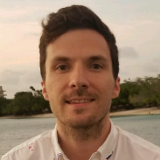
Kyle M. Trudeau, PhD, Executive Director, Innovation, Sana Biotechnology, Inc.

Kyle has led research for Sana’s Fusogen Platform since the foundation of the company. Currently Executive Director and Co-Head of Sana Innovation, Kyle oversees the research team driving advancement of the Fusogen Platform for in vivo delivery, including development of the lead in vivo CAR-T candidate. Prior to this he had been a Senior Scientist at Cobalt Biomedicine, a Flagship company.

Nathan L. Tumey, PhD, Associate Professor, Pharmaceutical Sciences, SUNY Binghamton

L. Nathan Tumey is joined Binghamton University in 2017, following 15 years of medicinal chemistry experience in the pharmaceutical and biotechnology industry. His research focuses on the design of antibody-drug-conjugates (ADCs) for the treatment of cancer, auto-immune disorders, and rare diseases. Specific research projects include immune-stimulating antibody conjugates, glucocorticoid-antibody conjugates, legumain-cleavable linkers, and site-specific conjugation technology. He is a frequent consultant at various biotechnology and pharmaceutical companies, and serves on the scientific advisory board of multiple ADC-related organizations. Dr. Tumey received his PhD in chemistry from Duke University in 2001, under the supervision of Michael Pirrung. During his years in the pharmaceutical industry, Tumey was a key leader in multiple drug-discovery programs including the development of 5HT2c agonists for obesity, PKC-theta inhibitors for asthma, IRAK4 inhibitors for rheumatoid arthritis and antibody-drug-conjugates (ADCs) for the treatment of cancer.

Joseph Vacca, Vice President Solutions, RLT, Perceptive Imaging

Joe Vacca joined Perceptive (formerly Invicro) in 2020 and is currently the VP of Solutions - RLT. He is responsible for all commercial and business efforts related to radioligand therapies. In his 5 years at Perceptive, Joe has been involved over 100 preclinical and clinical RLT trials.
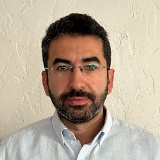
Ahmet S. Vakkasoglu, PhD, Associate Director, Biologics Discovery and Innovation, Cue Biopharma

Dr. Ahmet Vakkasoglu is Associate Director of Biologics Discovery and Innovation at Cue Biopharma. In this role, he has led the protein engineering and development efforts for the company's Immuno-STAT and Neo-STAT platforms, driving advancements in biologics targeted at both autoimmune (AI) and oncology indications. Dr. Vakkasoglu earned his Ph.D. in Biophysics from the University of Illinois Urbana-Champaign and brings over a decade of industry experience to his position.

Daniel A. Vallera, PhD, Lion Scholar and Professor; Director, Section on Molecular Cancer Therapeutics; Professor, Therapeutic Radiology, University of Minnesota Masonic Cancer Center

Professor of Radiation Oncology and member of the NCI-designated Masonic Cancer Center, University of Minnesota Director of the Laboratory of Molecular Cancer Therapeutics. Currently, Lion Scholar. PhD from Ohio State University in Immunology and Oncology. Past Leukemia Society and ACS scholar. Over 200 career publications on PubMed. Specialist in the genetic engineering of new anti-cancer drugs designed to use antibodies to selectively target carcinoma and leukemia.

James A. Van Deventer, PhD, Associate Professor, Chemical and Biological Engineering, Tufts University

Dr. Van Deventer completed undergraduate studies at Stanford University, his Ph.D. at the California Institute of Technology, and postdoctoral work at the Massachusetts Institute of Technology. He is currently the Bright Futures Assistant Professor in the Chemical and Biological Engineering at Tufts University. The Van Deventer Laboratory works at the interface of protein engineering, synthetic biology, and chemical biology. Primary interests include engineering yeast to better accommodate alternative genetic codes, and engineering more “druglike” proteins using a combination of yeast display and noncanonical amino acids.

Marc Van Dijk, CSO Discovery and Engineering, FairJourney Biologics

Marc van Dijk, Ph.D. brings more than 25 years of experience in leading platform development and antibody discovery. Most recently, he served as Chief Scientific Officer at MiNK Therapeutics, where he oversaw discovery and early development of innovative immuno therapies. Prior to that, he was Chief Technology Officer at Agenus, During this time, Dr. van Dijk led antibody discovery programs in collaboration with the Ludwig Institute for Cancer Research, contributing to the clinical advancement of key antibodies, including those targeting CTLA4, PD1, GITR, OX40, LAG-3, TIM3 and others. Earlier in his career, he served as Chief Technology Officer at 4-Antibody, a subsidiary of Agenus, where he oversaw the development of Retrocyte Display™, the company’s proprietary antibody discovery platform. and as Vice President of Antibody Technology at Genmab, where he managed partnerships with Immunex (now Amgen) and Roche, and led numerous discovery projects, including Humax-CD20 (Arzerra™). He also held leadership roles at Innogenetics (now Fujirebio) as Director of Applied Research. Dr. van Dijk has held a tenure-track position in the Department of Immunology at the University Medical Center Utrecht and completed a postdoctoral fellowship in Molecular Biology at the University of California, San Diego. He earned his Ph.D. in Molecular Biology from Utrecht University.

Neal S. Van Hoeven, PhD, Vice President, Preclinical Research, Cabaletta Bio

Dr. Neal Van Hoeven is the vice president of preclinical research at Cabaletta Bio. He has with over 20 years of experience designing and testing novel gene and cell therapies. Following initial training in the laboratory of Dr. Dusty Miller at the Fred Hutchinson cancer research center in Seattle, he has held research and leadership positions in a number of gene and cell therapy companies including Immune Design Corp., The Infectious Disease research Institute, and Sana Biotechnology. He is an author on over 40 peer-reviewed manuscripts and is an inventor on a number of patents related to the development of novel gene and cell therapy platforms.
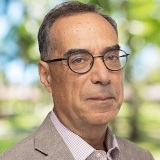
Max Vasquez, PhD, Chief Computing Officer, Adimab LLC

Max is currently head of computational biology at Adimab. Prior to Adimab, he was an independent consultant working for companies in the antibody therapeutic field including Xencor, Five Prime Therapeutics, and Galaxy Biotech, among others. He had spent part of his career at PDL Biopharma, where he was most recently Senior Director of Research, helping further to develop and deploy the Queen technology for antibody humanization, and participating in engineering of multiple antibodies, including a number in clinical development. He holds a PhD in Biophysical Chemistry from Cornell University.

Joshua R Veatch, MD, PhD, Assistant Professor, Translational Science and Therapeutics, Fred Hutchinson Cancer Center

Dr. Veatch received an MD/PhD from the University of Washington and completed a medical oncology fellowship at the Fred Hutchinson Cancer Center. After completing postdoctoral training in the lab of Stanley Riddell, he started his independent research group at the FHCC in 2022 where he is an assistant professor in the division of Translational science and Therapeutics, and attending physician in the melanoma and immunotherapy clinics. His group is focused on development of novel immune therapies in melanoma, non-small cell lung cancer, and other solid tumors, with a focus on using CD4 T cells to modify the tumor microenvironment.
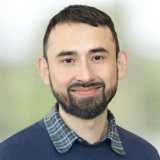
Arturo Vera-Rodriguez, PhD, Head, Bioprocess Development, AI Proteins

Arturo Vera Rodriguez holds a PhD in Molecular Biology from the Max Planck Institute for Multidisciplinary Sciences in Gottingen, Germany. He has a strong background in molecular biology, protein biochemistry, and bioprocess development. Currently, he serves as the Head of Bioprocess Development at AI Proteins in Boston, Massachusetts.
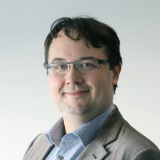
Robert Vernon, PhD, Associate Director, Amgen

Robert Vernon is an Associate Director at Amgen, working in the Digital Biologics Discovery group within Amgen's Center for Research Innovation through Digital Innovation (CRADI). He manages the implementation and development of ML platforms for generative protein design within pre-clinical development. PhD training at the University of Washington under Dr. David Baker (protein structure prediction and design), Post-doctoral training at SickKids hospital in Toronto under Dr. Julie Forman-Kay (protein condensate prediction and design).
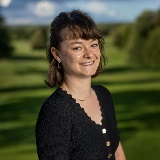
Elena Vidal-Calvo, PhD, PostDoc, Immunology & Microbiology, University of Copenhagen

I am an experienced cancer researcher with a background in bioengineering and a strong focus on translating scientific discoveries into impactful cancer therapies. As part of my Industry PhD in Clinical Cancer Research, I have co-developed novel anti-ofCS antibodies, a breakthrough in targeting a tumor-agnostic biomarker. These antibodies, which are now progressing toward clinical trials, have shown exceptional tumor specificity in preclinical models. These results highlight their potential to transform cancer treatment across multiple cancer types. My work spans preclinical development, antibody-drug conjugates, and interdisciplinary collaboration with academia, industry, and clinical partners. My research now focuses on understanding ofCS’s fundamental and clinical properties.
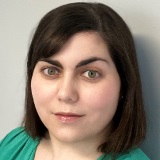
Marissa V. Labreck, PhD, Senior Scientist, Sanofi

As a native New Englander, Marissa grew up in NH, but left for college to go to New Orleans and perform community service after Hurricane Katrina. She returned to work at Children’s Hospital Boston as a Research Assistant and later moved to RI for graduate school to become her advisor’s 1st PhD student and graduate in her lab, where she researched protease activity that regulates cell division in bacteria. Marissa moved to the Boston area to start her career journey in industry in 2018, and has since worked in start-up environments where she gained an interest in protein engineering and analysis of multi-specific antibody therapeutics in the context of the immuno-oncology landscape. On a personal level, she enjoys day trips around New England and frequents the North Shore, where she currently lives, for a scenic bike ride or walk, in addition to spending time with family playing cards.

Michail Vlysidis, PhD, Senior Engineer, AbbVie

Dr. Vlysidis obtained his PhD in Chemical Engineering at the University of Minnesota, Twin Cities, studying and modeling the stochasticity of biochemical reaction networks. With over 6 years of experience in the industry, he has made significant contributions to the fields of scientific software development and engineering. Currently serving as a team leader at AbbVie, Dr. Vlysidis' primary focus is on supporting the biologics organization in capturing and analyzing experimental data. He possesses a deep understanding of protein properties and leverages innovative protein language models to further enhance research in this area. Prior to joining AbbVie, he worked at Intel, where his expertise was instrumental in supporting R&D research on semiconductors and cutting-edge technology. With a strong academic background and industry experience, Dr. Vlysidis is dedicated to driving advancements at the intersection of chemical engineering, software development, and AI/ML models.

BjØrn Voldborg, MSc, Head, National Biologics Facility, DTU Bioengineering, Technical University of Denmark

BjØrn Voldborg has more than 20 years of experience working with recombinant protein expression from both academic and industrial settings. BjØrn was team leader in the biotech company Pharmexa A/S, responsible for molecular cloning and expression of protein-based drug candidates. From this, he went to the NNF Center for Protein Research at the University of Copenhagen as Head of the Protein Production Unit, and, since 2012, BjØrn has been heading the CHO Cell Line Engineering project dedicated to the engineering of improved protein production cell factories, and since 2021 he has been heading the Cell Line and Protein Production in the National Biologics Facility at the Technical University of Denmark.
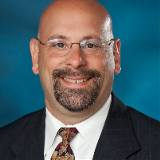
Steven Walfish, Owner, Statistical Outsourcing Services

Mr. Walfish is Principal Science & Standards Liaison at United States Pharmacopeia (USP) responsible for the Statistics Expert Committee. Prior to this role Mr. Walfish was Principal Statistician at Becton Dickinson in Franklin Lakes, NJ responsible for supporting continuous improvement efforts and process development for worldwide operations. Mr. Walfish has held roles at GE Healthcare, Human Genome Sciences and Chiron. Steven was President of Statistical Outsourcing Services, a consulting company that provides statistical analysis and training to the FDA regulated industries. Mr. Walfish brings over 30 years of industrial expertise in the development and application of statistical methods for solving complex business issues. Steven has experience applying statistical methods to analytical method verification and validation and stability analysis. Mr. Walfish holds a Bachelors of Arts in Statistics from the University of Buffalo, Masters of Science in Statistics from Rutgers University and an Executive MBA from Boston University.
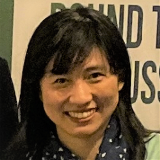
Yuan Wang, PhD, Head of Research Analytics, UCB Pharma

Dr. Wang is heading Research Analytics of UCB Pharma’s Data and Translational Sciences department, based in Cambridge, MA. In her current role she brings computational analytics and data strategy to tackle challenges in novel chemical biology and therapeutic modality in severe diseases. Prior to joining UCB she was working for Novartis Institutes for Biomedical Research in Cambridge, MA, and F. Hoffman La Roche in Basel, Switzerland.
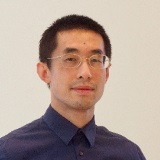
Yuxiao Wang, PhD, Co-Founder & Vice President, Discovery Research, Myeloid Therapeutics

Dr. Yuxiao Wang is the co-founder and Vice President of Discovery Research at Myeloid Therapeutics. Dr. Wang obtained his PhD at UT Southwestern Medical Center and completed postdoctoral training at the laboratory of Professor Ron Vale. Together with Dr. Vale and others, he co-founded Myeloid Therapeutics in 2019 to develop novel myeloid cell based cancer therapies. His work has led to first-in-human clinical trials of ex vivo engineered myeloid cells for CD5+ lymphoma, and mRNA/LNP delivered in vivo CAR targeting TROP2+ cancers.

Yibo Wang, PhD, Postdoctoral Fellow, Machine Learning, AstraZeneca

Yibo Wang currently serves as a postdoctoral researcher in the department of Dosage Form Design and Development (DFDD) at AstraZeneca, where he applies his expertise in chemistry and data science to contribute to the advancement of biopharmaceutical research. Yibo graduated from University of Virginia holding a Ph.D. in Chemistry with a specialization in super-resolution microscopy and a master's degree in data science. His Ph.D. works focused on developing novel solutions for bacterial biofilm imaging, image segmentation, and tracking. His postdoc work encompasses the utilization of machine learning and biophysical characterization methods to analyze and address challenges in mAb developability and subvisible particle root cause analysis. Yibo's role as a postdoc at AstraZeneca reflects his commitment to pushing the boundaries of scientific exploration and leveraging interdisciplinary approaches to drive innovation in the field of biopharmaceuticals.

Kepeng Wang, PhD, Assistant Professor, Department of Immunology, University of Connecticut

Research in my laboratory focuses on the role of inflammation in intestinal tissue homeostasis, cancer development, and therapeutic intervention. Our research has shown a profound role of tumor-associated inflammation, such as the one driven by IL-17, in cancer development in the gut. We reported a direct tumor-supporting role of IL-17 in colorectal cancer (CRC), and showed that IL-17 signaling on tumor cells not only supports early-stage colon cancer development, but also suppresses the expression of CXCL9 family chemokines and consequently blocks the infiltration of CD8+ T cells to colorectal tumors. We therefore speculated that blocking IL-17 may serve as adjuvant therapy for the treatment of CRC. We subsequently generated a novel oncolytic viral agent that targets IL-17, PD-L1 pathways and provides a single chain, biologically active IL-12 within one vector. Treatment of multiple cancers in mouse models showed robust efficacy of CARG-2020 and good safety profile of the agent. However, delivery of CARG-2020 via the intravenous route resulted in severe side effects, due to the broad tropism of VSV-G protein that was used to guide viral entry. This is not unique to CARG-2020, as cancer-specific delivery of oncolytic virus remains a major gap in cancer immunotherapy. To this end, my lab developed a novel Pro-VSV-G protein, whose activity is dependent on protease-mediated removal of a short inhibitory peptide fused to the N’-terminus of mature VSV-G. We are exploring the potential of this guided VSV for the treatment of metastatic tumors.
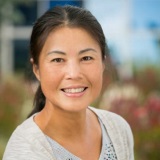
Yulei Wang, PhD, Senior Fellow, Translational Medicine Oncology, Genentech Inc.

Dr. Yulei Wang is a Senior Fellow/Group Leader in Translational Medicine, Genentech. Currently, she oversees the translational and reverse translational research in the GI/GU disease areas, as well as in Morpheus signal-seeking combination platform studies. With a primary focus on liver cancers, Dr. Wang’s team has made significant contributions to establishing the breakthrough combination immunotherapy, anti-PD-L1 plus anti-VEGF, as the new standard care globally for the advanced HCC patients. Through integrated multi-omics, multiplex IHC, digital pathology, as well as preclinical modeling, her team has uncovered key mechanisms of response and resistance, and successfully linked biomarker discovery, disease biology and clinical translation to enable new transformative drug development. In addition to leading translational research, Dr. Wang is an accomplished postdoc mentor and head of translational research laboratory. Her group focuses on understanding the heterogeneity of the disease biology, tumor immune microenvironment and stroma biology to guide the development of novel therapeutic and diagnostic strategies.
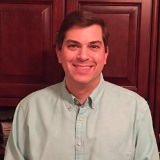
Christopher Wassif, PhD, Director, Molecular Engineering & Antibody Technologies, AstraZeneca

Dr. Christopher Wassif has a wide breadth of knowledge having spent 27 years working at the National Institutes of Health, Bethesda, USA in the fields of Genetics, Rare Diseases, Biomarker discovery/validation, and high throughput small molecule screening. With 90 plus peer reviewed manuscripts and multiple book chapters he is a well-respected leader in multiple fields of research. In 2022, Dr. Wassif transitioned to AstraZeneca as Director of Molecular Engineering and Antibody Technologies and global lead for the Machine Learning for Antibody and Biologics (MLAB). In his current role he leads a dynamic team of scientist converging the powers of AI/ML to facilitate and accelerate biologic discovery.

Jing Watnick, PhD, COO, Vigeo Therapeutics Inc.

Dr. Jing Watnick is the chief operating officer of Vigeo therapeutics, a clinical stage oncology-focused pharmaceutical company she co-founded in 2015. Dr. Watnick has led Vigeo to secure multiple rounds of venture funding and spearheaded the discovery and development of novel therapeutic molecules in various oncology indications. Prior to launching Vigeo, Dr. Watnick directed the Niraparib (Zejula) program at Tesaro through Phase 3 registration trials in ovarian and breast cancer. She also served as program leader and head of business development functions at Alexion Pharmaceuticals and Novartis prior to Tesaro.

Ernst Weber, PhD, Head, Molecular Design & Engineering & Science Fellow, Bayer AG

Ernst Weber, Ph.D., is a Senior Principal Scientist and Bayer Science Fellow responsible for antibody lead optimization at Bayer AG. He earned his Ph.D. in Biochemistry from the University of Halle (Germany) and completed his postdoctoral work as an EMBO Fellow at the MRC Laboratory of Molecular Biology in Cambridge, focusing on protein engineering. In 2008, he joined ICON Genetics, where he developed high-throughput screening (HTS) compatible molecular biology technologies for optimizing individual proteins and entire enzymatic pathways. Since moving to Bayer AG in 2012, Dr. Weber has been responsible for antibody optimization and has served as project leader for multiple indications, successfully advancing seven antibodies into clinical development. He has also led the establishment of Bayer’s bispecific antibody platform since 2016 and is currently working on the next-generation engineering platform to further enhance biologics development.
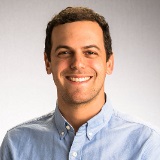
Evan W. Weber, PhD, Assistant Professor, Pediatrics, University of Pennsylvania

Dr. Evan Weber is an Assistant Professor at the University of Pennsylvania Perelman School of Medicine and leads a research lab at the Children’s Hospital of Philadelphia. His research focuses on developing methods to improve CAR T cell therapies for cancer by enhancing T cell fitness. Using an array of pharmacologic, gene-editing, and bioengineering approaches, Dr. Weber and his team are working to identify and modulate T cell-intrinsic pathways to redirect CAR T cells towards more therapeutic cell states. Collectively, Dr. Weber's research is uncovering molecular programs that drive human CAR T cell function and dysfunction, identifying novel targets for therapeutic intervention, and informing universal strategies to improve CAR T cell efficacy in cancer patients.

Ronnie R Wei, PhD, Head, Biologics Discovery, Modex Therapeutics

Dr. Ronnie Wei is Head of Biologics Discovery and Development at ModeX, responsible for developing novel multispecific therapeutics for immune-oncology and infectious disease indications. Prior to joining ModeX, she was Director for Scientific Innovation at Sanofi from 2018 to 2020. Ronnie managed the operations of the Chief Scientific Office and facilitated the implementation of strategies for R&D by driving innovation through Sanofi’s Scientific Intelligence Network. Ronnie also served as a scientific advisor for the Sanofi Breakthrough Laboratory. Prior to this role, she was Director of Protein Engineering at Dragonfly Therapeutics where she designed and established the multispecific NK cell engaging platform which has since seen its first molecule in patients. Dr. Wei has a demonstrated track record of delivering high quality and innovative biologics designs that have reached clinical development. In her work Ronnie regularly surveys the competitive intelligence landscape and patent space on cutting edge therapeutic concepts, fostering deep ties with partners in the biopharma and academia investment ecosystem. Her research has led to 22 publications including manuscripts in Science, Cell, Nature Journals and PNAS as well as over 20 patents filed and granted.

Jenny Wei, PhD, Senior Director, R&D Informatics and Technology, Kite Pharma

Jenny Wei is the Head of R&D Informatics and Technology at Kite Pharma. She has over 23 years of experience in the pharmaceutical industry delivering innovative digital solutions and advanced analytics for small molecule, biologics, and cell therapy R&D, real-world evidence generation, process development, clinical manufacturing, and supply chain. Trained as a biologist and a computer scientist, she holds a master’s in Computer Science from Rutgers University and a Ph.D. in Pharmacology from the University of Washington.
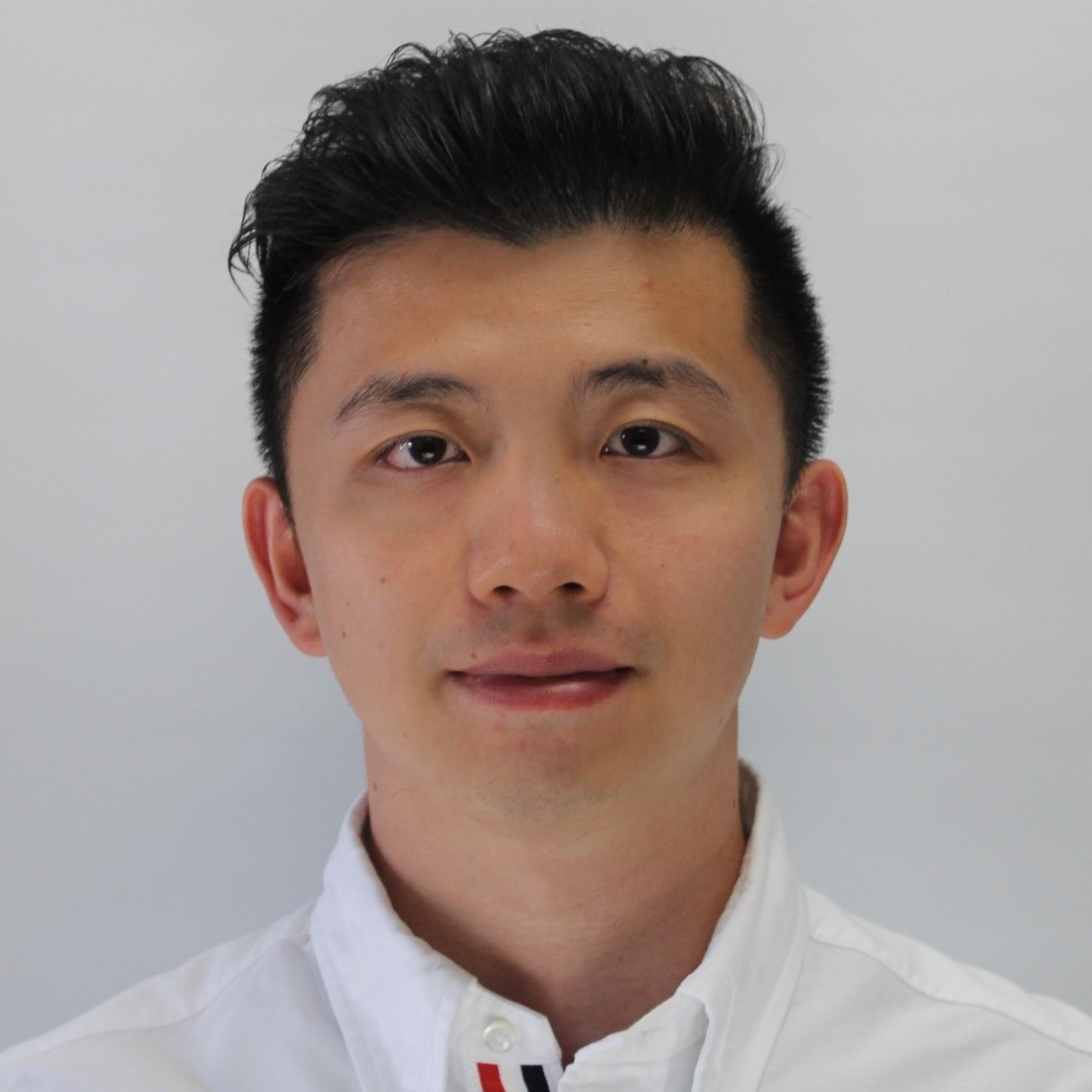
Jinlai Wei, Research Scientist, R&D Analytical, FUJIFILM Irvine Scientific

Jinlai Wei is currently a Research Scientist at FUJIFILM Irvine Scientific. Jinlai acts as the primary scientist providing Analytical Services, while also focusing on Investigations, Method Development, and New Product Development. He has led multiple research projects with in-depth knowledge of upstream mammalian cell culture and downstream processing to evaluate the critical quality attributes (CQA) of antibodies. Prior to his role, he obtained his PhD degree in Chemistry at University of California, Irvine in 2022 and Master’s degree at University of Illinois at Urbana-Champaign in 2018.
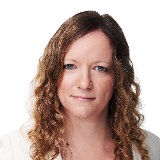
Nina E. Weisser, PhD, Director, Multispecific Antibody Therapeutics, Zymeworks, Inc.

Nina Weisser is Director of Multispecific Therapeutics at Zymeworks where she leads a research team in the development of multispecific antibody therapeutics with a focus on mechanism of action studies. Since joining Zymeworks in 2012, she has led several research programs, including zanidatamab from discovery to early development. She received her PhD from the University of Guelph and held a post-doctoral fellowship at the National University of Ireland, Galway.

Maria Wendt, PhD, Global Head, Preclinical Computational Innovation Strategy Research Platforms, R&D, Sanofi

No bio available.

Paul Widboom, PhD, Senior Director, Antibody Engineering, Adimab LLC

Paul Widboom has worked at Adimab since 2010. He has worked closely with many Adimab partners to discover therapeutic leads. Much of his research has involved the development of bispecifics.
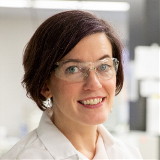
Jessica Williamson, PhD, Head, US Protein Sciences, UCB

Dr. Williamson is the head of US Protein Sciences at UCB and has been with the organization since joining as a research scientist in 2015. She currently leads a team of scientists who provide non-antibody protein reagents for global preclinical discovery projects. Prior to their acquisition by UCB, Jess and the Protein Sciences team were part of Beryllium Discovery, a CRO specializing in gene to structure services. She completed her PhD at Yale University in Molecular Biophysics and Biochemistry and a postdoc at Harvard Medical School, during both she studied the structure and assembly of challenging systems, like amyloid and membrane proteins. In addition to her role, Jess advocates for ED&I (Equity, Diversity and Inclusion), Women in Leadership, and environmental sustainability practices at UCB.

K. Dane Wittrup, PhD, C.P. Dubbs Professor, Chemical Engineering & Bioengineering, Massachusetts Institute of Technology

Prof. Dane Wittrup attended the University of New Mexico as an undergraduate, graduating Summa Cum Laude with a Bachelor's in Chemical Engineering in June 1984. Wittrup went on to attend the California Institute of Technology in Pasadena, where he worked with Prof. James Bailey on flow cytometry and segregated modeling of recombinant populations of Saccharomyces cerevisiae. After obtaining his PhD in Chemical Engineering with a minor in Biology in 1988, he spent a brief time working at Amgen before becoming an Assistant Professor of Chemical Engineering at the University of Illinois at Urbana-Champaign in 1989. He moved to the Massachusetts Institute of Technology in September of 1999, where he is now the C.P. Dubbs Professor of Chemical Engineering and Biological Engineering, in addition to working with the Koch Institute as the Associate Director for Engineering.
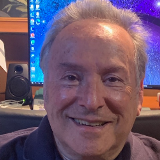
Michael Wolfe, MD, Professor, Physiology and Biophysics, Case Western Reserve University

M. Michael Wolfe, MD, received his B.S. and MD degrees from The Ohio State University. Upon the completion of his postgraduate training in Internal Medicine and Gastroenterology, including a year as Chief Medical Resident, he served on the faculty at the University of Florida and then Harvard Medical School. In 1996, Dr. Wolfe became Director of the Section of Gastroenterology at Boston University, where he served for 14 years before relocating in November 2010, to Cleveland, Ohio, to assume the position of The Charles H. Rammelkamp, MD, Jr. Professor of Medicine and Chair of the Department of Medicine of the MetroHealth System. In January 2018, Dr. Wolfe stepped down as Chair of Medicine and served in the capacity as Medical Director of Strategy and Innovation at MetroHealth until his retirement from the organization in January, 2019. Dr. Wolfe is currently Professor of Medicine and Professor of Physiology and Biophysics at Case Western Reserve University. He has devoted his career to the investigation of the regulation and biological relevance of gastrointestinal regulatory peptides. His current research interests include the physiological and pathological significance of glucose-dependent insulinotropic polypeptide (GIP) and specifically its role in the etiology and treatment of obesity and related disorders. In all, he has authored or co-authored over 300 original scientific manuscripts, chapters, reviews, and abstracts. In addition to his role as an external reviewer on NIH study sections and an internal reviewer at the NIH, he served as Chair of the Advisory Board for Gastrointestinal Drugs at the USFDA from July 1, 2001 to June 30, 2003. From 2019-2021, Dr. Wolfe served as the CMO for Lobesity LLC, a biotech that he co-founded, which initiated the development of a GIP monoclonal antibody generated in his laboratory to treat obesity and related disorders.
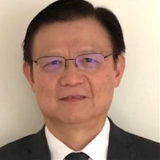
Wen Jin Wu, MD, PhD, Senior Investigator, Biotechnology Products, CDER, FDA

Dr. Wu is currently a Senior Investigator in the Division of Biotechnology Review and Research I (DBRR1), Office of Biotechnology Products (OBP), Office of Pharmaceutical Quality (OPQ), Center for Drug Evaluation and Research (CDER), FDA. He earned his M.D. from Wannan Medical College in China. In 2002, he received his Ph.D. from Cornell University. After two years as a Research Associate supervised by Dr. Richard Cerione at Cornell University, he obtained the position of a Principal Investigator (PI) in OBP at FDA in 2004. In addition to his regulatory duty as a Product Quality Reviewer, Dr. Wu’s laboratory at FDA investigates the roles of ErbB/HER family receptors in breast cancer progression, conducts physiochemical and biological characterization of HER2-targeted antibody therapeutics, including monoclonal antibodies, antibody-drug conjugates, and bispecific antibodies, and antibody engineering generating novel bispecific antibodies for the treatment of breast cancer. His laboratory also carries out the development of cell-based bioassays for bispecific antibodies. He has published many research papers in highly reputed journals, including mAbs, Scientific Reports, Journal of Biological Chemistry, Nature, Cell, Molecular Cancer Therapeutics, and Cancer Research, and has been invited to give talks at many national and international conferences.

Peng Wu, PhD, Professor, Chemical Physiology, Scripps Research Institute

Peng Wu is a Professor in the Department of Molecular Medicine. Before joining the faculty at TSRI, Peng was an Associate Professor of Biochemistry and the Scientific Director of the Chemical Biology Core Facility at Albert Einstein College of Medicine, New York. The research in the Wu laboratory integrates synthetic chemistry with glycobiology to explore the cellular and molecular mechanisms that control immune responses toward cancer and human pathogens. His recent awards include: 2020 Horace S. Isbell Award, Division of Carbohydrate Chemistry, American Chemical Society, 2021 Horizon Prize (Robert Robinson Award in Synthetic Organic Chemistry), the Royal Society of Chemistry (with the teams of K. Barry Sharpless, Jeff Kelly, John Moses, Jianmei Lu, Dennis Wolan, Bruce Hammock and Han Zuilhof) and 2021 Glycobiology Significant Achievement Award, the Society for Glycobiology.
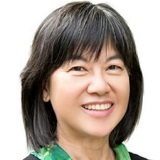
Anna M. Wu, PhD, Chair and Professor, Immunology & Theranostics, Center for Theranostic Studies, City of Hope

Anna M. Wu, Ph.D, is professor and chair, Department of Immunology & Theranostics and co-director, Center for Theranostic Studies, Beckman Research Institute of City of Hope, and professor in the Department of Radiation Oncology at City of Hope in Duarte, California. She also holds the title of research professor in the Department of Molecular and Medical Pharmacology, David Geffen School of Medicine at UCLA, Los Angeles, where she previously served as professor and vice chair. While at UCLA she also held positions as director, Cancer Molecular Imaging Program, Jonsson Comprehensive Cancer Center and co-associate director, Crump Institute for Molecular Imaging. She is a past chair of the California Breast Cancer Research Council, fellow and past president of the World Molecular Imaging Society, and a fellow of the Society of Nuclear Medicine and Molecular Imaging. She is the recipient of the 2018 Suffrage Science Award and the 2022 Gold Medal from the World Molecular Imaging Society. Dr. Wu’s research interests include engineered antibodies and proteins for targeting, imaging, and therapeutic applications in cancer and immunology, including the use of SPECT, PET, optical and multimodality approaches. Dr. Wu is the co-founder and chief scientific advisor to ImaginAb Inc., which develops and commercializes engineered antibodies for clinical imaging in cancer and other diseases. Dr. Wu received her A.B. degree in biochemical sciences from Harvard University, and a Ph.D. from Yale University in molecular biophysics and biochemistry. Postdoctoral studies were conducted at Yale University and at University of California San Francisco.

Yinghao Wu, PhD, Associate Professor, Systems and Computational Biology, Albert Einstein College of Medicine

Yinghao Wu is an associate professor at Albert Einstein College of Medicine, Department of Systems and Computational Biology. With more than 70 publications, his lab is focusing on developing multiscale simulation and deep learning tools to study ligand-receptor interactions and ligand-induced receptor clustering at cell surfaces. He is also interested in discovering biological therapeutics, such as antibodies and multi-specific fusion proteins, to target membrane receptors in various protein superfamilies, including but not limited to immunoglobulin or tumor necrosis factor superfamilies.
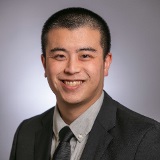
Patrick Wu, MD, PhD, Senior Scientist, Genentech

Patrick Wu is a Senior Scientist at Genentech, where he is part of a team that integrates computational and experimental approaches to predict the immunogenicity risk of protein therapeutics. Patrick received his M.D. and Ph.D. degrees from Vanderbilt University. He completed his Ph.D. in Biomedical Informatics under the mentorship of Wei-Qi Wei. In the Wei Lab, he developed methods leveraging electronic health records and multi-omics data to identify potential drug-drug interactions and generate drug repurposing hypotheses.
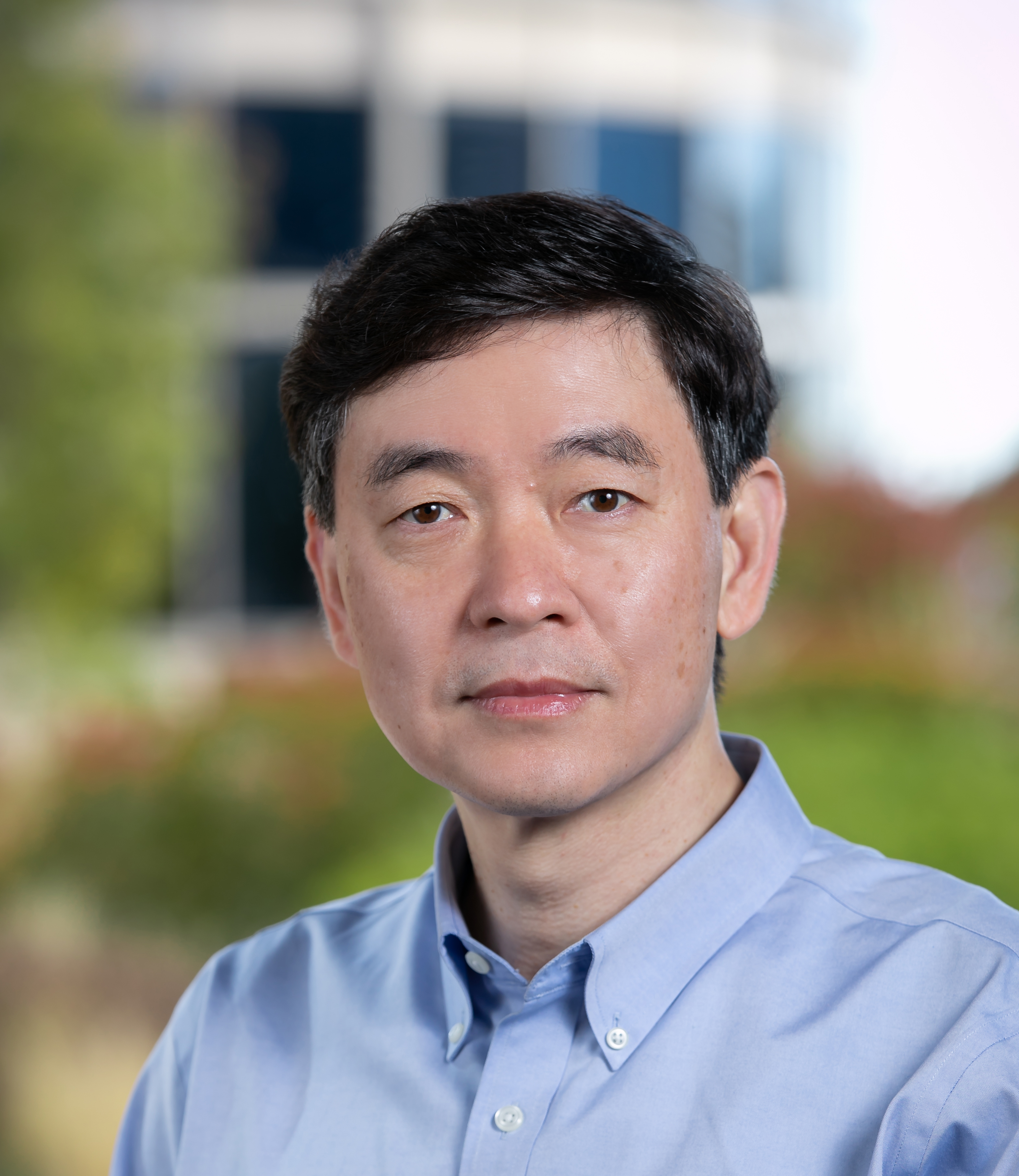
Jiansheng Wu, Head of CRO Service, CRO Service, WuXi Biologics USA LLC

Dr. Jiansheng Wu is the Head of CRO Services and Senior Vice President at WuXi Biologics. With vast experience and expertise in protein sciences, he has been instrumental in establishing global protein production facilities and developing cutting-edge technologies. Having participated in over 50 drug development projects, Dr. Wu is a leading authority in automated expression, purification, and characterization of diverse proteins. Previously at Genentech for 15 years, he made significant contributions to innovative protein expression and purification technologies.
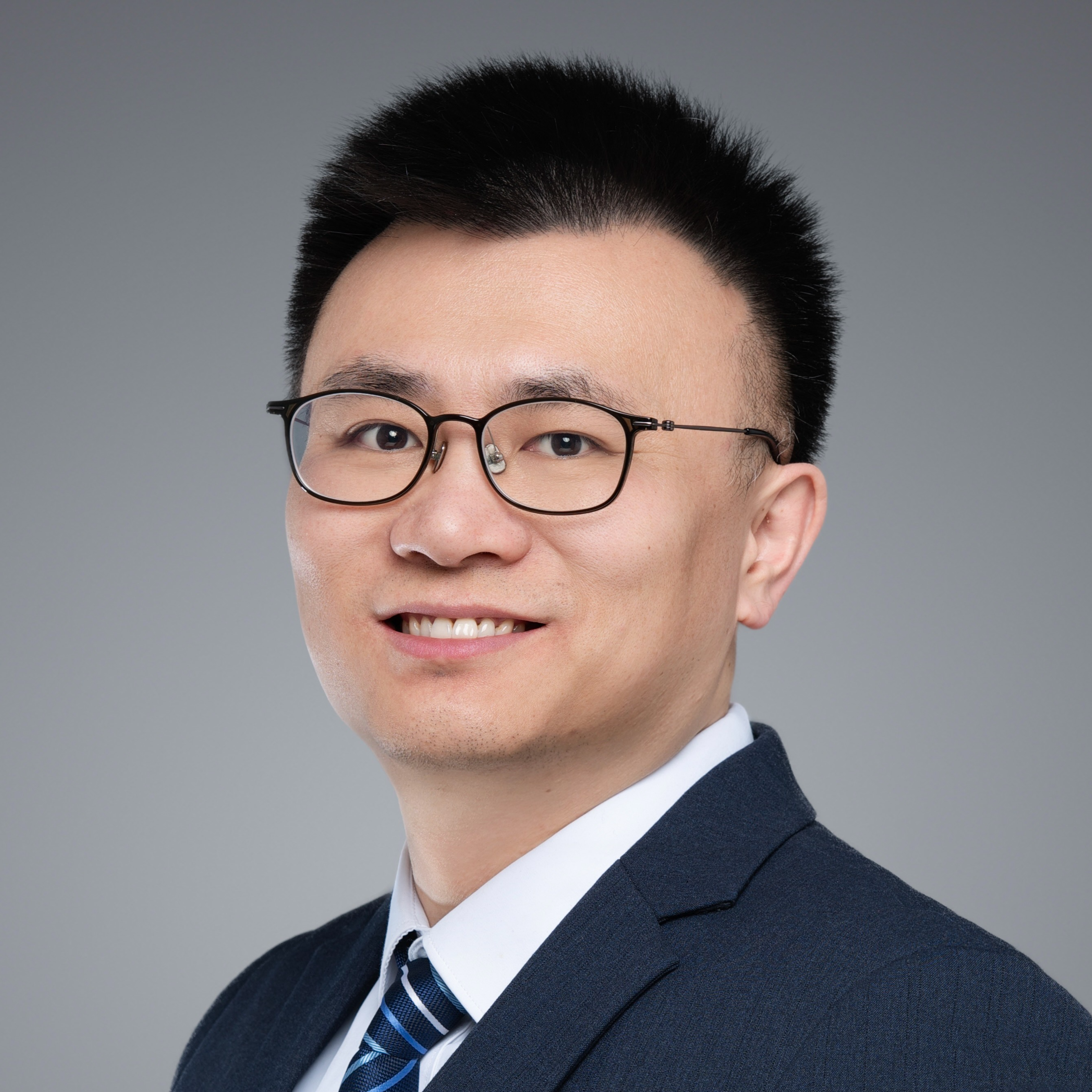
Jianqing Xu, Sr Director & Head of Lead Optimization, Protein Design & Engineering Excellence Ctr, WuXi Biologics

Dr. Jianqing Xu joined WuXi Biologics in 2015, where he established the company’s protein design capabilities and developed the proprietary bispecific antibody platform, WuXiBody™, with four WuXiBody™ programs currently in various stages of clinical development. As Head of Lead Optimization, he leads a multidisciplinary team that integrates advanced computational and experimental approaches to engineer a broad range of therapeutic proteins, including multi-specific antibodies, fusion proteins, conditional biologics, immunocytokines, peptides, and novel antigens. Prior to WuXi Biologics, Dr. Xu worked at MedImmune (AstraZeneca) with a focus on antibody design. He earned his Ph.D. in Chemistry from the University of Utah and completed postdoctoral training in biomolecular engineering at Johns Hopkins University, where he developed RosettaAntibody3, an antibody modeling software widely adopted by the antibody design community, including major biopharmaceutical companies.
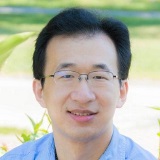
Huan Yang, PhD, Associate Principal Scientist, Discovery Biologics, Merck & Co. Inc.

Dr. Huan Yang has worked in both biotech and pharma, focusing on discovering next-generation CAR T cell therapy. He has played a key role in building Cell Therapy CAR engineering platforms and co-leading external allogeneic cell therapy programs at Merck. Prior to this, Huan gained valuable experience at TCR2 Therapeutics and Affyimmune Therapeutics, focusing on CAR engineering and T cell enhancement engineering. Over the last few years, Huan has been exploring approaches to enhancing the specificity and potency of CAR-T, as evidenced by patents and publications, as well as developing team leadership and management skills to support and mentor scientists with the goal of advancing cutting-edge off-the-shelf cell therapies.
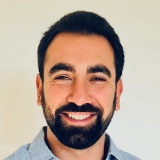
Mark Yarmarkovich, PhD, Principal Investigator, Assistant Professor, NYU School of Medicine

My work focuses on developing T cell immunotherapies for intractable cancers. I have experience at all stages of development, from target discovery, immune receptor engineering, preclinical and IND-enabling studies. I have developed methods for developing immunotherapies for low mutational solid tumors that I expect will apply across many tumor types. Our lead CAR candidate is slated to enter clinical trials in 2022/23. My expertise spans cancer biology, biotechnology, bioinformatics, and immunology. My PhD work at the University of Pennsylvania focused on developing strategies for developing immunotherapies in immunologically cold tumors and my previous work at Genentech involved antibody engineering for increased potency and specificity.

Libin Ye, PhD, Associate Professor, Molecular Biosciences, University of South Florida

Dr. Ye joined the Department of Molecular Biosciences at University of South Florida as a Principal Investigator in 2018, and became an affiliate member at Moffitt Cancer Research Center, Tampa, FL in 2019. The long-term goal of his research is to explore 19F NMR approaches probing and quantifying conformational states of membrane proteins (GPCRs) at a high resolution, and to determine the roles of each conformational states in receptor functioning, through studying their conformational transitions, dynamics, and connections to (patho)physiological activities. The developments of these tools would help us for the drug discovery. In particular, he proposed to use the 19F NMR to determine the true “ligand bias” by circumventing the “system bias” from cell-based biased ligand determination. His lab is also focusing on methodological innovations in resolving the structures for intermediate conformations/complexes of membrane proteins through the integration of NMR and cryo-EM techniques.

Yik Andy Yeung, PhD, CTO, Asher Biotherapeutics

Andy Yeung currently serves as the Chief Technology Officer of Asher Biotherapeutics, responsible for the engineering and development of antibody and cytokine candidates. Previously Andy spent ten years at Pfizer, leading protein engineering efforts for various programs including CD3 bispecific, CAR T, and immuno-oncology (antibodies and cytokines). Prior to Pfizer, Andy was a post-doctoral fellow in the Antibody Engineering Department at Genentech. Andy received his Ph.D. in Chemical engineering and M.S. in Chemical Engineering Practice from Massachusetts Institute of Technology, and a B.Sc. in Chemical Engineering from University of Wisconsin-Madison.
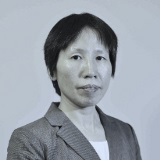
Linda Yi, Associate Director, Analytical Development, Biogen

Dr. Linda Yi is an Associate Director in Biologics Analytical Development department of Biogen. She has developed her expertise in recombinant therapeutic protein characterization by electrophoresis, liquid chromatography, as well as LC-MS or LC-MS/MS over the last 17 years. She has participated drug development for monoclonal antibodies, blood coagulation factors, bi-specific antibodies, fusion proteins, protein vaccines, and biosimilars for preclinical and clinical programs.
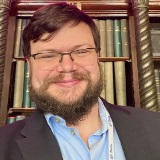
Daniel Yokell, Vice President, Theranostic NeuroOncology, Telix Pharmaceuticals Ltd.

Dr. Daniel Yokell, Pharm.D., RPh, BCNP is the VP of Theranostic Neurooncology at Telix Pharmaceuticals. In his role at Telix, he oversees the global develop of Telix’s Neurooncology portfolio, including TLX101, which is a late-stage targeted β-radiopharmaceutical therapy for glioblastoma, TLX102, which is a pre-IND stage targeted α-radiopharmaceutical therapy for glioblastoma, as well as patient selection and therapy targeting with Pixclara™, a targeted positron emission tomography (PET) diagnostic for glioma currently under NDA review by FDA. He is a board certified nuclear pharmacist with over 15 years of experience in the radiopharmaceutical industry. Prior to joining Telix in 2021, he was the Associate Director of the Gordon Center PET Core at Massachusetts General Hospital and was Instructor of Radiology at Harvard Medical School.
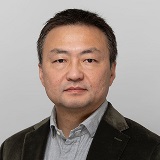
Hongjun Yue, PhD, Director, CMC, GigaGen

Dr. Hongjun Yue is the Director of CMC at GigaGen, Inc., a Grifols company, where he specialized in analytical and process development for recombinant polyclonal antibody therapeutics. With over a decade of experience in the biopharmaceutical industry, He has made significant contribution to the CMC aspects of various monoclonal IgM antibodies and recombinant polyclonal antibody programs. Dr. Yue earned his Ph.D in Chemistry from the University of Pittsburgh and expanded his expertise into biology through postdoctoral research at the Pennsylvania State University. He is deeply committed to advancing therapeutic molecules from laboratory to clinic applications, driven by a passion for improving patients’ quality of life.

Elcin Zan, MD, Chair, Nuclear Medicine, Imaging Institute, Cleveland Clinic

Elcin Zan, MD is the Chair of Nuclear Medicine at Cleveland Clinic. Elcin focuses on exploring the full potential of Radiopharmaceutical Therapies in oncology to meaningfully improve patient outcomes in clinic and research. Elcin and her team develop AGI tools to study the collective intelligence of cancer from cells to body-wide networks integrating pathology and PET diagnostics.

Stefano Zanotti, PhD, Head, Neuromuscular Research, Dyne Therapeutics Inc.

Stefano Zanotti, Ph.D. heads the Neuromuscular Research function at Dyne Therapeutics, where he oversees a multidisciplinary research team dedicated to discover and develop treatments for rare neuromuscular diseases and to advance Dyne’s FORCE platform. Stefano has committed his career to rare genetic disorders; prior to joining Dyne, he was Director of Rare Renal and Musculoskeletal Diseases at Sanofi where he led multiple research programs in rare disease indications. Before joining Sanofi, he was an Assistant Professor at the University of Connecticut School of Medicine, where he conducted NIH-funded research focused on the role of Notch signaling on genetic disorders of the skeletal system. Stefano is an inventor on multiple patents and has published numerous reviews, book chapters, and more than 50 research articles in major scientific journals. He has presented his research at international scientific congresses and has been awarded the ASBMR Young Investigator Award and other honors for his contributions to the field of musculoskeletal biology.
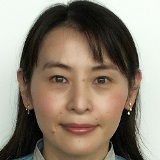
Akiko Zembutsu, PhD, Senior Director, Group I, Discovery Research Laboratories I, R&D Division, Daiichi Sankyo Co., Ltd.

Akiko Zembutsu is a Senior Director at Daiichi Sankyo Co., Ltd. and has been engaged in ADC research since 2010. She has led DXd ADC projects research group since 2023. She received her PhD in Science from Nara Women’s University.
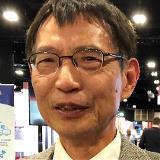
Kevin Zen, PhD, Senior Director, IGM Biosciences

Kevin has over 20 years of broad experience in Biologics CMC, and Strategic and Technical Operations. Prior to joining IGM Biosciences, he held various positions in biologics CMC disciplines at Allergan, AnaptysBio, AstraZeneca, Becton Dickinson, and Catalent Biopharma Solutions. In addition to developing therapeutic biological products in-house, Kevin also had extensive experience working with external contract manufacturing organizations (CMO) and contract research organizations (CRO), including production cell line development, bioprocess development, DS/DP cGMP manufacturing, process characterization, process performance qualification (PPQ), formulation development by DoE, analytical procedure development and method validation, reference standard qualification, extended characterization, and CMC analytical comparability.
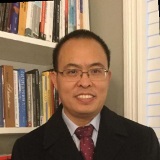
Xiaobin Zhang, PhD, Associate Director, Takeda Pharmaceuticals

Xiaobin Zhang is an associate director in the bioanalytical science and immunogenicity group at Takeda Pharmaceuticals. In this role, Xiaobin leads a team to support the immunogenicity assessment of large therapeutics such as peptides, antibodies, antibody-drug conjugates, multidomain proteins, AAVs and oligonucleotide-based therapeutics for oncology, neuroscience, gastrointestinal and rare diseases. Prior to his role at Takeda, Xiaobin was a Staff Scientist and Lead Scientist at Covance (now Labcorp, NC, USA) and mainly worked on the method development and validation for PK, ADA, and NAb assays. Xiaobin also served as a Senior Scientist for cell-based bioassay method development and validation in the GMP lab at PPD (NC, USA). He received his PhD from Peking University Health Science Center (Beijing, China) and postdoctoral training in University of Nebraska Medical Center (NE, USA) and University of Wisconsin-Madison (WI, USA).
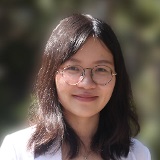
Xin Zhou, PhD, Assistant Professor, Biological Chemistry & Molecular Pharmacology, Dana-Farber Cancer Institute, Harvard Medical School

Xin Zhou is an Assistant Professor of Biological Chemistry & Molecular Pharmacology, Harvard Medical School, and Cancer Biology, Dana-Farber Cancer Institute. She obtained her PhD in Bioengineering with Dr. Michael Lin from Stanford University and did her postdoctoral training with Dr. Jim Wells at UCSF. Dr. Zhou’s research focuses on engineering functional protein sensors and switches for modulating biology. In the past, she has built proteins with versatile functions, including light-activated enzymes, phosphotyrosine recognition domains, antibody antagonists and agonists, and biosensors to measure SARS-CoV-2 antibodies. Her work was recognized by many awards including an NIH Pathway to Independence Award and a Damon Runyon-Dale F. Frey Award for Breakthrough Scientists. Dr. Zhou’s new research group aims to leverage the power of protein engineering to gain a deeper fundamental understanding of malignancies and to discover new avenues for therapeutic intervention.
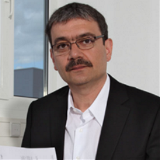
Eugene A. Zhukovsky, PhD, Co-Founder, ZM Scientific Consulting SNC

Dr. Zhukovsky has over 25 years of international experience in the research and development of novel immune-oncology therapies. He is currently serving the CSO of Ichnos Sciences. At Ichnos he is engaged in applying optimized novel bi- and trispecific antibody technologies to the development of immunotherapeutics for cancer. His background includes work in discovery, antibody engineering, and translational sciences, including the construction of drug discovery platforms. Dr. Zhukovsky is a co-founder and partner at ZM Scientific, a consultancy firm that advises biotechnology companies and works with investment firms by providing expert due diligence. Previously, he served as the CTO at GO Therapeutics where he created a T Cell Engagement platform to enable the leveraging of the company’s cancer cell-targeting antibodies. He also served as the CSO at Biomunex Pharmaceuticals, focused on developing immunotherapies based on checkpoint inhibitors and T cell engagers leveraging their bispecific antibody platform. As the CSO at Affimed, he led the optimization of their T and NK cell engager platforms and advanced candidates from discovery through clinical development. An Fc-optimized anti-CD19 program, which he has conceived of and led at Xencor, was subsequently licensed to a partner for clinical development; it has received a market authorization in the US and in Europe (Monjuvi/tafasitamab). Dr. Zhukovsky performed a postdoctoral fellowship at Genentech, Inc. He received a PhD in biochemistry from Brandeis University.
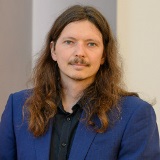
Stefan Zielonka, PhD, Senior Director, Global Head of Antibody Discovery and Protein Engineering (ADPE) Research and Development, Merck Healthcare KGaA; Professor, Biomolecular Immunotherapy, Technische Universität Darmstadt

Stefan works as Senior Director at Merck Healthcare KGaA (EMD Serono), Germany, where he heads Global Antibody Discovery and Protein Engineering (ADPE). He holds a PhD in chemistry as well as a habilitation in biochemistry. In addition, he is Professor of Biomolecular Immunotherapy at Technical University of Darmstadt.

Hans van der Vliet, MD, PhD, CSO, Lava Therapeutics

Hans van der Vliet, MD, PhD is scientific founder and CSO of Lava Therapeutics, a biotech company that develops proprietary V?9Vd2 T-cell engagers, and a medical oncologist and professor at the department of medical oncology of the Amsterdam UMC, Cancer Center Amsterdam.

Luis álvarez-Vallina, PhD, Head, H12O-CNIO Cancer Immunotherapy Clinical Research Unit, Spanish National Cancer Research Centre (CNIO)

Luis álvarez-Vallina (LAV) attended Medical School at Oviedo University (Asturias, Spain). He completed a Medical Residency in Immunology and earned a PhD in immunology from Autonoma University of Madrid working on T cell development in the human thymus. He completed a three-year postdoctoral fellowship at the Medical Research Council Center for Protein Engineering in Cambridge (UK), supported by an Individual Marie Curie Postdoctoral Fellowship from the European Commission, under the supervision of Robert E. Hawkins and Sir Gregory Winter (2018 Chemistry Nobel Laureate). LAV contributed to the first generation of chimeric antigen receptors (CAR) bearing costimulatory domains (CD28). This finding represents a milestone in the evolution of the CAR concept. In 1998 he obtained a position as Deputy Head (Consultant) at Hospital Universitario Puerta de Hierro in Madrid and established his own research group. In 2005 he obtained a permanent position and in 2006 he was appointed Head of the Molecular Immunology Unit. In 2014 he joined the University Aarhus in Denmark as Associated Professor at the Department of Engineering (Biological and Chemical Engineering) where he led the Immunotherapy and Cell Engineering laboratory. In 2022 is appointed a Head of the Hospital Universitario 12 de Octubre/Spanish National Cancer Research Centre (CNIO) Cancer Immunotherapy Clinical Research Unit. LAV is a co-founder and scientific advisor of LeadArtis a biotechnology company based in Madrid (Spain) that develops targeted drugs based on its proprietary Trimerbody® protein engineering platform, and STAb Therapeutics an immune-oncology spin-off company based on the “STAb-T strategy” for cancer immunotherapy.
アジェンダ・講演者・スポンサー更新
2025年 プログラム
表示する:

工学ストリーム

腫瘍ストリーム

多重特異性ストリーム

免疫療法ストリーム

発現ストリーム

分析法ストリーム

免疫原性ストリーム

新興治療ストリーム

機械学習ストリーム








